

10 Leading Development Studies PhDs in Europe
Europe has some of the top universities offering PhDs in Development Studies. A PhD in Development Studies at one of these European universities allows for the in-depth investigation of the issues developing countries face. Development Studies PhD students complete extensive and rigorous research supported by some of Europe’s leading development practitioners. The PhDs detailed below also encourage students to engage with a Europe wide network of development professionals, whilst also working with some of the world’s leading development institutions headquartered in Europe.
PhD in International Development Studies – Ruhr-Universität Bochum University
Ruhr-Universität Bochum University in Germany offers a PhD in International Development Studies. Hosted within the Ruhr-Universität Bochum University’s Institute of Development Research and Development Policy – one Europe’s leading research groups on international development, PhD students are able to explore in-depth specific development challenges. Around 10 PhD candidates are selected each year and assigned a supervisor who is a leading professional within development studies academia.
Studying a PhD in Europe at the Ruhr-Universität Bochum University allows researchers an inter-disciplinary approach to development studies. This mean students on the PhD programme work to combine multiple approaches to international development and cover a wide range of resources when addressing their chosen development issue. Students on the development studies PhD at Ruhr-Universität Bochum University also attend supporting seminars on issues related to international development and research.
PhD Humanitarianism and Conflict Response – University of Manchester
Manchester University is one of Europe’s most famous institutions with departments focusing on international development. For those wanting to study a PhD in Europe for a career in international development, the Manchester University PhD in Humanitarianism and Conflict Response is a strong option. Students on the PhD programme complete detailed and rigours research into ongoing and historical crises. The aim of the PhD is to develop research that can affect national, European and global approaches to international development.
Studying the Humanitarianism and Conflict Response PhD in Europe at Manchester University is highly relevant for those wanting to research international development. The three-year PhD encourages students to work closely with leading international development institutions as well as engage in-depth with development studies research. PhD students are directed by leading academics in the field of international development and humanitarian aid and engage with the latest tools and methods of development studies research. The PhD can also be completed in six-year part-time.
PhD International Affairs – International Business School, Budapest
You can study a PhD focusing on international development in Europe at Hungary’s International Business School. The PhD in International Affairs allows for a broad research scope which can include a focus on development. The aim of the PhD is for students to become experts in international policy and foreign affairs, arenas that relate directly to international development. Students on the PhD in International Affairs at the International Business School in Hungary, Europe, undertake both independent and supervised research.
For those wanting to study in Central Europe and have an interest in development studies, the PhD in International Affairs at the International Business School in Hungary is an option. The PhD programme allows for research into key development studies topics such as refugees and migrations, ‘international aid: traditional versus emerging donors’ and the effects of EU expansion into the Balkans. The PhD’s focus on development studies also means students can research topics such as community development and challenges in social integration.
PhD International Economic Relations – Prague University of Economics and Business
Prague University of Economics and Business offers a unique PhD programme in Europe on International Economic Relations. Studying in the Czech Republic in Central Europe, students on the course focus on how economic connections develop, compound and affect developed and developing countries. On the PhD students undertake independent research, allowing those with an interest in development studies to focus on how economic relations have an impact on poorer countries. PhD students are encouraged to develop practical solutions to economic and development problems.
Studying the PhD in International Economic Relations at the Prague University of Economics and Business means studying at one of Europe’s leading institutions. Students on the PhD programme can focus on how economic development can be achieved through improved economic relations. By researching the impact of trade, tariffs, humanitarian aid and economic co-dependency on developing countries, students are able to produce cutting edge-research to impact positive change on poorer countries.
MPhil/PhD Development Planning – University College London (UCL)
University College London (UCL) is one of Europe’s top universities. The prestigious university offers a PhD in Development Planning. Students on the course complete extensive research into different areas of planning, including economic, urban, transport, and social and how these can impact developing countries. The PhD in Development Planning at University College London also incorporates key international development topics such as gender, climate change, globalisation and economic inequality. Students undertake independent research and are able to focus on the development studies area most relevant to them.
For those wanting to complete a PhD in Europe in Development Studies, the Development Planning PhD at UCL is a strong option. The PhD is led by leading international development practitioners and students are able to network with some of Europe’s leading develop institutions based in London. Students research on the Development Planning PhD at University College London can take a specific or broad approach to development researching, focusing on international development and planning at local, national, regional and internationals arenas.
Development Studies PhD – University of Sussex
The University of Sussex is one of the top international development institutions in Europe. Students on the PhD programme in development studies at the University of Sussex conduct research into sustainable change in economics, politics and cultures of developing countries. The PhD aims for students to create both local and global changes and complete extensive research into practical policies to assist developing countries. Research is conducted to help fight poverty and injustice and expand on creative solutions to global issues.
Studying a PhD in Development Studies in Europe at the University of Sussex allows for a wide range of study areas. Participants on the University of Sussex Development Studies PhD programme focus on research areas such as fighting and limiting inequalities, improving sustainability and ensuring inclusive societies have security. Development Studies PhD students at the University of Sussex can network with some of Europe’s leading international development organisations and are taught by professional leaders in development practice.
PhD in Economics – Geneva School Of Economics And Management
Geneva is Europe’s centre for many leading international development organisations, such as the ICRC and UNHCR. The Geneva School of Economics and Management has a PhD in Economics which allows for a focus on development economics. For those wanting to do a PhD in Development Studies in the heart of Europe, the Geneva School of Economics and Management PhD allows for combination of independent research and elective courses on development economics. Students complete research overseen by leading economic theorists and practitioners.
Studying the PhD in Economics at the Geneva School of Economics and Management allows students to network with some of Europe’s largest and most established international development organisations. Students on the PhD in Economics at the Geneva School of Economics and Management cover both macro and micro-economics, with those focusing on development studies able to investigate how macro and micro-economic policy affects international development.
International Development PhD – University of Edinburgh
The University of Edinburgh in Europe offers a PhD in International Development. On the course, students complete rigorous and in-depth research into development, aiming to produce relevant research to inform and improve international development. The University of Edinburgh PhD in International Development is led by leading development practitioners with expertise on the issues affecting developing countries in Africa, South Asia and Latin America. PhD students are also encouraged to build Europe wide relationships and work cooperatively with European development researchers.
The PhD in International Development at the University of Edinburgh is one of Europe’s top development research posts. On the PhD, students can explore key development topics such as international development policy, humanitarian health and how development is impacted and impacts on religion and culture. PhD students at the University of Edinburgh can also focus on international development topics such as climate change, human rights, refugees and migration and urbanisation. The PhD programme encourages students to engage with a Europe-wide network of development institutions including NGOs, grass-root campaigners and international organisations and the media.
Development Studies, Ph.D. / M.Phil. – Swansea University
Swansea University in the UK offers European and international students a PhD in Development Studies. The course allows students to pursue a large and extensive piece of research into development issues of their choosing. The Swansea University PhD is one of Europe’s top courses focusing on key international development issues such as global drugs policy, conflict and security and analysing governmental policy in developing countries. Students undertake research supervised by leading European development practitioners.
On the PhD in Development Studies at Swansea University in Europe students undertake significant independent research into leading international development issues, culminating in the submission of a 100,000-word thesis. Additional key global development subjects PhD students engage with at Swansea University include human rights, international development policy, international humanitarian law and global peace. PhD students on the Development Studies programme at Swansea University are encouraged to engage with a Europe wide network of development organisations and professionals
PhD Global Human Development – University College Dublin
University College Dublin (UCD) offers one of Europe’s top development studies PhDs. The PhD in Global Human Development at UCD fosters research into strong solutions for current development issues, with a specific focus on the Millennium and Sustainable Development Goals. Students undertake research into poverty reduction, ensuring to incorporate real-world experiences of developing countries. The UCD PhD in Global Human Development is linked with a number of leading universities in developing countries, including in Zimbabwe, Tanzania and Malawi, allowing students to work cooperatively with other development researchers outside of Europe.
Students on the University College Dublin PhD in Global Human Development are encouraged to develop Europe wide connections with development practitioners. The course is also led by experts in current development thinking, meaning students research is directed to reflect the current issues affecting developing nations. The UCD PhD in Global Human Development aims for students to complete rigorous, in-depth and highly informed research working to reduce global inequality, fight poverty and improve the governance of developing nations.

- Schools & departments

International Development PhD
Awards: PhD
Study modes: Full-time, Part-time
Funding opportunities
Programme website: International Development
Introduction to Postgraduate Study at the University of Edinburgh
Join us online on 25 September to learn more about Scotland, the city of Edinburgh and postgraduate study at the University.
Find out more and register
Research profile
The University of Edinburgh is host to a thriving and cosmopolitan community of researchers working on global development issues.
We are home to internationally renowned academics working at the intersection of:
- international development policy and health
- science and technology
- urbanisation
- human rights
We are also respected regional centres of expertise in Africa, South Asia and Latin America.
Research community
As a doctoral student in International Development, you will become part of a vibrant, interdisciplinary research community. You will also join the Global Development Academy, which coordinates research and teaching on international development across the University.
We also welcome students who are keen to develop doctoral research projects in collaboration with third parties, for example:
- multilateral and bilateral agencies
- campaign groups
- media organisations
Research seminars and events
In addition, you will be invited to join research workshops hosted by the Global Development Academy and regular open research seminars held by subject areas across the School of Social and Political Science.
Programme structure
Usually undertaken full-time over three years, or part-time over six years, the PhD in International Development is a research degree in which you will make an original contribution to knowledge by pursuing an extended and focused piece of research on a topic of interest to them.
You will also be invited to join research workshops and regular open research seminars held by subject areas across the School of Social and Political Science, where you will enjoy special opportunities to meet development policy makers, practitioners, diplomats, and internationally recognised academics. Interdisciplinary research is strongly encouraged.
While based in the School of Social and Political Science, in the College of Arts, Humanities and Social Sciences, International Development doctoral students will have opportunities to draw from expertise across the University's different Schools and Colleges for the purposes of supervision and research collaboration.
Training and support
As a postgraduate in our International Development group, you will receive regular one-to-one thesis supervision from two supervisors with expertise in your regional and/or specific research areas.
Focused supervision in the International Development group is drawn from faculty associated to:
- Centre of African Studies
- Social Anthropology
- Social Policy
- Politics and History
In addition, staff from across the University provide enriching expertise and training for our research students.
Focused supervision in the International Development group is drawn from faculty associated to the Centre of African Studies, Sociology, Social Anthropology, Social Policy, Politics and History. In addition staff from across the University provide expertise and training for our research students.
A wide range of training facilities are available to PhD students. The Graduate School provides a range of ESRC-recognised research training courses for social science students across the University. You are encouraged to participate in taught Masters level courses to assist you intellectual development and support you research.
The University’s Institute for Academic Development provides a range of courses and events to assist with methodological training and career development.
* Institute for Academic Development
Finally, you will participate with your peers in the bespoke course, International Development Exchanges and Advanced Skills, to improve your research abilities. These combine to enable you to acquire a broad set of academic and transferable skills during your time with us.
Research library and archive facilities in Edinburgh are outstanding.
You will be a member of the Graduate School of Social & Political Science, with full access to the Graduate School’s facilities in the Chrystal Macmillan Building.
Other library and archive facilities include the University’s Main Library, the National Library of Scotland and the Scottish Records Office. Proximity to the Scottish Parliament and other institutions of national government provides further research opportunities.
Entry requirements
These entry requirements are for the 2024/25 academic year and requirements for future academic years may differ. Entry requirements for the 2025/26 academic year will be published on 1 Oct 2024.
A UK 2:1 honours degree or its international equivalent, and a UK masters degree with an overall mark of 65% or its international equivalent.
International qualifications
Check whether your international qualifications meet our general entry requirements:
- Entry requirements by country
- English language requirements
Regardless of your nationality or country of residence, you must demonstrate a level of English language competency at a level that will enable you to succeed in your studies.
English language tests
We accept the following English language qualifications at the grades specified:
- IELTS Academic: total 7.0 with at least 6.0 in each component. We do not accept IELTS One Skill Retake to meet our English language requirements.
- TOEFL-iBT (including Home Edition): total 100 with at least 20 in each component. We do not accept TOEFL MyBest Score to meet our English language requirements.
- C1 Advanced ( CAE ) / C2 Proficiency ( CPE ): total 185 with at least 169 in each component.
- Trinity ISE : ISE III with passes in all four components.
- PTE Academic: total 70 with at least 59 in each component.
Your English language qualification must be no more than three and a half years old from the start date of the programme you are applying to study, unless you are using IELTS , TOEFL, Trinity ISE or PTE , in which case it must be no more than two years old.
Degrees taught and assessed in English
We also accept an undergraduate or postgraduate degree that has been taught and assessed in English in a majority English speaking country, as defined by UK Visas and Immigration:
- UKVI list of majority English speaking countries
We also accept a degree that has been taught and assessed in English from a university on our list of approved universities in non-majority English speaking countries (non-MESC).
- Approved universities in non-MESC
If you are not a national of a majority English speaking country, then your degree must be no more than five years old* at the beginning of your programme of study. (*Revised 05 March 2024 to extend degree validity to five years.)
Find out more about our language requirements:
- Fees and costs
Read our general information on tuition fees and studying costs:
Scholarships and funding
Featured funding.
School of Social and Political Science Scholarships
UK Research Council Awards
For specialised guidance on submitting a competitive scholarship application, please follow the requirements and recommendations and how to contact relevant academic staff as advised here:
- Important information and recommendations
(Revised 10 November 2023 to update featured funding opportunities)
UK government postgraduate loans
If you live in the UK, you may be able to apply for a postgraduate loan from one of the UK’s governments.
The type and amount of financial support you are eligible for will depend on:
- your programme
- the duration of your studies
- your tuition fee status
Programmes studied on a part-time intermittent basis are not eligible.
- UK government and other external funding
Other funding opportunities
Search for scholarships and funding opportunities:
- Search for funding
Further information
- Postgraduate Admissions Team
- Phone: +44 (0)131 650 4086
- Contact: [email protected]
- Programme Advisor, Dr Aaron Kappeler
- Contact: [email protected]
- Graduate School of Social & Political Science
- Chrystal Macmillan Building
- 15A George Square
- Central Campus
- Programme: International Development
- School: Social & Political Science
- College: Arts, Humanities & Social Sciences
This programme is not currently accepting applications. Applications for the next intake usually open in October.
Start date: September
Awards: PhD (36 mth FT, 72 mth PT)
Application deadlines
We encourage you to apply at least one month prior to entry so that we have enough time to process your application. If you are also applying for funding or will require a visa then we strongly recommend you apply as early as possible.
- How to apply
You must submit a research proposal demonstrating your knowledge of your field of research, which will be closely scrutinised as part of the decision-making process. We request that PhD research proposals are no more than four A4 typed pages in Times New Roman, 12pt font. This includes charts and figures but does not include references or a bibliography.
We require PhD applicants in particular to contact potential supervisors before applying to discuss their research proposal so we can ensure there is adequate supervision.
Find out more about the general application process for postgraduate programmes:
Cookies on our website
We use some essential cookies to make this website work.
We'd like to set additional cookies to understand how you use our site so we can improve it for everyone. Also, we'd like to serve you some cookies set by other services to show you relevant content.
International Development (Global Studies) PhD
Key information.
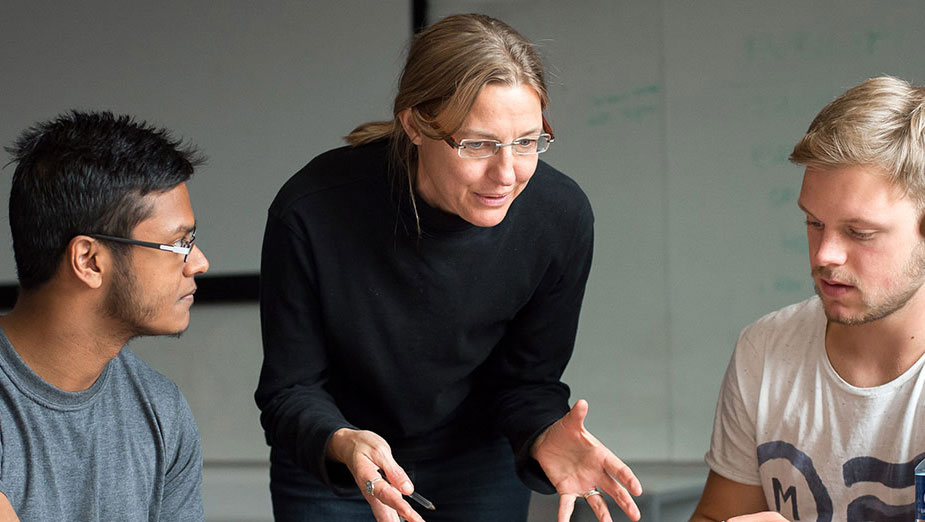
- 1st in the world for Development Studies (QS World University Rankings by Subject 2024)
I came to Sussex for the expertise in International Development. My (then potential) supervisors helped me create a robust project plan and funding application. I was awarded one of the ESRC’s 1+3 studentships for my Masters and PhD .” Sarah-jane Phelan International Development (Global Studies) PhD Social Research Methods MSc graduate
Areas of study
Our research interests are in fields such as:
- environment, resources and mobilisation
- gender, sexuality and conflict
- human rights and welfare
- humanitarian design and citizen aid
- markets, labour and finance
- migration and mobility.
We understand that deciding where and what to study is a very important decision. We’ll make all reasonable efforts to provide you with the courses, services and facilities described in this prospectus. However, if we need to make material changes, for example due to government or regulatory requirements, or unanticipated staff changes, we’ll let you know as soon as possible.
Masters and P h D events
Meet us on campus or online
Book your place
Entry requirements
- UK requirements
- International requirements
| Degree requirements | You’re normally expected to have a Merit (an average of 60% of overall) in a Masters degree and an upper second-class (2.1) undergraduate honours degree. |
|---|---|
| Subject-specific requirements | Your qualification should be in a relevant social sciences subject. In exceptional circumstances, you may be considered for the degree if you have a qualification in a different subject area. You may also be considered for the degree if you have other professional qualifications or experience of equivalent standing. We also offer a Doctoral pathway which incorporates the MSc in Social Research Methods or further specialist research training modules within Year 1 for those without the required research training. Further information about this doctoral pathway can be found |
Please select your country from the list.
| Masters degree requirement | You’re normally expected to have the equivalent of a UK Masters degree, which will mean having completed some academic study beyond your Bachelors degree. |
|---|---|
| Undergraduate degree requirement | Licenciado/Titulo with a final mark of at least 7.5-8.5 depending on your university. |
| Subject-specific requirements | Your qualification should be in a relevant social sciences subject. In exceptional circumstances, you may be considered for the degree if you have a qualification in a different subject area. You may also be considered for the degree if you have other professional qualifications or experience of equivalent standing. We also offer a Doctoral pathway which incorporates the MSc in Social Research Methods or further specialist research training modules within Year 1 for those without the required research training. Further information about this doctoral pathway can be found |
| Please note | Our entry requirements are guidelines and we assess all applications on a case-by-case basis. |
| Masters degree requirement | You’re normally expected to have the equivalent of a UK Masters degree, which will mean having completed some academic study beyond your Bachelors degree. |
|---|---|
| Undergraduate degree requirement | Bachelors degree with second-class upper division. |
| Subject-specific requirements | Your qualification should be in a relevant social sciences subject. In exceptional circumstances, you may be considered for the degree if you have a qualification in a different subject area. You may also be considered for the degree if you have other professional qualifications or experience of equivalent standing. We also offer a Doctoral pathway which incorporates the MSc in Social Research Methods or further specialist research training modules within Year 1 for those without the required research training. Further information about this doctoral pathway can be found |
| Please note | Our entry requirements are guidelines and we assess all applications on a case-by-case basis. |
| Masters degree requirement | You’re normally expected to have the equivalent of a UK Masters degree, which will mean having completed some academic study beyond your Bachelors degree. |
|---|---|
| Undergraduate degree requirement | Magistr or Specialist Diploma with an average mark of at least 4 or 81% |
| Subject-specific requirements | Your qualification should be in a relevant social sciences subject. In exceptional circumstances, you may be considered for the degree if you have a qualification in a different subject area. You may also be considered for the degree if you have other professional qualifications or experience of equivalent standing. We also offer a Doctoral pathway which incorporates the MSc in Social Research Methods or further specialist research training modules within Year 1 for those without the required research training. Further information about this doctoral pathway can be found |
| Please note | Our entry requirements are guidelines and we assess all applications on a case-by-case basis. |
| Masters degree requirement | You’re normally expected to have the equivalent of a UK Masters degree, which will mean having completed some academic study beyond your Bachelors degree. |
|---|---|
| Undergraduate degree requirement | Bachelors degree with CGPA 3.0/4.0 (Grade B). |
| Subject-specific requirements | Your qualification should be in a relevant social sciences subject. In exceptional circumstances, you may be considered for the degree if you have a qualification in a different subject area. You may also be considered for the degree if you have other professional qualifications or experience of equivalent standing. We also offer a Doctoral pathway which incorporates the MSc in Social Research Methods or further specialist research training modules within Year 1 for those without the required research training. Further information about this doctoral pathway can be found |
| Please note | Our entry requirements are guidelines and we assess all applications on a case-by-case basis. |
| Masters degree requirement | You’re normally expected to have the equivalent of a UK Masters degree, which will mean having completed some academic study beyond your Bachelors degree. |
|---|---|
| Undergraduate degree requirement | A 4-year Bachelor degree with GPA of at least 3.3/4.0 |
| Subject-specific requirements | Your qualification should be in a relevant social sciences subject. In exceptional circumstances, you may be considered for the degree if you have a qualification in a different subject area. You may also be considered for the degree if you have other professional qualifications or experience of equivalent standing. We also offer a Doctoral pathway which incorporates the MSc in Social Research Methods or further specialist research training modules within Year 1 for those without the required research training. Further information about this doctoral pathway can be found |
| Please note | Our entry requirements are guidelines and we assess all applications on a case-by-case basis. |
| Masters degree requirement | You’re normally expected to have the equivalent of a UK Masters degree, which will mean having completed some academic study beyond your Bachelors degree. |
|---|---|
| Undergraduate degree requirement | Bacharel, Licenciado or professional title with a final mark of at least 7.5 or 8 depending on your university. |
| Subject-specific requirements | Your qualification should be in a relevant social sciences subject. In exceptional circumstances, you may be considered for the degree if you have a qualification in a different subject area. You may also be considered for the degree if you have other professional qualifications or experience of equivalent standing. We also offer a Doctoral pathway which incorporates the MSc in Social Research Methods or further specialist research training modules within Year 1 for those without the required research training. Further information about this doctoral pathway can be found |
| Please note | Our entry requirements are guidelines and we assess all applications on a case-by-case basis. |
| Masters degree requirement | You’re normally expected to have the equivalent of a UK Masters degree, which will mean having completed some academic study beyond your Bachelors degree. |
|---|---|
| Undergraduate degree requirement | Bachelors (Honours) degree with second class upper division or CGPA 3.1/4.0. |
| Subject-specific requirements | Your qualification should be in a relevant social sciences subject. In exceptional circumstances, you may be considered for the degree if you have a qualification in a different subject area. You may also be considered for the degree if you have other professional qualifications or experience of equivalent standing. We also offer a Doctoral pathway which incorporates the MSc in Social Research Methods or further specialist research training modules within Year 1 for those without the required research training. Further information about this doctoral pathway can be found |
| Please note | Our entry requirements are guidelines and we assess all applications on a case-by-case basis. |
| Masters degree requirement | You’re normally expected to have the equivalent of a UK Masters degree, which will mean having completed some academic study beyond your Bachelors degree. |
|---|---|
| Undergraduate degree requirement | Bachelors degree with CGPA 3.3/4.0 (grade B+). |
| Subject-specific requirements | Your qualification should be in a relevant social sciences subject. In exceptional circumstances, you may be considered for the degree if you have a qualification in a different subject area. You may also be considered for the degree if you have other professional qualifications or experience of equivalent standing. We also offer a Doctoral pathway which incorporates the MSc in Social Research Methods or further specialist research training modules within Year 1 for those without the required research training. Further information about this doctoral pathway can be found |
| Please note | Our entry requirements are guidelines and we assess all applications on a case-by-case basis. |
| Masters degree requirement | You’re normally expected to have the equivalent of a UK Masters degree, which will mean having completed some academic study beyond your Bachelors degree. |
|---|---|
| Undergraduate degree requirement | Licenciado with a final mark of at least 5-5.5/7 depending on your university. |
| Subject-specific requirements | Your qualification should be in a relevant social sciences subject. In exceptional circumstances, you may be considered for the degree if you have a qualification in a different subject area. You may also be considered for the degree if you have other professional qualifications or experience of equivalent standing. We also offer a Doctoral pathway which incorporates the MSc in Social Research Methods or further specialist research training modules within Year 1 for those without the required research training. Further information about this doctoral pathway can be found |
| Please note | Our entry requirements are guidelines and we assess all applications on a case-by-case basis. |
| Masters degree requirement | You’re normally expected to have the equivalent of a UK Masters degree, which will mean having completed some academic study beyond your Bachelors degree. |
|---|---|
| Undergraduate degree requirement | Bachelors degree with an overall mark of at least 72%-85% depending on your university. Sussex uses the Shanghai Best Chinese Universities Ranking to inform offer levels. As evidence of completing your degree you must provide both a Degree Certificate and Graduation Certificate. |
| Subject-specific requirements | Your qualification should be in a relevant social sciences subject. In exceptional circumstances, you may be considered for the degree if you have a qualification in a different subject area. You may also be considered for the degree if you have other professional qualifications or experience of equivalent standing. We also offer a Doctoral pathway which incorporates the MSc in Social Research Methods or further specialist research training modules within Year 1 for those without the required research training. Further information about this doctoral pathway can be found |
| Please note | Our entry requirements are guidelines and we assess all applications on a case-by-case basis. |
| Masters degree requirement | You’re normally expected to have the equivalent of a UK Masters degree, which will mean having completed some academic study beyond your Bachelors degree. |
|---|---|
| Undergraduate degree requirement | Licenciado with ‘Acreditacion de alta calidad' and a CGPA of 3.5. |
| Subject-specific requirements | Your qualification should be in a relevant social sciences subject. In exceptional circumstances, you may be considered for the degree if you have a qualification in a different subject area. You may also be considered for the degree if you have other professional qualifications or experience of equivalent standing. We also offer a Doctoral pathway which incorporates the MSc in Social Research Methods or further specialist research training modules within Year 1 for those without the required research training. Further information about this doctoral pathway can be found |
| Please note | Our entry requirements are guidelines and we assess all applications on a case-by-case basis. |
| Masters degree requirement | You’re normally expected to have the equivalent of a UK Masters degree, which will mean having completed some academic study beyond your Bachelors degree. |
|---|---|
| Undergraduate degree requirement | Bachelors degree or Ptychion with a final mark of at least 7.5. |
| Subject-specific requirements | Your qualification should be in a relevant social sciences subject. In exceptional circumstances, you may be considered for the degree if you have a qualification in a different subject area. You may also be considered for the degree if you have other professional qualifications or experience of equivalent standing. We also offer a Doctoral pathway which incorporates the MSc in Social Research Methods or further specialist research training modules within Year 1 for those without the required research training. Further information about this doctoral pathway can be found |
| Please note | Our entry requirements are guidelines and we assess all applications on a case-by-case basis. |
| Masters degree requirement | You’re normally expected to have the equivalent of a UK Masters degree, which will mean having completed some academic study beyond your Bachelors degree. |
|---|---|
| Undergraduate degree requirement | Bachelors degree with an overall mark of at least 7 (Good Performance). |
| Subject-specific requirements | Your qualification should be in a relevant social sciences subject. In exceptional circumstances, you may be considered for the degree if you have a qualification in a different subject area. You may also be considered for the degree if you have other professional qualifications or experience of equivalent standing. We also offer a Doctoral pathway which incorporates the MSc in Social Research Methods or further specialist research training modules within Year 1 for those without the required research training. Further information about this doctoral pathway can be found |
| Please note | Our entry requirements are guidelines and we assess all applications on a case-by-case basis. |
| Masters degree requirement | You’re normally expected to have the equivalent of a UK Masters degree, which will mean having completed some academic study beyond your Bachelors degree. |
|---|---|
| Undergraduate degree requirement | Licenciado with a final mark of at least 17/20. |
| Subject-specific requirements | Your qualification should be in a relevant social sciences subject. In exceptional circumstances, you may be considered for the degree if you have a qualification in a different subject area. You may also be considered for the degree if you have other professional qualifications or experience of equivalent standing. We also offer a Doctoral pathway which incorporates the MSc in Social Research Methods or further specialist research training modules within Year 1 for those without the required research training. Further information about this doctoral pathway can be found |
| Please note | Our entry requirements are guidelines and we assess all applications on a case-by-case basis. |
| Masters degree requirement | You’re normally expected to have the equivalent of a UK Masters degree, which will mean having completed some academic study beyond your Bachelors degree. |
|---|---|
| Undergraduate degree requirement | Bachelors degree from a university with an overall grade of at least 70-75% depending on your university. |
| Subject-specific requirements | Your qualification should be in a relevant social sciences subject. In exceptional circumstances, you may be considered for the degree if you have a qualification in a different subject area. You may also be considered for the degree if you have other professional qualifications or experience of equivalent standing. We also offer a Doctoral pathway which incorporates the MSc in Social Research Methods or further specialist research training modules within Year 1 for those without the required research training. Further information about this doctoral pathway can be found |
| Please note | Our entry requirements are guidelines and we assess all applications on a case-by-case basis. |
| Masters degree requirement | You’re normally expected to have the equivalent of a UK Masters degree, which will mean having completed some academic study beyond your Bachelors degree. |
|---|---|
| Undergraduate degree requirement | Licence with mention bien or Maîtrise with a final mark of at least 13. |
| Subject-specific requirements | Your qualification should be in a relevant social sciences subject. In exceptional circumstances, you may be considered for the degree if you have a qualification in a different subject area. You may also be considered for the degree if you have other professional qualifications or experience of equivalent standing. We also offer a Doctoral pathway which incorporates the MSc in Social Research Methods or further specialist research training modules within Year 1 for those without the required research training. Further information about this doctoral pathway can be found |
| Please note | Our entry requirements are guidelines and we assess all applications on a case-by-case basis. |
| Masters degree requirement | You’re normally expected to have the equivalent of a UK Masters degree, which will mean having completed some academic study beyond your Bachelors degree. |
|---|---|
| Undergraduate degree requirement | Bachelors degree or Magister Artium with a final mark of 2.4 or better. |
| Subject-specific requirements | Your qualification should be in a relevant social sciences subject. In exceptional circumstances, you may be considered for the degree if you have a qualification in a different subject area. You may also be considered for the degree if you have other professional qualifications or experience of equivalent standing. We also offer a Doctoral pathway which incorporates the MSc in Social Research Methods or further specialist research training modules within Year 1 for those without the required research training. Further information about this doctoral pathway can be found |
| Please note | Our entry requirements are guidelines and we assess all applications on a case-by-case basis. |
| Masters degree requirement | You’re normally expected to have the equivalent of a UK Masters degree, which will mean having completed some academic study beyond your Bachelors degree. |
|---|---|
| Undergraduate degree requirement | Bachelors degree from a public university with second-class upper division. |
| Subject-specific requirements | Your qualification should be in a relevant social sciences subject. In exceptional circumstances, you may be considered for the degree if you have a qualification in a different subject area. You may also be considered for the degree if you have other professional qualifications or experience of equivalent standing. We also offer a Doctoral pathway which incorporates the MSc in Social Research Methods or further specialist research training modules within Year 1 for those without the required research training. Further information about this doctoral pathway can be found |
| Please note | Our entry requirements are guidelines and we assess all applications on a case-by-case basis. |
| Masters degree requirement | You’re normally expected to have the equivalent of a UK Masters degree, which will mean having completed some academic study beyond your Bachelors degree. |
|---|---|
| Undergraduate degree requirement | Ptychion from an AEI with a final mark of at least 7. |
| Subject-specific requirements | Your qualification should be in a relevant social sciences subject. In exceptional circumstances, you may be considered for the degree if you have a qualification in a different subject area. You may also be considered for the degree if you have other professional qualifications or experience of equivalent standing. We also offer a Doctoral pathway which incorporates the MSc in Social Research Methods or further specialist research training modules within Year 1 for those without the required research training. Further information about this doctoral pathway can be found |
| Please note | Our entry requirements are guidelines and we assess all applications on a case-by-case basis. |
| Masters degree requirement | You’re normally expected to have the equivalent of a UK Masters degree, which will mean having completed some academic study beyond your Bachelors degree. |
|---|---|
| Undergraduate degree requirement | Bachelors (Honours) degree with second-class upper division. |
| Subject-specific requirements | Your qualification should be in a relevant social sciences subject. In exceptional circumstances, you may be considered for the degree if you have a qualification in a different subject area. You may also be considered for the degree if you have other professional qualifications or experience of equivalent standing. We also offer a Doctoral pathway which incorporates the MSc in Social Research Methods or further specialist research training modules within Year 1 for those without the required research training. Further information about this doctoral pathway can be found |
| Please note | Our entry requirements are guidelines and we assess all applications on a case-by-case basis. |
| Masters degree requirement | You’re normally expected to have the equivalent of a UK Masters degree, which will mean having completed some academic study beyond your Bachelors degree. |
|---|---|
| Undergraduate degree requirement | Bachelors degree with an overall mark of at least 55-70% depending on your university. |
| Subject-specific requirements | Your qualification should be in a relevant social sciences subject. In exceptional circumstances, you may be considered for the degree if you have a qualification in a different subject area. You may also be considered for the degree if you have other professional qualifications or experience of equivalent standing. We also offer a Doctoral pathway which incorporates the MSc in Social Research Methods or further specialist research training modules within Year 1 for those without the required research training. Further information about this doctoral pathway can be found |
| Please note | Our entry requirements are guidelines and we assess all applications on a case-by-case basis. |
| Masters degree requirement | You’re normally expected to have the equivalent of a UK Masters degree, which will mean having completed some academic study beyond your Bachelors degree. |
|---|---|
| Undergraduate degree requirement | Bachelors degree from an 'A' accredited university with CGPA 3.0/4.0. |
| Subject-specific requirements | Your qualification should be in a relevant social sciences subject. In exceptional circumstances, you may be considered for the degree if you have a qualification in a different subject area. You may also be considered for the degree if you have other professional qualifications or experience of equivalent standing. We also offer a Doctoral pathway which incorporates the MSc in Social Research Methods or further specialist research training modules within Year 1 for those without the required research training. Further information about this doctoral pathway can be found |
| Please note | Our entry requirements are guidelines and we assess all applications on a case-by-case basis. |
| Masters degree requirement | You’re normally expected to have the equivalent of a UK Masters degree, which will mean having completed some academic study beyond your Bachelors degree. |
|---|---|
| Undergraduate degree requirement | Bachelors degree (Licence or Karshenasi) with a final mark of at least 15. |
| Subject-specific requirements | Your qualification should be in a relevant social sciences subject. In exceptional circumstances, you may be considered for the degree if you have a qualification in a different subject area. You may also be considered for the degree if you have other professional qualifications or experience of equivalent standing. We also offer a Doctoral pathway which incorporates the MSc in Social Research Methods or further specialist research training modules within Year 1 for those without the required research training. Further information about this doctoral pathway can be found |
| Please note | Our entry requirements are guidelines and we assess all applications on a case-by-case basis. |
| Masters degree requirement | You’re normally expected to have the equivalent of a UK Masters degree, which will mean having completed some academic study beyond your Bachelors degree. |
|---|---|
| Undergraduate degree requirement | Diploma di Laurea with an overall mark of at least 105. |
| Subject-specific requirements | Your qualification should be in a relevant social sciences subject. In exceptional circumstances, you may be considered for the degree if you have a qualification in a different subject area. You may also be considered for the degree if you have other professional qualifications or experience of equivalent standing. We also offer a Doctoral pathway which incorporates the MSc in Social Research Methods or further specialist research training modules within Year 1 for those without the required research training. Further information about this doctoral pathway can be found |
| Please note | Our entry requirements are guidelines and we assess all applications on a case-by-case basis. |
| Masters degree requirement | You’re normally expected to have the equivalent of a UK Masters degree, which will mean having completed some academic study beyond your Bachelors degree. |
|---|---|
| Undergraduate degree requirement | Bachelors degree with a minimum C/GPA of at least 3.0/4.0 or equivalent. |
| Subject-specific requirements | Your qualification should be in a relevant social sciences subject. In exceptional circumstances, you may be considered for the degree if you have a qualification in a different subject area. You may also be considered for the degree if you have other professional qualifications or experience of equivalent standing. We also offer a Doctoral pathway which incorporates the MSc in Social Research Methods or further specialist research training modules within Year 1 for those without the required research training. Further information about this doctoral pathway can be found |
| Please note | Our entry requirements are guidelines and we assess all applications on a case-by-case basis. |
| Masters degree requirement | You’re normally expected to have the equivalent of a UK Masters degree, which will mean having completed some academic study beyond your Bachelors degree. |
|---|---|
| Undergraduate degree requirement | Bachelors degree with a CGPA of at least 3.0/4.0 or 80%. |
| Subject-specific requirements | Your qualification should be in a relevant social sciences subject. In exceptional circumstances, you may be considered for the degree if you have a qualification in a different subject area. You may also be considered for the degree if you have other professional qualifications or experience of equivalent standing. We also offer a Doctoral pathway which incorporates the MSc in Social Research Methods or further specialist research training modules within Year 1 for those without the required research training. Further information about this doctoral pathway can be found |
| Please note | Our entry requirements are guidelines and we assess all applications on a case-by-case basis. |
| Masters degree requirement | You’re normally expected to have the equivalent of a UK Masters degree, which will mean having completed some academic study beyond your Bachelors degree. |
|---|---|
| Undergraduate degree requirement | Bachelors degree with an overall mark of 4 or better (on a scale of 1-5)/CGPA 3,33. |
| Subject-specific requirements | Your qualification should be in a relevant social sciences subject. In exceptional circumstances, you may be considered for the degree if you have a qualification in a different subject area. You may also be considered for the degree if you have other professional qualifications or experience of equivalent standing. We also offer a Doctoral pathway which incorporates the MSc in Social Research Methods or further specialist research training modules within Year 1 for those without the required research training. Further information about this doctoral pathway can be found |
| Please note | Our entry requirements are guidelines and we assess all applications on a case-by-case basis. |
| Masters degree requirement | You’re normally expected to have the equivalent of a UK Masters degree, which will mean having completed some academic study beyond your Bachelors degree. |
|---|---|
| Undergraduate degree requirement | Bachelors (Honours) degree with a second-class upper division. |
| Subject-specific requirements | Your qualification should be in a relevant social sciences subject. In exceptional circumstances, you may be considered for the degree if you have a qualification in a different subject area. You may also be considered for the degree if you have other professional qualifications or experience of equivalent standing. We also offer a Doctoral pathway which incorporates the MSc in Social Research Methods or further specialist research training modules within Year 1 for those without the required research training. Further information about this doctoral pathway can be found |
| Please note | Our entry requirements are guidelines and we assess all applications on a case-by-case basis. |
| Masters degree requirement | You’re normally expected to have the equivalent of a UK Masters degree, which will mean having completed some academic study beyond your Bachelors degree. |
|---|---|
| Undergraduate degree requirement | Bachelors degree with a CGPA of at least 3.0/4.0 or B+. |
| Subject-specific requirements | Your qualification should be in a relevant social sciences subject. In exceptional circumstances, you may be considered for the degree if you have a qualification in a different subject area. You may also be considered for the degree if you have other professional qualifications or experience of equivalent standing. We also offer a Doctoral pathway which incorporates the MSc in Social Research Methods or further specialist research training modules within Year 1 for those without the required research training. Further information about this doctoral pathway can be found |
| Please note | Our entry requirements are guidelines and we assess all applications on a case-by-case basis. |
| Masters degree requirement | You’re normally expected to have the equivalent of a UK Masters degree, which will mean having completed some academic study beyond your Bachelors degree. |
|---|---|
| Undergraduate degree requirement | Bachelors degree with a CGPA 3.5/4.0 or 14/20. |
| Subject-specific requirements | Your qualification should be in a relevant social sciences subject. In exceptional circumstances, you may be considered for the degree if you have a qualification in a different subject area. You may also be considered for the degree if you have other professional qualifications or experience of equivalent standing. We also offer a Doctoral pathway which incorporates the MSc in Social Research Methods or further specialist research training modules within Year 1 for those without the required research training. Further information about this doctoral pathway can be found |
| Please note | Our entry requirements are guidelines and we assess all applications on a case-by-case basis. |
| Masters degree requirement | You’re normally expected to have the equivalent of a UK Masters degree, which will mean having completed some academic study beyond your Bachelors degree. |
|---|---|
| Undergraduate degree requirement | Masters degree, depending on your university. |
| Subject-specific requirements | Your qualification should be in a relevant social sciences subject. In exceptional circumstances, you may be considered for the degree if you have a qualification in a different subject area. You may also be considered for the degree if you have other professional qualifications or experience of equivalent standing. We also offer a Doctoral pathway which incorporates the MSc in Social Research Methods or further specialist research training modules within Year 1 for those without the required research training. Further information about this doctoral pathway can be found |
| Please note | Our entry requirements are guidelines and we assess all applications on a case-by-case basis. |
| Masters degree requirement | You’re normally expected to have the equivalent of a UK Masters degree, which will mean having completed some academic study beyond your Bachelors degree. |
|---|---|
| Undergraduate degree requirement | Bachelors degree with a CGPA of at least 3.0/4.0. |
| Subject-specific requirements | Your qualification should be in a relevant social sciences subject. In exceptional circumstances, you may be considered for the degree if you have a qualification in a different subject area. You may also be considered for the degree if you have other professional qualifications or experience of equivalent standing. We also offer a Doctoral pathway which incorporates the MSc in Social Research Methods or further specialist research training modules within Year 1 for those without the required research training. Further information about this doctoral pathway can be found |
| Please note | Our entry requirements are guidelines and we assess all applications on a case-by-case basis. |
| Masters degree requirement | You’re normally expected to have the equivalent of a UK Masters degree, which will mean having completed some academic study beyond your Bachelors degree. |
|---|---|
| Undergraduate degree requirement | Licenciado with a final mark of at least 8/10. |
| Subject-specific requirements | Your qualification should be in a relevant social sciences subject. In exceptional circumstances, you may be considered for the degree if you have a qualification in a different subject area. You may also be considered for the degree if you have other professional qualifications or experience of equivalent standing. We also offer a Doctoral pathway which incorporates the MSc in Social Research Methods or further specialist research training modules within Year 1 for those without the required research training. Further information about this doctoral pathway can be found |
| Please note | Our entry requirements are guidelines and we assess all applications on a case-by-case basis. |
| Masters degree requirement | You’re normally expected to have the equivalent of a UK Masters degree, which will mean having completed some academic study beyond your Bachelors degree. |
|---|---|
| Undergraduate degree requirement | Bachelors degree with a second-class upper division or CGPA of at least 3.0-3.49/4.0, 3.5-4.49/5.0 or 4.6-5.9/7.0 |
| Subject-specific requirements | Your qualification should be in a relevant social sciences subject. In exceptional circumstances, you may be considered for the degree if you have a qualification in a different subject area. You may also be considered for the degree if you have other professional qualifications or experience of equivalent standing. We also offer a Doctoral pathway which incorporates the MSc in Social Research Methods or further specialist research training modules within Year 1 for those without the required research training. Further information about this doctoral pathway can be found |
| Please note | Our entry requirements are guidelines and we assess all applications on a case-by-case basis. |
| Masters degree requirement | You’re normally expected to have the equivalent of a UK Masters degree, which will mean having completed some academic study beyond your Bachelors degree. |
|---|---|
| Undergraduate degree requirement | Bachelors degree with an overall grade of B. |
| Subject-specific requirements | Your qualification should be in a relevant social sciences subject. In exceptional circumstances, you may be considered for the degree if you have a qualification in a different subject area. You may also be considered for the degree if you have other professional qualifications or experience of equivalent standing. We also offer a Doctoral pathway which incorporates the MSc in Social Research Methods or further specialist research training modules within Year 1 for those without the required research training. Further information about this doctoral pathway can be found |
| Please note | Our entry requirements are guidelines and we assess all applications on a case-by-case basis. |
| Masters degree requirement | You’re normally expected to have the equivalent of a UK Masters degree, which will mean having completed some academic study beyond your Bachelors degree. |
|---|---|
| Undergraduate degree requirement | Bachelors degree with a CGPA of at least 3.3/4.0. |
| Subject-specific requirements | Your qualification should be in a relevant social sciences subject. In exceptional circumstances, you may be considered for the degree if you have a qualification in a different subject area. You may also be considered for the degree if you have other professional qualifications or experience of equivalent standing. We also offer a Doctoral pathway which incorporates the MSc in Social Research Methods or further specialist research training modules within Year 1 for those without the required research training. Further information about this doctoral pathway can be found |
| Please note | Our entry requirements are guidelines and we assess all applications on a case-by-case basis. |
| Masters degree requirement | You’re normally expected to have the equivalent of a UK Masters degree, which will mean having completed some academic study beyond your Bachelors degree. |
|---|---|
| Undergraduate degree requirement | Four-year Bachelors degree with an overall mark of at least 65%-70% or CGPA 2.6 - 2.8 depending on your university. Masters degree following a 3-year Bachelors degree with an overall mark of at least 65%-70% or CGPA 2.6 - 2.8 depending on your university. |
| Subject-specific requirements | Your qualification should be in a relevant social sciences subject. In exceptional circumstances, you may be considered for the degree if you have a qualification in a different subject area. You may also be considered for the degree if you have other professional qualifications or experience of equivalent standing. We also offer a Doctoral pathway which incorporates the MSc in Social Research Methods or further specialist research training modules within Year 1 for those without the required research training. Further information about this doctoral pathway can be found |
| Please note | Our entry requirements are guidelines and we assess all applications on a case-by-case basis. |
| Masters degree requirement | You’re normally expected to have the equivalent of a UK Masters degree, which will mean having completed some academic study beyond your Bachelors degree. |
|---|---|
| Undergraduate degree requirement | Bachelors degree with at least 80% or CGPA of at least 3.0/4.0 |
| Subject-specific requirements | Your qualification should be in a relevant social sciences subject. In exceptional circumstances, you may be considered for the degree if you have a qualification in a different subject area. You may also be considered for the degree if you have other professional qualifications or experience of equivalent standing. We also offer a Doctoral pathway which incorporates the MSc in Social Research Methods or further specialist research training modules within Year 1 for those without the required research training. Further information about this doctoral pathway can be found |
| Please note | Our entry requirements are guidelines and we assess all applications on a case-by-case basis. |
| Masters degree requirement | You’re normally expected to have the equivalent of a UK Masters degree, which will mean having completed some academic study beyond your Bachelors degree. |
|---|---|
| Undergraduate degree requirement | Bachelors with a final mark of at least 7.5/10. |
| Subject-specific requirements | Your qualification should be in a relevant social sciences subject. In exceptional circumstances, you may be considered for the degree if you have a qualification in a different subject area. You may also be considered for the degree if you have other professional qualifications or experience of equivalent standing. We also offer a Doctoral pathway which incorporates the MSc in Social Research Methods or further specialist research training modules within Year 1 for those without the required research training. Further information about this doctoral pathway can be found |
| Please note | Our entry requirements are guidelines and we assess all applications on a case-by-case basis. |
| Masters degree requirement | You’re normally expected to have the equivalent of a UK Masters degree, which will mean having completed some academic study beyond your Bachelors degree. |
|---|---|
| Undergraduate degree requirement | Licenciado with a final mark of at least 13/20 from a public university or 15/20 from a private university. |
| Subject-specific requirements | Your qualification should be in a relevant social sciences subject. In exceptional circumstances, you may be considered for the degree if you have a qualification in a different subject area. You may also be considered for the degree if you have other professional qualifications or experience of equivalent standing. We also offer a Doctoral pathway which incorporates the MSc in Social Research Methods or further specialist research training modules within Year 1 for those without the required research training. Further information about this doctoral pathway can be found |
| Please note | Our entry requirements are guidelines and we assess all applications on a case-by-case basis. |
Philippines
| Masters degree requirement | You’re normally expected to have the equivalent of a UK Masters degree, which will mean having completed some academic study beyond your Bachelors degree. |
|---|---|
| Undergraduate degree requirement | Masters degree with 1.5/5.0 (where 1 is the highest) or 3.7/4.0 |
| Subject-specific requirements | Your qualification should be in a relevant social sciences subject. In exceptional circumstances, you may be considered for the degree if you have a qualification in a different subject area. You may also be considered for the degree if you have other professional qualifications or experience of equivalent standing. We also offer a Doctoral pathway which incorporates the MSc in Social Research Methods or further specialist research training modules within Year 1 for those without the required research training. Further information about this doctoral pathway can be found |
| Please note | Our entry requirements are guidelines and we assess all applications on a case-by-case basis. |
| Masters degree requirement | You’re normally expected to have the equivalent of a UK Masters degree, which will mean having completed some academic study beyond your Bachelors degree. |
|---|---|
| Undergraduate degree requirement | Bachelors degree with an overall CPGA of at least 3 (on a scale of 4). |
| Subject-specific requirements | Your qualification should be in a relevant social sciences subject. In exceptional circumstances, you may be considered for the degree if you have a qualification in a different subject area. You may also be considered for the degree if you have other professional qualifications or experience of equivalent standing. We also offer a Doctoral pathway which incorporates the MSc in Social Research Methods or further specialist research training modules within Year 1 for those without the required research training. Further information about this doctoral pathway can be found |
| Please note | Our entry requirements are guidelines and we assess all applications on a case-by-case basis. |
| Masters degree requirement | You’re normally expected to have the equivalent of a UK Masters degree, which will mean having completed some academic study beyond your Bachelors degree. |
|---|---|
| Undergraduate degree requirement | Bakalavr or Specialist Diploma with an average mark of at least 4. |
| Subject-specific requirements | Your qualification should be in a relevant social sciences subject. In exceptional circumstances, you may be considered for the degree if you have a qualification in a different subject area. You may also be considered for the degree if you have other professional qualifications or experience of equivalent standing. We also offer a Doctoral pathway which incorporates the MSc in Social Research Methods or further specialist research training modules within Year 1 for those without the required research training. Further information about this doctoral pathway can be found |
| Please note | Our entry requirements are guidelines and we assess all applications on a case-by-case basis. |
Saudi Arabia
| Masters degree requirement | You’re normally expected to have the equivalent of a UK Masters degree, which will mean having completed some academic study beyond your Bachelors degree. |
|---|---|
| Undergraduate degree requirement | Bachelors degree with a CGPA of 3.5/5.0 or 3/4.0. |
| Subject-specific requirements | Your qualification should be in a relevant social sciences subject. In exceptional circumstances, you may be considered for the degree if you have a qualification in a different subject area. You may also be considered for the degree if you have other professional qualifications or experience of equivalent standing. We also offer a Doctoral pathway which incorporates the MSc in Social Research Methods or further specialist research training modules within Year 1 for those without the required research training. Further information about this doctoral pathway can be found |
| Please note | Our entry requirements are guidelines and we assess all applications on a case-by-case basis. |
| Masters degree requirement | You’re normally expected to have the equivalent of a UK Masters degree, which will mean having completed some academic study beyond your Bachelors degree. |
|---|---|
| Undergraduate degree requirement | Bachelors (Honours) degree with a second-class upper division or CAP 4.0. |
| Subject-specific requirements | Your qualification should be in a relevant social sciences subject. In exceptional circumstances, you may be considered for the degree if you have a qualification in a different subject area. You may also be considered for the degree if you have other professional qualifications or experience of equivalent standing. We also offer a Doctoral pathway which incorporates the MSc in Social Research Methods or further specialist research training modules within Year 1 for those without the required research training. Further information about this doctoral pathway can be found |
| Please note | Our entry requirements are guidelines and we assess all applications on a case-by-case basis. |
South Africa
| Masters degree requirement | You’re normally expected to have the equivalent of a UK Masters degree, which will mean having completed some academic study beyond your Bachelors degree. |
|---|---|
| Undergraduate degree requirement | Bachelors (honours) degree with a second-class division 1. |
| Subject-specific requirements | Your qualification should be in a relevant social sciences subject. In exceptional circumstances, you may be considered for the degree if you have a qualification in a different subject area. You may also be considered for the degree if you have other professional qualifications or experience of equivalent standing. We also offer a Doctoral pathway which incorporates the MSc in Social Research Methods or further specialist research training modules within Year 1 for those without the required research training. Further information about this doctoral pathway can be found |
| Please note | Our entry requirements are guidelines and we assess all applications on a case-by-case basis. |
South Korea
| Masters degree requirement | You’re normally expected to have the equivalent of a UK Masters degree, which will mean having completed some academic study beyond your Bachelors degree. |
|---|---|
| Undergraduate degree requirement | Bachelors degree with a CGPA of at least 3.3/4.5 or 3.1/4.3 or B+ |
| Subject-specific requirements | Your qualification should be in a relevant social sciences subject. In exceptional circumstances, you may be considered for the degree if you have a qualification in a different subject area. You may also be considered for the degree if you have other professional qualifications or experience of equivalent standing. We also offer a Doctoral pathway which incorporates the MSc in Social Research Methods or further specialist research training modules within Year 1 for those without the required research training. Further information about this doctoral pathway can be found |
| Please note | Our entry requirements are guidelines and we assess all applications on a case-by-case basis. |
| Masters degree requirement | You’re normally expected to have the equivalent of a UK Masters degree, which will mean having completed some academic study beyond your Bachelors degree. |
|---|---|
| Undergraduate degree requirement | Licenciado with a final mark of at least 2/4 or 7/10. |
| Subject-specific requirements | Your qualification should be in a relevant social sciences subject. In exceptional circumstances, you may be considered for the degree if you have a qualification in a different subject area. You may also be considered for the degree if you have other professional qualifications or experience of equivalent standing. We also offer a Doctoral pathway which incorporates the MSc in Social Research Methods or further specialist research training modules within Year 1 for those without the required research training. Further information about this doctoral pathway can be found |
| Please note | Our entry requirements are guidelines and we assess all applications on a case-by-case basis. |
| Masters degree requirement | You’re normally expected to have the equivalent of a UK Masters degree, which will mean having completed some academic study beyond your Bachelors degree. |
|---|---|
| Undergraduate degree requirement | Bachelors Special degree with an upper second honours. |
| Subject-specific requirements | Your qualification should be in a relevant social sciences subject. In exceptional circumstances, you may be considered for the degree if you have a qualification in a different subject area. You may also be considered for the degree if you have other professional qualifications or experience of equivalent standing. We also offer a Doctoral pathway which incorporates the MSc in Social Research Methods or further specialist research training modules within Year 1 for those without the required research training. Further information about this doctoral pathway can be found |
| Please note | Our entry requirements are guidelines and we assess all applications on a case-by-case basis. |
Switzerland
| Masters degree requirement | You’re normally expected to have the equivalent of a UK Masters degree, which will mean having completed some academic study beyond your Bachelors degree. |
|---|---|
| Undergraduate degree requirement | Licence or Diplôme with 5/6 or 8/10. |
| Subject-specific requirements | Your qualification should be in a relevant social sciences subject. In exceptional circumstances, you may be considered for the degree if you have a qualification in a different subject area. You may also be considered for the degree if you have other professional qualifications or experience of equivalent standing. We also offer a Doctoral pathway which incorporates the MSc in Social Research Methods or further specialist research training modules within Year 1 for those without the required research training. Further information about this doctoral pathway can be found |
| Please note | Our entry requirements are guidelines and we assess all applications on a case-by-case basis. |
| Masters degree requirement | You’re normally expected to have the equivalent of a UK Masters degree, which will mean having completed some academic study beyond your Bachelors degree. |
|---|---|
| Undergraduate degree requirement | Bachelors degree with an overall mark of at least 67%-80% depending on your university. |
| Subject-specific requirements | Your qualification should be in a relevant social sciences subject. In exceptional circumstances, you may be considered for the degree if you have a qualification in a different subject area. You may also be considered for the degree if you have other professional qualifications or experience of equivalent standing. We also offer a Doctoral pathway which incorporates the MSc in Social Research Methods or further specialist research training modules within Year 1 for those without the required research training. Further information about this doctoral pathway can be found |
| Please note | Our entry requirements are guidelines and we assess all applications on a case-by-case basis. |
| Masters degree requirement | You’re normally expected to have the equivalent of a UK Masters degree, which will mean having completed some academic study beyond your Bachelors degree. |
|---|---|
| Undergraduate degree requirement | Bachelors degree with CGPA of at least 2.8 - 3.0/4.0 or equivalent depending on your university. |
| Subject-specific requirements | Your qualification should be in a relevant social sciences subject. In exceptional circumstances, you may be considered for the degree if you have a qualification in a different subject area. You may also be considered for the degree if you have other professional qualifications or experience of equivalent standing. We also offer a Doctoral pathway which incorporates the MSc in Social Research Methods or further specialist research training modules within Year 1 for those without the required research training. Further information about this doctoral pathway can be found |
| Please note | Our entry requirements are guidelines and we assess all applications on a case-by-case basis. |
| Masters degree requirement | You’re normally expected to have the equivalent of a UK Masters degree, which will mean having completed some academic study beyond your Bachelors degree. |
|---|---|
| Undergraduate degree requirement | Lisans Diplomasi with CGPA of at least 2.8 - 3.0/4.0 or equivalent depending on your university. |
| Subject-specific requirements | Your qualification should be in a relevant social sciences subject. In exceptional circumstances, you may be considered for the degree if you have a qualification in a different subject area. You may also be considered for the degree if you have other professional qualifications or experience of equivalent standing. We also offer a Doctoral pathway which incorporates the MSc in Social Research Methods or further specialist research training modules within Year 1 for those without the required research training. Further information about this doctoral pathway can be found |
| Please note | Our entry requirements are guidelines and we assess all applications on a case-by-case basis. |
United Arab Emirates
| Masters degree requirement | You’re normally expected to have the equivalent of a UK Masters degree, which will mean having completed some academic study beyond your Bachelors degree. |
|---|---|
| Undergraduate degree requirement | Bachelors degree with CGPA of at least 3.0/4.0 or equivalent. |
| Subject-specific requirements | Your qualification should be in a relevant social sciences subject. In exceptional circumstances, you may be considered for the degree if you have a qualification in a different subject area. You may also be considered for the degree if you have other professional qualifications or experience of equivalent standing. We also offer a Doctoral pathway which incorporates the MSc in Social Research Methods or further specialist research training modules within Year 1 for those without the required research training. Further information about this doctoral pathway can be found |
| Please note | Our entry requirements are guidelines and we assess all applications on a case-by-case basis. |
| Masters degree requirement | You’re normally expected to have the equivalent of a UK Masters degree, which will mean having completed some academic study beyond your Bachelors degree. |
|---|---|
| Undergraduate degree requirement | Bachelors degree with CGPA of at least 3.3/4.0. |
| Subject-specific requirements | Your qualification should be in a relevant social sciences subject. In exceptional circumstances, you may be considered for the degree if you have a qualification in a different subject area. You may also be considered for the degree if you have other professional qualifications or experience of equivalent standing. We also offer a Doctoral pathway which incorporates the MSc in Social Research Methods or further specialist research training modules within Year 1 for those without the required research training. Further information about this doctoral pathway can be found |
| Please note | Our entry requirements are guidelines and we assess all applications on a case-by-case basis. |
| Masters degree requirement | You’re normally expected to have the equivalent of a UK Masters degree, which will mean having completed some academic study beyond your Bachelors degree. |
|---|---|
| Undergraduate degree requirement | Bachelors degree (with a Graduate Thesis/research component) with CGPA of at least 3.3/4.0 or 7.5/10. As evidence of completing your degree you must provide both proof of graduation in addition to your transcript. |
| Subject-specific requirements | Your qualification should be in a relevant social sciences subject. In exceptional circumstances, you may be considered for the degree if you have a qualification in a different subject area. You may also be considered for the degree if you have other professional qualifications or experience of equivalent standing. We also offer a Doctoral pathway which incorporates the MSc in Social Research Methods or further specialist research training modules within Year 1 for those without the required research training. Further information about this doctoral pathway can be found |
| Please note | Our entry requirements are guidelines and we assess all applications on a case-by-case basis. |
| Masters degree requirement | You’re normally expected to have the equivalent of a UK Masters degree, which will mean having completed some academic study beyond your Bachelors degree. |
|---|---|
| Undergraduate degree requirement | Masters degree with GPA of 2.0/2.5 or equivalent. |
| Subject-specific requirements | Your qualification should be in a relevant social sciences subject. In exceptional circumstances, you may be considered for the degree if you have a qualification in a different subject area. You may also be considered for the degree if you have other professional qualifications or experience of equivalent standing. We also offer a Doctoral pathway which incorporates the MSc in Social Research Methods or further specialist research training modules within Year 1 for those without the required research training. Further information about this doctoral pathway can be found |
| Please note | Our entry requirements are guidelines and we assess all applications on a case-by-case basis. |
My country is not listed
If your country is not listed, you need to contact us and find out the qualification level you should have for this course. Contact us
| Subject-specific requirements | Your qualification should be in a relevant social sciences subject. In exceptional circumstances, you may be considered for the degree if you have a qualification in a different subject area. You may also be considered for the degree if you have other professional qualifications or experience of equivalent standing. We also offer a Doctoral pathway which incorporates the MSc in Social Research Methods or further specialist research training modules within Year 1 for those without the required research training. Further information about this doctoral pathway can be found |
|---|
English language requirements
Ielts (academic).
High level (6.5 overall, including at least 6.0 in each component).
IELTS scores are valid for two years from the test date. You cannot combine scores from more than one sitting of the test. Your score must be valid when you begin your Sussex course. Find out more about IELTS
We accept IELTS One Skills Retake.
We do not accept IELTS Online.
Check full details of our English Language requirements and find out more about some of the alternative English language qualifications listed below
Alternative English language qualifications
Proficiency tests, cambridge advanced certificate in english (cae).
169 overall, including at least 162 in each skill.
We would normally expect the CAE test to have been taken within two years before the start of your course.
You cannot combine scores from more than one sitting of the test. Find out more about Cambridge English: Advanced
Cambridge Certificate of Proficiency in English (CPE)
We would normally expect the CPE test to have been taken within two years before the start of your course.
You cannot combine scores from more than one sitting of the test. Find out more about Cambridge English: Proficiency
LanguageCert Academic SELT
High level (70 overall, including at least 65 in each component).
LanguageCert Academic SELT scores are valid for two years from the test date. Your score must be valid when you begin your Sussex course. Find out more about LanguageCert Academic SELT
We only accept LanguageCert when taken at SELT Test Centres.
We do not accept the online version. We also do not accept the non-SELT version.
LanguageCert International ESOL SELT
High level (International ESOL SELT B2 with a minimum of 39 in each component)
LanguageCert International ESOL scores are valid for two years from the test date. Your score must be valid when you begin your Sussex course. Find out more about LanguageCert SELT
We only accept LanguageCert when taken at SELT Test Centres. We do not accept the online version.
Pearson PTE Academic
High level (62 overall, including at least 59 in all four skills)
PTE (Academic) scores are valid for two years from the test date. You cannot combine scores from more than one sitting of the test. Your score must be valid when you begin your Sussex course. Find out more about Pearson (PTE Academic)
We do not accept the PTE Academic Online test.
TOEFL (iBT)
High level 88 overall, including at least 20 Listening, 19 in Reading, 21 in Speaking, 23 in Writing.
TOEFL (iBT) scores are valid for two years from the test date. You cannot combine scores from more than one sitting of the test. Your score must be valid when you begin your Sussex course. Find out more about TOEFL (iBT)
We do not accept TOEFL (iBT) Home Edition.
The TOEFL Institution Code for the University of Sussex is 9166.
English language qualifications
As/a-level (gce).
Grade C or above in English Language.
Hong Kong Advanced Level Examination (HKALE)/ AS or A Level: grade C or above in Use of English.
GCE O-level
Grade C or above in English.
Brunei/Cambridge GCE O-level in English: grades 1-6.
Singapore/Cambridge GCE O-level in English: grades 1-6.
GCSE or IGCSE
Grade C or above in English as a First Language (Grade 4 or above in GCSE from 2017).
Grade B or above in English as a Second Language.
Ghana Senior Secondary School Certificate
If awarded before 1993: grades 1-6 in English language.
If awarded between 1993 and 2005: grades A-D in English language.
Hong Kong Diploma of Secondary Education (HKDSE)
Level 4, including at least 3 in each component in English Language.
Indian School Certificate (Standard XII)
The Indian School Certificate is accepted at the grades below when awarded by the following examination boards:
Central Board of Secondary Education (CBSE) – English Core only: 70%
Council for Indian School Certificate Examinations (CISCE) - English: 70%
International Baccalaureate Diploma (IB)
English A or English B at grade 5 or above.
Kenya Certificate of Secondary Education
Grades A - C in English language
Malaysian Certificate of Education (SPM) 1119/GCE O-level
If taken before the end of 2008: grades 1-6 in English Language.
If taken from 2009 onwards: grade C or above in English Language.
The qualification must be jointly awarded by the University of Cambridge Local Examinations Syndicate (UCLES).
West African Senior School Certificate
Grades A1-C6 (1-6) in English language when awarded by the West African Examinations Council (WAEC) or the National Examinations Council (NECO).
Country exceptions
Select to see the list of exempt english-speaking countries.
If you are a national of one of the countries below, or if you have recently completed a qualification equivalent to a UK Bachelors degree or higher in one of these countries, you will normally meet our English requirement. Note that qualifications obtained by distance learning or awarded by studying outside these countries cannot be accepted for English language purposes.
You will normally be expected to have completed the qualification within two years before starting your course at Sussex. If the qualification was obtained earlier than this, we would expect you to be able to demonstrate that you have maintained a good level of English, for example by living in an English-speaking country or working in an occupation that required you to use English regularly and to a high level.
Please note that this list is determined by the UK’s Home Office, not by the University of Sussex.
List of exempt countries:
- Antigua and Barbuda
- New Zealand
- St Kitts and Nevis
- St Vincent and the Grenadines
- The British Overseas Territories
- Trinidad and Tobago
- United Kingdom
** Canada: you must be a national of Canada; other nationals not on this list who have a degree from a Canadian institution will not normally be exempt from needing to provide evidence of English.
English language support
If you don’t meet the English language requirements for your degree, you may be able to take a pre-sessional course
- Visas and immigration
Admissions information for applicants
| Research proposal | You must write an outline research proposal of two to three pages indicating the nature, ambition and primary questions of your research project. |
|---|
If your qualifications aren’t listed or you have a question about entry requirements, contact us
- How to apply
If you’d like to join us as a research student, there are two main routes:
- browse funded projects in this subject area
- browse our potential supervisors and propose your own research project.
Find out how to apply for a PhD at Sussex
Full-time and part-time study
Choose to work on your research full time or part time, to fit around your work and personal life. For details about part-time study, contact us at [email protected]
PhD or MPhil?
You can choose to study for a PhD or an MPhil. PhD and MPhil degrees differ in duration and in the extent of your research work.
- For a PhD, your research work makes a substantial original contribution to knowledge or understanding in your chosen field.
- For an MPhil, your work is an independent piece of research but in less depth than for a PhD. You’ll graduate with the degree title Master of Philosophy. You might be able to change to a PhD while you study for an MPhil.
Our supervisors
Underpinning our vision of development is a quest for social justice and equality – it’s our explicit aim to support projects promoting inclusion and diversity across the globe .” Professor Geert De Neve Professor of Social Anthropology and South Asian Studies

Dr Andreas Antoniades
Senior Lecturer
View profile of Andreas Antoniades
Dr Caroline Bennett
Lecturer in Social Anthropology
View profile of Caroline Bennett

Dr Paul Boyce
Reader in Anthropology and International Development
View profile of Paul Boyce
Dr David Brenner
View profile of David Brenner

Prof Grace Carswell
Professor of Geography and International Development
View profile of Grace Carswell

Dr Stuart Cartland
Lecturer in Global Studies
View profile of Stuart Cartland

Dr Lara Montesinos Coleman
Reader in International Relations, Law and Development
View profile of Lara Montesinos Coleman

Prof Michael Collyer
Professor of Geography
View profile of Michael Collyer
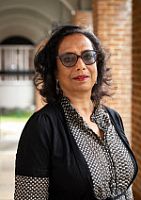
Prof Vinita Damodaran
Professor of South Asian History
View profile of Vinita Damodaran

Prof Geert De Neve
Head of School Global Studies
View profile of Geert De Neve

Prof Priya Deshingkar
Professor of Migration and Development
View profile of Priya Deshingkar

Dr Demet Dinler
Lecturer in Anthropology and International Development
View profile of Demet Dinler

Dr Synne Dyvik
Senior Lecturer In International Relations
View profile of Synne Dyvik

Prof James Fairhead
Professor of Social Anthropology
View profile of James Fairhead
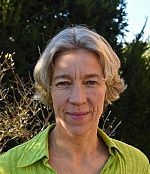
Prof Anne-Meike Fechter
Professor of Anthropology and International Development
View profile of Anne-Meike Fechter
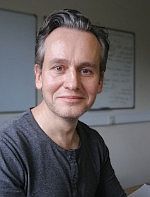
Dr Earl Gammon
Senior Lecturer in Global Political Economy
View profile of Earl Gammon

Dr Melissa Gatter
View profile of Melissa Gatter

Dr Paul Gilbert
Senior Lecturer in International Development
View profile of Paul Gilbert

Dr Daniel Haberly
Senior Lecturer in Human Geography
View profile of Daniel Haberly

Prof Elizabeth Harrison
View profile of Elizabeth Harrison
Dr Christopher Hesketh
Lecturer in International Relations
View profile of Christopher Hesketh

Dr Andrew Hook
View profile of Andrew Hook
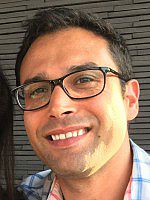
Dr David Karp
View profile of David Karp

Prof Raminder Kaur
Professor of Anthropology & Cultural Studies
View profile of Raminder Kaur
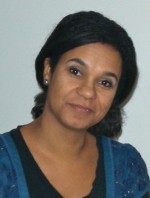
Prof Pamela Kea
View profile of Pamela Kea

Dr Evan Killick
View profile of Evan Killick
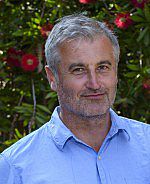
Prof Dominic Kniveton
Professor of Climate Science & Society
View profile of Dominic Kniveton
Dr Ushehwedu Kufakurinani
Lecturer in International Development
View profile of Ushehwedu Kufakurinani

Dr Anna Laing
View profile of Anna Laing

Prof Alan Lester
Professor of Historical Geography
View profile of Alan Lester

Dr Julie Litchfield
Senior Lecturer in Economics
View profile of Julie Litchfield
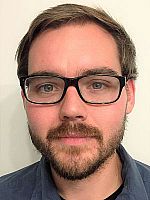
Dr William Lock
View profile of William Lock

Prof Magnus Marsden
Professor Of Social Anthropology
View profile of Magnus Marsden

Dr Kamran Matin
View profile of Kamran Matin

Prof JoAnn McGregor
Professor Of Human Geography
View profile of JoAnn McGregor

Dr Lyndsay McLean
View profile of Lyndsay McLean
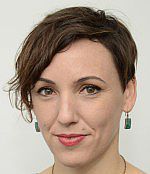
Dr Elizabeth Mills
View profile of Elizabeth Mills

Prof Peter Newell
Professor of International Relations
View profile of Peter Newell
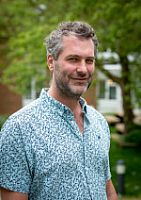
Prof David Ockwell
Professor of Sustainability and International development
View profile of David Ockwell

Prof Louiza Odysseos
View profile of Louiza Odysseos

Dr Ceri Oeppen
View profile of Ceri Oeppen
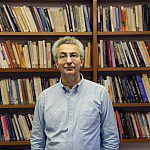
Prof Filippo Osella
Professor Of Anthropology And South Asian Studies
View profile of Filippo Osella

Dr Suda Perera
View profile of Suda Perera
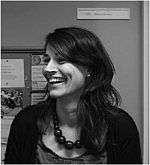
Dr Rebecca Prentice
View profile of Rebecca Prentice
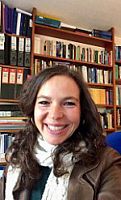
Dr Dinah Rajak
View profile of Dinah Rajak

Prof Ben Rogaly
Professor of Human Geography
View profile of Ben Rogaly

Dr Pedram Rowhani
Reader in Geography
View profile of Pedram Rowhani
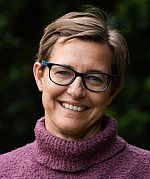
Prof Anke Schwittay
Professor of Anthropology & Global Development
View profile of Anke Schwittay

Prof Benjamin Selwyn
Professor of International Relations and International Development
View profile of Benjamin Selwyn
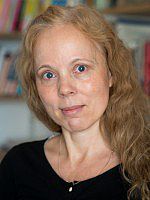
Prof Margaret Sleeboom-Faulkner
Professor of Social & Medical Anthropology
View profile of Margaret Sleeboom-Faulkner
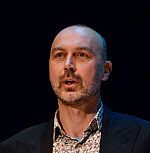
Prof Paul Statham
Professor of Migration
View profile of Paul Statham

Prof Anna Stavrianakis
View profile of Anna Stavrianakis
Dr Linda Tabar
Senior Lecturer in Global Insecurities
View profile of Linda Tabar

Prof Maya Unnithan
Professor 0f Social And Medical Anthropology
View profile of Maya Unnithan
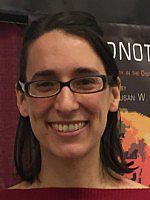
Dr Alice Wilson
Senior Lecturer in Anthropology
View profile of Alice Wilson
Funding and fees
How can i fund my course, funded projects and scholarships.
Our aim is to ensure that every student who wants to study with us is able to despite financial barriers, so that we continue to attract talented and unique individuals. Don’t miss out on scholarships – check the specific application deadlines for funding opportunities. Note that funded projects aren’t available for all our PhDs.
Commonwealth PhD Scholarships (for least developed countries and fragile states) for full-time doctoral study at a UK university.
Find out more
A number of ESRC-funded standalone PhD and PhD with Masters scholarships across the social sciences.
A maintenance allowance for a Black home PGR student for 4 years starting at £19,237 in 2024-5 and UK PhD fees for 4 years
Applying for USA Federal Student Aid?
If any part of your funding, at any time, is through USA federal Direct Loan funds, you will be registered on a separate version of this degree which does not include the possibility of distance learning which is prohibited under USA federal regulations. Find out more about American Student Loans and Federal Student Aid .
Part-time work
We advertise around 2,500 part-time jobs a year so you can make money and gain work experience. We have a special scheme to employ students on campus, wherever possible.
Find out more about careers and employability
How much does it cost?
Fees for self-funding students.
Home students: Fees are not yet set for entry in the academic year 2025/26. Fees will become available once set by United Kingdom Research and Innovation.
Channel Islands and Isle of Man students: Fees are not yet set for entry in the academic year 2025/26. Fees will become available once set by United Kingdom Research and Innovation.
International students: £22,575 per year for full-time students
Home PhD student fees are set at the level recommended by United Kingdom Research and Innovation (UKRI) annually, rising in line with inflation. Overseas fees are subject to an annual increase - see details on our tuition fees page
Additional costs
Note about additional costs.
Please note that all costs are best estimates based on current market values. Activities may be subject to unavoidable change in response to Government advice. We’ll let you know at the earliest opportunity. We review estimates every year and they may vary with inflation. Find out how to budget for student life .
Empirical research costs
On top of your PhD fees and living costs, you may also need to cover some research and training costs, relevant to your research project. These costs will depend on your research topic and training needs, but may include: - travel (to archives, collections or scientific facilities) - a laptop - overseas fieldwork costs (travel and accommodation, and language training) - conference costs (travel, registration fees and accommodation) - laboratory consumables and workshop materials - participant costs - transcription or translation costs - open-access publication costs. If you have a scholarship from one of the UK Research Councils, your scholarship should cover these types of costs. You'll receive details of how to claim this additional funding. If you're self funded, or if your scholarship doesn’t cover these costs, check with the Research and Enterprise Co-ordinator in your School for details of School or Doctoral School funding that may be available.
- Living costs
Find out typical living costs for studying at Sussex
Find out about our terms and conditions
Explore our campus
Experience Sussex life in our virtual tour.
Start your virtual tour
PhD Information Sessions
Visit campus and chat to staff and students. Book your place
Online PhD Sessions
Join a live webchat. Book your place
International
Meet us in your country
Course enquiries
+44 (0)1273 876787
Send us a message
Admissions enquiries
If you haven’t applied yet:
+44 (0)1273 877107 globalresearch@sussex.ac.uk
Dr Andreas Antoniades International Development PhD Convenor +44 (0)1273 872875 a.a.antoniades@sussex.ac.uk
Find out about the School of Global Studies
After you’ve applied:
+44 (0)1273 877773 [email protected]
Find out how to apply
Quick links
- Guide to PhD study
- PhD support
- Academic facilities
- Open Days and events
- Accommodation
- International students
- Student life
- Order a printed prospectus
What do you want to do next?
- Courses Browse our courses by subject area
- Sussex Life Find out about life at Sussex
- Visit Come to a PhD Open Evening
- Apply Find out how to apply
Recommended pages
- Undergraduate open days
- Postgraduate open days
- Accommodation
- Information for teachers
- Maps and directions
- Sport and fitness
PhD International Development
- Visit an Open Day
- Request a prospectus
- Course details
- Entry Requirements
- Teaching and assessment
- Employability
The International Development Department (IDD) is committed to encouraging new thinking in the fields of development studies, global politics, and public policy.
Studying for a degree by research with IDD means being part of an active research and practitioner community that will support you in accomplishing your academic goals.
Undertaking a PhD in International Development, you will have the opportunity to conduct original research under the guidance of academic supervisors within an active research environment with a focus on real world impact, leading to an 80,000 word thesis. You will take a number of research training modules in your first year and may attend further courses offered by the Department or the University that enhance your personal discipline-specific and transferable skills.
IDD is part of the School of Government, one of the leading UK and international centres for governance, politics, international development, and public management. As one of the largest Schools of Government, in the United Kingdom, it is home to more than 80 full-time academic staff, more than 1,200 undergraduate and taught postgraduate students, and more than 70 doctoral researchers. In the 2021 Research Excellence Framework, IDD was ranked 3rd in the country for the impact of our research on society.
The School of Government offers much more than a degree. As a doctoral student here, you have the opportunity to take part in a wide range of research events with staff and other doctoral students, including a PGR Colloquium and departmental speaker series. In addition, an individual training plan is drawn up to meet the needs of each student, covering coursework and skills development. As such, completing this research degree will cultivate specialist knowledge in your field and professional skills for a range of career settings.
We are particularly interested in receiving applications on the following themes:
- Conflict and post conflict reconstruction
- Governance and politics of development
- Natural resource governance, management and livelihoods
- Politics of environmental change and sustainable development
- Inequality, poverty, and anti-corruption
- Democracy and authoritarianism
- Public sector management and decentralisation
Applications to study for a research degree on either a full- or part-time basis are welcome.
Further information
- IDD Doctoral research page
- Guidance on preparing a research proposal
- Doctoral Research Scholarships and funding
Doctoral Research Student Administration Tel: +44 (0)121 414 3497, Email: [email protected]
Fees 2024 - 2025
- Code 6612 - £4,778 (UK) Full time
- Code 6612 - £21,360 (international) Full time
- Code 6613 - £2,389 (UK) Part time
- Code 696B - £4,778 (UK) Distance Learning 4 years
- Code 696B - £21,360 (International) Distance Learning 4 years
- Code 998A - £2,389 (UK) Distance Learning 8 years
- Code 998A - £10,680 (International) Distance Learning 8 years
- Code 6615 - £4,778 (UK) MPhil Full time
- Code 6615 - £21,360 (International) MPhil Full time
For the most up-to-date information on fees, please contact the Department directly.
Learn more about fees .
Scholarships and studentships
International students can often gain funding through overseas research scholarships, Commonwealth scholarships or their home government. Information on scholarships and bursaries can be found via International Development Department
Explore our Postgraduate scholarship and funding database

How To Apply
- How to apply
To apply for a postgraduate research programme, you will need to submit your application and supporting documents online. We have put together some helpful information on the research programme application process and supporting documents on our how to apply page . Please read this information carefully before completing your application.
Our Standard Requirements
MPhil: A good Honours degree in a relevant field, but the application may also be supported by appropriate work experience. Applicants for the MPhil degree should provide evidence of their research ability, for example, the mark received for an undergraduate dissertation.
PhD: Excellent undergraduate and postgraduate degrees. Typically the latter will be a taught masters degree, including a dissertation. Normally candidates for the PhD programme will initially be offered a place on the MPhil programme and will be transferred to the PhD at the end of the first year, subject to a satisfactory review of progress.
Besides formal qualifications, a key factor determining whether the Department decides to accept a candidate for either degree is the quality of his or her research proposal and its relevance to our own interests. Successful completion of a research thesis demands a high level of self-discipline, motivation and commitment to the subject of research. Great importance is placed on work experience, when relevant. Please contact the Department for more details.
Learn more about entry requirements and see our Guidance for applying for a PhD .
International Requirements
Applicants for postgraduate research programmes should hold a Bachelors degree and a Masters degree, with a GPA of 14/20 from a recognised institution to be considered. Applicants with lower grades than this may be considered on an individual basis.
Holders of the Licenciado or an equivalent professional title from a recognised Argentinian university, with a promedio of at least 7.5, may be considered for entry to a postgraduate degree programme. Applicants for PhD degrees will normally have a Maestria or equivalent
Applicants who hold a Masters degree will be considered for admission to PhD study.
Holders of a good four-year Diplomstudium/Magister or a Masters degree from a recognised university with a minimum overall grade of 2.5 will be considered for entry to postgraduate research programmes.
Students with a good 5-year Specialist Diploma or 4-year Bachelor degree from a recognised higher education institution in Azerbaijan, with a minimum GPA of 4/5 or 80% will be considered for entry to postgraduate taught programmes at the University of Birmingham.
For postgraduate research programmes applicants should have a good 5-year Specialist Diploma (completed after 1991), with a minimum grade point average of 4/5 or 80%, from a recognised higher education institution or a Masters or “Magistr Diplomu” or “Kandidat Nauk” from a recognised higher education institution in Azerbaijan.
Applicants for postgraduate research programmes should hold a Bachelors degree and a Masters degree, with a GPA of 3.0/4.0 or 75% from a recognised institution to be considered. Applicants with lower grades than this may be considered on an individual basis.
Applicants for postgraduate research programmes should hold a Bachelors degree and will usually be required to have completed a Masters degree, with a CGPA of 3.0-3.3/4.0 or higher for 2:1 equivalency from a recognised institution to be considered for entry. Applicants with lower grades than this may be considered on an individual basis.
Students who hold a Masters degree from the University of Botswana with a minimum GPA of 3.0/4.0 or 3.5/5.0 (70%/B/'very good') will be considered for Postgraduate Diplomas and Masters degrees.
Please note 4-year bachelor degrees from the University of Botswana are considered equivalent to a Diploma of Higher Education. 5-year bachelor degrees from the University of Botswana are considered equivalent to a British Bachelor (Ordinary) degree.
Students who have completed a Masters degree from a recognised institution will be considered for PhD study.
A Licenciatura or Bacharelado degree from a recognised Brazilian university:
- A grade of 7.5/10 for entry to programmes with a 2:1 requirement
- A grade of 6.5/10for entry to programmes with a 2:2 requirement
Holders of a good Bachelors degree with honours (4 to 6 years) from a recognised university with a upper second class grade or higher will be considered for entry to taught postgraduate programmes. Holders of a good Masters degree from a recognised university will be considered for entry to postgraduate research programmes.
Holders of a good post-2001 Masters degree from a recognised university will be considered for entry to postgraduate research programmes.
Students with a minimum average of 14 out of 20 (or 70%) on a 4-year Licence, Bachelor degree or Diplôme d'Etudes Superieures de Commerce (DESC) or Diplôme d'Ingénieur or a Maîtrise will be considered for Postgraduate Diplomas and Masters degrees.
Holders of a bachelor degree with honours from a recognised Canadian university may be considered for entry to a postgraduate degree programme. A GPA of 3.0/4, 7.0/9 or 75% is usually equivalent to a UK 2.1.
Holders of the Licenciado or equivalent Professional Title from a recognised Chilean university will be considered for Postgraduate Diplomas and Masters degrees. Applicants for PhD study will preferably hold a Magister degree or equivalent.
Students with a bachelor’s degree (4 years minimum) may be considered for entry to a postgraduate degree programme. However please note that we will only consider students who meet the entry guidance below.
Please note: for the subject areas below we use the Shanghai Ranking 2023 (full table) , Shanghai Ranking 2024 (full table) and Shanghai Ranking of Chinese Art Universities 2024
需要具备学士学位(4年制)的申请人可申请研究生课程。请根据所申请的课程查看相应的入学要求。 请注意,中国院校名单参考 软科中国大学排名2023(总榜) , 软科中国大学排名2024(总榜) ,以及 软科中国艺术类高校名单2024 。
Business School (excluding MBA) and School of Computer Science programmes 商学院 ( MBA除外) 及计算机学院硕士 课程入学要求
| Group 1 一类大学
Grade requirement 均分要求75% | 39所 院校 |
| Group 2 二类大学
grade requirement 均分要求80% | 软科中国大学排名2023(总榜)或软科中国大学排名2024(总榜)排名前100的大学 非‘985工程’的其他 院校 以及以下两所大学: University of Chinese Academy of Sciences 中国科学院大学 |
| Group 3 三类大学
grade requirement 均分要求85% | 软科中国大学排名2023(总榜)或 软科中国大学排名2024(总榜)101-200位的大学 |
| Group 4四类大学*
grade requirement 均分要求87% | 软科中国大学排名2023(总榜)或 软科中国大学排名2024(总榜)201-300位的大学
|
* Applicants from Group 4 institutions are only considered for the following 7 programmes
来自第四类院校的申请人仅限于申请以下7个课程:
- MSc Financial Management
- MSc Investments
- MSc Financial Technology
- MSc Economics
- MSc Financial Economics
- MSc Money, Banking and Finance
- MSc Computer Science
All other programmes (including MBA) 所有其他 硕士课程(包括 MBA)入学要求
| Group 1 一类大学
Grade requirement 均分要求73% | 39所 院校 |
| Group 2 二类大学
grade requirement 均分要求78% | 软科中国大学排名2023(总榜)或软科中国大学排名2024(总榜)排名前200的大学 非‘985工程’的其他 院校 软科中国艺术类高校名单2024排名前11的艺术类院校 以及以下两所大学: University of Chinese Academy of Sciences 中国科学院大学 |
| Group 3 三类大学
grade requirement 均分要求85% | 软科中国大学排名2023(总榜)或2024(总榜)201- 500位的大学 软科中国艺术类高校名单2024排名前12-30位的艺术类院校 |
| Group 4 四类大学
| We will consider students from these institutions ONLY on a case-by-case basis with minimum 85% if you have a relevant degree and very excellent grades in relevant subjects and/or relevant work experience. 来自四类大学的申请人均分要求最低85%,并同时具有出色学术背景,优异的专业成绩,以及(或)相关的工作经验,将酌情考虑。 软科中国大学排名2023(总榜)或2024(总榜)501位以后的大学 软科中国艺术类高校名单2024排名31-35位的艺术类院校 |
Please contact the China Recruitment Team for any questions on the above entry requirements.
如果您对录取要求有疑问,请联系伯明翰大学中国办公室 [email protected]
Holders of the Licenciado/Professional Title from a recognised Colombian university will be considered for our Postgraduate Diploma and Masters degrees. Applicants for PhD degrees will normally have a Maestria or equivalent.
Holders of a good bachelor degree with honours (4 to 6 years) from a recognised university with a upper second class grade or higher will be considered for entry to taught postgraduate programmes. Holders of a good Masters degree from a recognised university will be considered for entry to postgraduate research programmes.
Holders of a good Bacclaureus (Bachelors) from a recognised Croatian Higher Education institution with a minimum overall grade of 4.0 out of 5.0, vrlo dobar ‘very good’, or a Masters degree, will be considered for entry to postgraduate research programmes.
Holders of a Bachelors degree(from the University of the West Indies or the University of Technology) may be considered for entry to a postgraduate degree programme. A Class II Upper Division degree is usually equivalent to a UK 2.1. For further details on particular institutions please refer to the list below. Applicants for PhD level study will preferably hold a Masters degree or Mphil from the University of the West Indies.
Applicants for postgraduate research programmes should hold a good Bachelors degree from a recognised institution with a minimum overall grade of 6.5 out of 10, or a GPA of 3 out of 4, and will usually be required to have completed a good Masters degree to be considered for entry to postgraduate research programmes. Applicants with lower grades than this may be considered on an individual basis.
Holders of a good Bakalár from a recognised Czech Higher Education institution with a minimum overall grade of 1.5, B, velmi dobre ‘very good’ (post-2004) or 2, velmi dobre ‘good’ (pre-2004), or a good post-2002 Magistr (Masters), will be considered for entry to postgraduate research programmes.
Applicants for postgraduate research programmes should hold a good Bachelors degree from a recognised institution with a minimum overall grade of 7-10 out of 12 (or 8 out of 13) or higher for 2:1 equivalence and will usually be required to have completed a good Masters/ Magisterkonfereus/Magister Artium degree to be considered for entry to postgraduate research programmes. Applicants with lower grades than this may be considered on an individual basis.
Holders of the Licenciado or an equivalent professional title from a recognised Ecuadorian university may be considered for entry to a postgraduate degree programme. Grades of 70% or higher can be considered as UK 2.1 equivalent. Applicants for PhD level study will preferably hold a Magister/Masterado or equivalent qualification, but holders of the Licenciado with excellent grades can be considered.
Applicants for postgraduate research programmes should hold a Bachelors degree and a Masters degree, with a GPA of 3.0/4.0 or 75% from a recognised institution. Applicants with lower grades than this may be considered on an individual basis.
Holders of a good Bakalaurusekraad from a recognised university with a minimum overall grade of 4/5 or B, or a good one- or two-year Magistrikraad from a recognised university, will be considered for entry to postgraduate research programmes.
Students who hold a Masters degree with very good grades (grade B, 3.5/4 GPA or 85%) will be considered for Postgraduate Diplomas and Masters degrees.
Holders of a good Kandidaatti / Kandidat (old system), a professional title such as Ekonomi, Diplomi-insinööri, Arkkitehti, Lisensiaatti (in Medicine, Dentistry and Vetinary Medicine), or a Maisteri / Magister (new system), Lisensiaatti / Licenciat, Oikeustieteen Kandidaatti / Juris Kandidat (new system) or Proviisori / Provisor from a recognised Finnish Higher Education institution, with a minimum overall grade of 2/3 or 4/5, will be considered for entry to postgraduate research programmes.
Applicants for postgraduate research programmes should hold a should hold a Bachelors degree and will usually be required to have completed a Masters/Maîtrise with a minimum overall grade of 13 out of 20, or a Magistère / Diplôme d'Etudes Approfondies / Diplôme d'Etudes Supérieures Specialisées / Mastère Specialis, from a recognised French university or Grande École to be considered for entry. Applicants with lower grades than this may be considered on an individual basis.
Holders of a Magister Artium, a Diplom or an Erstes Staatsexamen from a recognised university with a minimum overall grade of 2.5, or a good two-year Lizentiat / Aufbaustudium / Zweites Staatsexamen or a Masters degree from a recognised university, will be considered for entry to postgraduate research programmes.
Students who hold a Bachelor degree from a recognised institution will be considered for Postgraduate Diplomas and Masters degrees. Most taught Masters programmes require a minimum of an upper second class degree (2.1) with a minimum GPA of at least 3.0/4.0 or 3.5/5.0 Students who have completed a Masters degree from a recognised institution will be considered for PhD study.
Applicants for postgraduate research programmes should hold a good four-year Ptychio (Bachelor degree) with a minimum overall grade of 6.5 out of 10, from a recognised Greek university (AEI), and will usually be required to have completed a good Metaptychiako Diploma Eidikefsis (Masters degree) from a recognised institution to be considered for entry. Applicants with lower grades than this may be considered on an individual basis.
4-year Licenciado is deemed equivalent to a UK bachelors degree. A score of 75 or higher from Universidad de San Carlos de Guatemala (USAC) can be considered comparable to a UK 2.1, 60 is comparable to a UK 2.2. Private universities have a higher pass mark, so 80 or higher should be considered comparable to a UK 2.1, 70 is comparable to a UK 2.2
The Hong Kong Bachelor degree is considered comparable to British Bachelor degree standard. Students with bachelor degrees awarded by universities in Hong Kong may be considered for entry to one of our postgraduate degree programmes.
Students with Masters degrees may be considered for PhD study.
Holders of a good Alapfokozat / Alapképzés or Egyetemi Oklevel from a recognised university with a minimum overall grade of 3.5, or a good Mesterfokozat (Masters degree) or Egyetemi Doktor (university doctorate), will be considered for entry to postgraduate research programmes.
Applicants for postgraduate research programmes should hold a Bachelors degree and will usually be required to have completed a Masters degree, with a 60% or higher for 2:1 equivalency from a recognised institution to be considered for entry. Applicants with lower grades than this may be considered on an individual basis.
Holders of the 4 year Sarjana (S1) from a recognised Indonesian institution will be considered for postgraduate study. Entry requirements vary with a minimum requirement of a GPA of 2.8.
Applicants for postgraduate research programmes should hold a Bachelors degree and a Masters degree, with a score of 14/20 or 70% from a recognised institution to be considered. Applicants with lower grades than this may be considered on an individual basis.
Applicants for postgraduate research programmes should hold a Bachelors degree and will usually be required to have completed a Masters degree from a recognised institution, with 100 out of 110 or higher for 2:1 equivalency from a recognised institution to be considered for entry. Applicants with lower grades than this may be considered on an individual basis.
Students who hold the Maitrise, Diplome d'Etude Approfondies, Diplome d'Etude Superieures or Diplome d'Etude Superieures Specialisees will be considered for Postgraduate Diplomas and Masters degrees (14-15/20 or Bien from a well ranked institution is considered comparable to a UK 2.1, while a score of 12-13/20 or Assez Bien is considered comparable to a UK 2.2).
Students with a Bachelor degree from a recognised university in Japan will be considered for entry to a postgraduate Masters degree provided they achieve a sufficiently high overall score in their first (Bachelor) degree. A GPA of 3.0/4.0 or a B average from a good Japanese university is usually considered equivalent to a UK 2:1.
Students with a Masters degree from a recognised university in Japan will be considered for PhD study. A high overall grade will be necessary to be considered.
Students who have completed their Specialist Diploma Мамаң дипломы/Диплом специалиста) or "Magistr" (Магистр дипломы/Диплом магистра) degree (completed after 1991) from a recognised higher education institution, with a minimum GPA of 2.67/4.00 for courses requiring a UK lower second and 3.00/4.00 for courses requiring a UK upper second class degree, will be considered for entry to postgraduate Masters degrees and, occasionally, directly for PhD degrees. Holders of a Bachelor "Bakalavr" degree (Бакалавр дипломы/Диплом бакалавра) from a recognised higher education institution, with a minimum GPA of 2.67/4.00 for courses requiring a UK lower second and 3.00/4.00 for courses requiring a UK upper second class degree, may also be considered for entry to taught postgraduate programmes.
Students who hold a Bachelor degree from a recognised institution will be considered for Postgraduate Diplomas and Masters degrees. Most taught Masters programmes require a minimum of an upper second class degree (2.1) with a minimum GPA of at least 3.0/4.0 or 3.5/50
Holders of a good Postgraduate Diploma (professional programme) from a recognised university or institution of Higher Education, with a minimum overall grade of 7.5 out of 10, or a post-2000 Magistrs, will be considered for entry to postgraduate research programmes.
Applicants for postgraduate research programmes should hold a Bachelors degree and a Masters degree, with a score of 16/20 or 80% from a recognised institution to be considered. Applicants with lower grades than this may be considered on an individual basis.
Holders of a Bachelors degree from a recognised university in Libya will be considered for postgraduate study. Holders of a Bachelors degree will normally be expected to have achieved score of 70% for 2:1 equivalency or 65% for 2:2 equivalency. Alternatively students will require a minimum of 3.0/4.0 or BB to be considered.
Holders of a good pre-2001 Magistras from a recognised university with a minimum overall grade of 8 out of 10, or a good post-2001 Magistras, will be considered for entry to postgraduate research programmes
Holders of a good Bachelors degree from a recognised Luxembourgish Higher Education institution with a minimum overall grade of 16 out of 20, or a Diplôme d'Études Supérieures Spécialisées (comparable to a UK PGDip) or Masters degree from a recognised Luxembourgish Higher Education institution will be considered for entry to postgraduate research programmes.
Students who hold a Masters degree will be considered for Postgraduate Diplomas and Masters degrees (70-74% or A or Marginal Distinction from a well ranked institution is considered comparable to a UK 2.1, while a score of 60-69% or B or Bare Distinction/Credit is considered comparable to a UK 2.2).
Holders of a Bachelors degree from a recognised Malaysian institution (usually achieved with the equivalent of a second class upper or a grade point average minimum of 3.0) will be considered for postgraduate study at Diploma or Masters level.
Holders of a good Bachelors degree from the University of Malta with a minimum grade of 2:1 (Hons), and/or a Masters degree, will be considered for entry to postgraduate research programmes.
Students who hold a Bachelor degree (Honours) from a recognised institution (including the University of Mauritius) will be considered for Postgraduate Diplomas and Masters degrees. Most taught Masters programmes require a minimum of an upper second class degree (2:1).
Students who hold the Licenciado/Professional Titulo from a recognised Mexican university with a promedio of at least 8 will be considered for Postgraduate Diplomas and Masters degrees.
Students who have completed a Maestria from a recognised institution will be considered for PhD study.
Applicants for postgraduate research programmes should hold a Bachelors degree, licence or Maîtrise and a Masters degree, with a score of 14/20 or 70% from a recognised institution to be considered. Applicants with lower grades than this may be considered on an individual basis.
Students with a good four year honours degree from a recognised university will be considered for postgraduate study at the University of Birmingham. PhD applications will be considered on an individual basis.
Applicants for postgraduate research programmes should hold a Bachelors degree and will usually be required to have completed a Masters degree, with 60-74% or higher for 2:1 equivalency from a recognised institution to be considered for entry. Applicants with lower grades than this may be considered on an individual basis.
Holders of a good Doctoraal from a recognised Dutch university with a minimum overall grade of 7 out of 10, and/or a good Masters degree, will be considered for entry to postgraduate research programmes.
Students who hold a Bachelor degree (minimum 4 years and/or level 400) from a recognised institution will be considered for Postgraduate Diplomas and Masters degrees. Most taught Masters programmes require a minimum of an upper second class degree (2.1) with a minimum GPA of at least 3.0/4.0 or 3.5/5.0
Applicants for postgraduate research programmes should hold a good Bachelors degree from a recognised institution with a minimum GPA of B/Very Good or 1.6-2.5 for a 2.1 equivalency, and will usually be required to have completed a good Masters, Mastergrad, Magister. Artium, Sivilingeniør, Candidatus realium or Candidatus philologiae degree to be considered for entry to postgraduate research programmes. Applicants with lower grades than this may be considered on an individual basis.
Applicants for postgraduate research programmes should hold a Bachelors degree and will usually be required to have completed a Masters degree, with a CGPA of 3.0/4 or higher for 2:1 equivalency from a recognised institution to be considered for entry. Applicants with lower grades than this may be considered on an individual basis.
Holders of a Bachelors degree from a recognised university in the Palestinian Territories will be considered for postgraduate study. Holders of Bachelors degree will normally be expected to have achieved a GPA of 3/4 or 80% for 2:1 equivalency or a GPA of 2.5/4 or 70% for 2:2 equivalency.
Holders of the Título de Licenciado /Título de (4-6 years) or an equivalent professional title from a recognised Paraguayan university may be considered for entry to a postgraduate degree programme. Grades of 4/5 or higher can be considered as UK 2.1 equivalent. The Título Intermedio is a 2-3 year degree and is equivalent to a HNC, it is not suitable for postgraduate entry but holders of this award could be considered for second year undergraduate entry or pre-Masters. Applicants for PhD level study will preferably hold a Título de Maestría / Magister or equivalent qualification, but holders of the Título/Grado de Licenciado/a with excellent grades can be considered.
Holders of the Bachiller, Licenciado, or Título Profesional with at least 13/20 may be considered as UK 2.1 equivalent. Applicants for PhD level study will preferably hold a Título de Maestría or equivalent qualification.
Holders of a good pre-2001 Magister from a recognised Polish university with a minimum overall grade of 4 out of 5, dobry ‘good’, and/or a good Swiadectwo Ukonczenia Studiów Podyplomowych (Certificate of Postgraduate Study) or post-2001 Magister from a recognised Polish university with a minimum overall grade of 4.5/4+ out of 5, dobry plus 'better than good', will be considered for entry to postgraduate research programmes.
Holders of a good Licenciado from a recognised university, or a Diploma de Estudos Superiores Especializados (DESE) from a recognised Polytechnic Institution, with a minimum overall grade of 16 out of 20, and/or a good Mestrado / Mestre (Masters) from a recognised university, will be considered for entry to postgraduate research programmes.
Applicants for postgraduate research programmes should hold a good Bachelors degree from a recognised Romanian Higher Education institution with a minimum overall grade of 8 out of 10, and will usually be required to have completed a Masters degree/Diploma de Master/Diploma de Studii Academice Postuniversitare (Postgraduate Diploma - Academic Studies) or Diploma de Studii Postuniversitare de Specializare (Postgraduate Diploma - Specialised Studies) to be considered for entry. Applicants with lower grades than this may be considered on an individual basis.
Holders of a good Диплом Специалиста (Specialist Diploma) or Диплом Магистра (Magistr) degree from recognised universities in Russia (minimum GPA of 4.0) will be considered for entry to taught postgraduate programmes/PhD study.
Students who hold a 4-year Bachelor degree with at least 16/20 or 70% will be considered for Postgraduate Diplomas and Masters degrees.
Students who hold a Maitrise, Diplome d'Etude Approfondies,Diplome d'Etude Superieures or Diplome d'Etude Superieures Specialisees will be considered for Postgraduate Diplomas and Masters degrees. A score of 14-15/20 or Bien from a well ranked institution is considered comparable to a UK 2.1, while a score of 12-13/20 or Assez Bien is considered comparable to a UK 2.2
Students who hold a Bachelor (Honours) degree from a recognised institution with a minimum GPA of 3.0/4.0 or 3.5/5.0 (or a score of 60-69% or B+) from a well ranked institution will be considered for most our Postgraduate Diplomas and Masters degrees with a 2:1 requirement.
Students holding a good Bachelors Honours degree will be considered for postgraduate study at Diploma or Masters level.
Holders of a good three-year Bakalár or pre-2002 Magister from a recognised Slovakian Higher Education institution with a minimum overall grade of 1.5, B, Vel’mi dobrý ‘very good’, and/or a good Inžinier or a post-2002 Magister from a recognised Slovakian Higher Education institution will be considered for entry to postgraduate research programmes.
Holders of a good Diploma o pridobljeni univerzitetni izobrazbi (Bachelors degree), Diplomant (Professionally oriented first degree), Univerzitetni diplomant (Academically oriented first degree) or Visoko Obrazovanja (until 1999) from a recognised Slovenian Higher Education institution with a minimum overall grade of 8.0 out of 10, and/or a good Diploma specializacija (Postgraduate Diploma) or Magister (Masters) will be considered for entry to postgraduate research programmes.
Students who hold a Bachelor Honours degree (also known as Baccalaureus Honores / Baccalaureus Cum Honoribus) from a recognised institution will be considered for Postgraduate Diplomas and Masters degrees. Most Masters programmes will require a second class upper (70%) or a distinction (75%).
Holders of a Masters degree will be considered for entry to postgraduate research programmes.
Holders of a Bachelor degree from a recognised South Korean institution (usually with the equivalent of a second class upper or a grade point average 3.0/4.0 or 3.2/4.5) will be considered for Masters programmes.
Holders of a good Masters degree from a recognised institution will be considered for PhD study on an individual basis.
Applicants for postgraduate research programmes should hold a Bachelors degree and will usually be required to have completed a Masters degree, with 7 out of 10 or higher for 2:1 equivalency from a recognised institution to be considered for entry. Applicants with lower grades than this may be considered on an individual basis.
Applicants for postgraduate research programmes should hold a Bachelors degree and will usually be required to have completed a Masters degree, with 60-74% or a CGPA 3.30/4.0 or higher for 2:1 equivalency from a recognised institution to be considered for entry. Applicants with lower grades than this may be considered on an individual basis.
Holders of a good Kandidatexamen (Bachelors degree) or Yrkesexamen (Professional Bachelors degree) from a recognised Swedish Higher Education institution with the majority of subjects with a grade of VG (Val godkänd), and/or a good Magisterexamen (Masters degree), International Masters degree or Licentiatexamen (comparable to a UK Mphil), will be considered for entry to postgraduate research programmes.
Holders of a good "PostGraduate Certificate" or "PostGraduate Diploma" or a Masters degree from a recognised Swiss higher education institution (with a minimum GPA of 5/6 or 8/10 or 2/5 (gut-bien-bene/good) for a 2.1 equivalence) may be considered for entry to postgraduate research programmes.
Applicants for postgraduate research programmes should hold a Bachelors degree and a Masters degree, with a GPA of 3.0/4.0, 3.5/5 or 75% from a recognised institution to be considered. Applicants with lower grades than this may be considered on an individual basis.
Holders of a good Bachelor degree (from 75% to 85% depending upon the university in Taiwan) from a recognised institution will be considered for postgraduate Masters study. Holders of a good Masters degree from a recognised institution will be considered for PhD study.
Students who hold a Bachelor degree from a recognised institution will be considered for Postgraduate Diplomas and Masters degrees. Most taught Masters programmes require a minimum of an upper second class degree (2.1) Students who have completed a Masters degree from a recognised institution will be considered for PhD study.
Holders of a good Masters degree from a recognised institution will be considered for entry to our postgraduate research programmes.
Holders of a good Masters degree or Mphil from a recognised university will be considered for entry to postgraduate research programmes.
Students with a Bachelors degree from the following universities may be considered for entry to postgraduate programmes:
- Ateneo de Manila University - Quezon City
- De La Salle University - Manila
- University of Santo Tomas
- University of the Philippines - Diliman
Students from all other institutions with a Bachelors and a Masters degree or relevant work experience may be considered for postgraduate programmes.
Grading Schemes
1-5 where 1 is the highest 2.1 = 1.75 2.2 = 2.25
Out of 4.0 where 4 is the highest 2.1 = 3.0 2.2 = 2.5
Letter grades and percentages 2.1 = B / 3.00 / 83% 2.2 = C+ / 2.5 / 77%
Holders of a postdoctoral qualification from a recognised institution will be considered for PhD study. Students may be considered for PhD study if they have a Masters from one of the above listed universities.
Holders of a Lisans Diplomasi with a minimum grade point average (GPA) of 3.0/4.0 from a recognised university will be considered for postgraduate study at Diploma or Masters level.
Holders of a Yuksek Diplomasi from a recognised university will be considered for PhD study.
Students who hold a Bachelor degree from a recognised institution will be considered for Postgraduate Diplomas and Masters degrees. Most Masters programmes will require a second class upper (2.1) or GPA of 3.5/5.0
Applicants for postgraduate research programmes should hold a good Bachelors degree / Диплом бакалавра (Dyplom Bakalavra), Диплом спеціаліста (Specialist Diploma) or a Dyplom Magistra from a recognised Ukrainian higher education institution with a minimum GPA of 4.0/5.0, 3.5/4, 8/12 or 80% or higher for 2:1 equivalence and will usually be required to have completed a good Masters degree to be considered for entry to postgraduate research programmes. Applicants with lower grades than this may be considered on an individual basis.
The University will consider students who hold an Honours degree from a recognised institution in the USA with a GPA of:
- 2.8 GPA (on a 4.0 scale) for entry to programmes with a 2:2 requirement
- 3.2 GPA (on a 4.0 scale) for entry to programmes with a 2:1 requirement
Please note that some subjects which are studied at postgraduate level in the USA, eg. Medicine and Law, are traditionally studied at undergraduate level in the UK.
Holders of the Magistr Diplomi (Master's degree) or Diplomi (Specialist Diploma), awarded by prestigious universities, who have attained high grades in their studies will be considered for postgraduate study. Holders of the Fanlari Nomzodi (Candidate of Science), where appropriate, will be considered for PhD study.
Holders of the Licenciatura/Título or an equivalent professional title from a recognised Venezuelan university may be considered for entry to a postgraduate degree programme. Scales of 1-5, 1-10 and 1-20 are used, an overall score of 70% or equivalent can be considered equivalent to a UK 2.1. Applicants for PhD level study will preferably hold a Maestria or equivalent qualification
Holders of a Bachelors degree from a recognised Vietnamese institution (usually achieved with the equivalent of a second class upper or a grade point average minimum GPA of 7.0 and above) will be considered for postgraduate study at Diploma or Masters level. Holders of a Masters degree (thac si) will be considered for entry to PhD programmes.
Students who hold a Masters degree with a minimum GPA of 3.5/5.0 or a mark of 2.0/2.5 (A) will be considered for Postgraduate Diplomas and Masters degrees.
Students who hold a good Bachelor Honours degree will be considered for Postgraduate Diplomas and Masters degrees.
International Students
You can satisfy our English language requirements in two ways:
- by holding an English language qualification to the right level - IELTS 6.5 with no less than 6.0 in any band
- by taking and successfully completing one of our English courses for international students
Research within the School of Government is aligned to one of three departments and Institutes:
The Department of Political Science and International Studies (POLSIS)
Dr Columba Achilleos-Sarll Feminist and post/decolonial theory; the Women, Peace and Security agenda; civil society and advocacy; visual global politics.
Dr David Bailey Protest, critical political economy and contemporary capitalism
Dr Stephen Bates British politics; Parliamentary Studies (in comparative perspective or focused on the UK Parliament).
Dr Tendayi Bloom Noncitizenship; Statelessness; Migration governance.
Dr Verena K. Brändle Digital democracy; social media and politics; European politics; border and migration studies; political communication
Dr Sarah Bufkin Racism and racialization; Black Atlantic political thought; Critical Theory; Cultural Studies.
Professor Peter Burnham Restructuring of the state in the global political economy; State theory and radical theories of IPE; Marx and contemporary Marxism; Economic policy and capitalist crisis.
Dr Mwita Chacha Regional integration; International cooperation; Politics of coups d’état; Public opinion.
Dr Licia Cianetti Democracy and institutional change; democratic regression; inclusion and exclusion from policymaking processes; cities and local democracy.
Dr Laurence Cooley Politics of deeply divided societies (especially Northern Ireland and Bosnia and Herzegovina); post-conflict power-sharing; politics of the census and identity categorisation.
Professor David Cutts Political and electoral behaviour; Party campaigning turnout; Civic engagement; Populist parties; Social media and politics.
Dr May Darwich International Relations Theory and the Middle East; Foreign policies of Middle Eastern states; Identity politics in the Middle East; Security policies in the Middle East.
Professor David Dunn US foreign and security policy; Strategic and security studies, and diplomacy and statecraft.
Dr Rita Floyd Ethics of emergency politics, theories of security (especially securitization theory), the English school and environmental security.
Dr Guiditta Fontana Peace processes and war-to-peace transitions. The design of peace accords, Powersharing and Reform of cultural and educational institutions in conflict-affected societies. Multi-method research designs. Politics of Lebanon, Northern Ireland, North Macedonia.
Dr Emma Foster Environmental politics; gender/sexuality and international relations; gender/sexuality and international relations.
Dr Charlotte Galpin European and national identities; European public sphere and media; Euroscepticism, EU citizenship and social movements; The role of Germany or Britain in Europe; Brexit; Gender and feminist approaches to these topics.
Dr Julie Gilson Japanese foreign policy; East Asian regionalism and institutions; Asia-Europe and Japan-Europe relations; Civil society in Asia; Climate change and environmentalism in Asia.
Dr Ruben Gonzalez-Vicente South-South relations; Global China; the political economy of development, especially in Asia, Latin America, and the Caribbean; critical political economy; political geography.
Dr Tim Haughton Contemporary politics of Central and Eastern Europe; Political campaigning; Party politics; Electoral politics.
Dr Laura Jenkins Feminist political theory; Contemporary political theory and British politics.
Dr Deema Kaneff Resources and Social Change; Postsocialist transformations and global capitalism; Property relations; Markets and moralities; Transnational migration, Social exclusion and inequalities. (Europe, Eastern Europe, Bulgaria and Ukraine)
Dr Peter Kerr British politics; State theory and theories of social and political change; UK party politics and party modernisation; Political leadership and governing strategies in the UK; Citizenship and political participation and political sociology.
Dr George Kyris International conflict, conflict management and resolution; International organisations, especially the European Union; State recognition; Statehood and sovereignty; Secession; unrecognised/ de facto states.
Professor René Lindstädt American Politics; Political Institutions; Accountability; Representation; Legislative politics and institutions; Elections; Political methodology
Dr Huw Macartney International or Comparative Political Economy; Banking and financial market governance; Globalisation, and historical materialism.
Dr Cerwyn Moore Political violence; international relations theory; Post-Soviet and post-communist security; Interpretive approaches to global politics and Chechnya.
Dr Richard North Any area of contemporary political philosophy, but particularly on justice and liberal and democratic political philosophy.
Dr Julian Panke European Union Politics; European Neighbourhood Policy; German foreign policy and Eastern European foreign policies (Poland, Slovakia).
Professor Patrick Porter The interaction of power and ideas in the making of foreign and defence policy in the U.S. and U.K, and in shaping their conflicts, classical realism, strategic thought and great power diplomacy.
Dr Adam Quinn US ‘grand strategy’; American national identity; American foreign and security policy; Ideological contest in American politics (contemporary and historical).
Dr Robert Ralston International Security; Civil-Military Relations; Grand Strategy.
Dr Richard Shorten Political theory, ideology, and rhetoric; fascism, Marxism and totalitarianism; reactionaries and conservatives; the political thought of Hannah Arendt, Albert Camus and George Orwell; intellectual politics of the Cold War.
Dr Asaf Siniver International mediation and conflict resolution; The politics, diplomacy and history of the Arab-Israeli conflict; The Israeli-Palestinian peace process; Contemporary US foreign policy and Foreign Policy Analysis.
Dr Nicola Smith Gender and sexuality; Feminist political economy; Queer theory; Biopolitics; Body politics; Sex Work; Obesity; Austerity.
Dr Graham Timmins Areas related to the external relations and foreign policy role of the European Union with specific reference to EU-Russia and German-Russian relations.
Dr Tsering Topgyal Chinese foreign and security policy; Tibet and China’s Nationality Policy; Asia-Pacific security and politics; US-China relations; Sino-Indian relations and Security studies.
Dr Sevasti-Eleni Vezirgiannidou International Environmental Politics; Climate change politics; Environment and trade negotiations; Environmental Regime effectiveness and compliance and The trade-environment debate.
Dr Marco Vieira Rising powers and global order; South-South political cooperation/identity/institutions, South American/Latin American politics; Brazilian foreign policy and International relations theory.
Dr Yi Wang Memory politics; Nationalism and national identity; Contemporary China; International relations of East Asia; Political communication
Dr Robert Watt Military History, power and networks, Small Wars/Insurgencies; Native American History & Politics.
Professor Mark Webber NATO; transatlantic relations; European security; American, Russian and British foreign policy; Theories and practices of security
Dr Mark Wenman Continental philosophy; Contemporary political theory; The philosophy of the social sciences; The history of political thought.
Professor Nicholas Wheeler Trust-building between adversaries, especially nuclear armed states; Nuclear weapons and proliferation.
Professor Kataryna Wolczuk Politics of Russia and post-Soviet countries; EU’s Eastern policy, Russia’s policy towards the post-Soviet states; Regional integration in the post-Soviet space; Nationalism and national identities (across Europe and Eurasia).
Professor Stefan Wolff - Ethnic conflict, civil war, post-conflict state-building; Geopolitics and great-power rivalry; Central Asia, South Caucasus, Eastern Europe, Western Balkans, Middle East & North Africa.
Dr Christalla Yakinthou Conflict transformation, particularly post-settlement; Transitional justice both in theory and practice, and transitions in the MENA region; The relationship between constitutional design and transitional justice; Power sharing, Cypriot, Lebanese, and Tunisian politics and conflicts and the right to truth in international law and practice, and issues around enforced disappearance and missing people during conflict.
Dr Sotirios Zartaloudis European Union politics and policies; Migration in Europe; European politics; Discourse
The International Development Department (IDD)
Dr Sameen A. Mohsin Ali Bureaucratic politics; politics of development, donor engagement, and public sector reform; public health, especially with regard to vaccination; politics of South Asia (especially Pakistan)
Dr Philip Amis Urbanisation; Urban policy; Poverty and housing.
Not currently accepting new PhD supervision applications
Dr Danielle Beswick UK development policy, including parliamentary scrutiny and public engagement in this; UK Africa relations; The UK Conservative Party and development; Politics, identity and security in Sub-Saharan Africa, particularly Rwanda; Knowledge exchange between universities and legislatures.
Dr Brock Bersaglio The political ecology of biodiversity conservation, wild meat (including food sovereignty), and zoonotic disease in eastern/southern Africa; anti-, post- and settler colonial development studies
Dr Adrian Campbell Public and local government reform, especially in transitional states.
Professor Nic Cheeseman Elections and democratization; The formation of a social contract in new democracies; Power-sharing and the politics of inclusion; Populism and strategies of political mobilization; African political thought.
Dr David Cobley Disability-inclusive approaches to development, especially in the areas of poverty reduction, livelihood development, inclusive education and disaster risk reduction.
Dr Niheer Dasandi Politics of international development and foreign aid; development and human rights; politics of climate change and health; foreign policy and development
Dr Jonathan Fisher Authoritarianism and authoritarian rule; (in)security and conflict; international politics of aid and peacekeeping; particular interest in sub-Saharan Africa.
Professor David Hudson Politics of leadership and coalitions; public opinion, survey analysis, and experiments; migration decision making; network analysis.
Professor Paul Jackson Conflict and post-conflict reconstruction; security sector reform and international intervention; combatants, politics and social reintegration; peacebuilding; economic development.
Dr Chris Lyon Politics of development; political theory; democracy, participation, decentralisation; social justice; development ethics
Professor Heather Marquette The politics of development and foreign policy; Corruption, kleptocracy and organised crime; Anti-corruption/counter-organised crime strategies and interventions
Dr Claire McLoughlin State legitimacy; The politics of public service delivery; The role of ideas in development.
Dr Emeka Njoku Critical security studies; Terrorism and counter-terrorism; Nonprofit organisations; conflict-related gender/sexual violence; State-civil society relations; peacebuilding.
Professor Fiona Nunan Renewable natural resource governance, management and livelihoods in low- and middle-income countries, especially fisheries and coastal ecosystems and community-based or collaborative governance.
Dr Martin Ottmann Political economy of civil war and development, including peace processes and negotiated settlements; Power-sharing, resource redistribution, elections, and political trust after war. PhD applications relying on advanced statistical research methods, mixed-methods designs, and modern methods of causal inference are particularly welcome.
Dr Emily Scott Humanitarianism, health, and migration; international organisation (IOs) and international non-governmental organisations (INGOs); state-society relations, particularly in the Middle East; conflict and security; localization and the international politics of aid.
Dr Merisa Thompson Feminist political economy; food and agrarian studies; the politics of gender and development; histories of colonialism, particularly the Caribbean.
Dr Kailing Xie Contemporary Chinese society, Gender and reproductive politics, the politics of nation-building; Civil Society; governance beyond the state; collective memory and emotions; Chinese diaspora;feminist epistemologies and methodologies.
Department of Public Administration and Policy (DPAP)
Dr Koen Bartels Social innovation; Democratic innovation; Public encounters; Urban governance; Action research; Interpretive policy analysis; Communication; Practice theory; Relational public policy and administration.
Dr Karin Bottom The role of small parties; Comparative politics; Policy analysis; Elections and quantitative methodologies.
Dr May Chu Risk regulation; Collaborative governance; Food safety and sustainability
Dr Abena Dadze-Arthur Transfer and brokering of knowledge across cultural and institutional boundaries. Decolonizing, transforming, and indigenising approaches to public management and governance. The scientific study of subjectivity (Q Methodology)
Dr Stephen Jeffares Projects that draw on social media data to understand change or controversies in public policy.
Dr Timea Nochta Networks in governance and policy; Complexity; Smart cities, digitalisation and e-government; Climate change and net zero; Network analysis; Mixed methods
Dr Louise Reardon Multi-level governance; Policy networks; Agenda setting; Policy change; Policy implementation; Transport policy; Wellbeing and quality of life; Smart cities.
Dr Philip Whiteman Policy implementation studies; Central and local government relations; Regulation of local government; Local authority corporate management scrutiny; Public sector performance, procurement and efficiency; Public consultation and participation; Organisation dynamics.
Departments from across the School of Government are all based within the Muirhead Tower. The Muirhead Tower offers state-of-the-art teaching and research study facilities including free wifi throughout the building and dedicated study areas for postgraduate research students.
Muirhead Tower comprises 12,000sq.m of floor space between two towers. The tower includes a number of sustainable features including solar shading (known in the trade as brise soliel) to control temperatures, as well as low energy fans; timed lighting to reduce energy waste; natural ventilation systems and a heat source taken from the University’s combined heat and power generator.
The space has been designed to create modern, attractive spaces for teaching and research accommodating 150 academic offices, 230 "hubs" for post graduate research students, teaching rooms for up to 100 people and a 200 seat lecture theatre.
What type of career assistance is available to doctoral researchers in this department?
The College of Social Sciences, to which the International Development Department belongs, has specially designated careers advisors and careers consultants who can provide guidance for doctoral researchers on career paths, CVs, training opportunities, application and interviews. The University’s central Careers’ Service also runs workshops and offers personally tailored advice and guidance including 1-1 careers advice, 1-1 CV advice. The Career’s Service also runs CV writing workshops especially for postgraduates in the College of Social Sciences, giving advice on how to compile CVs for both employment and for academic roles.
The University also has dedicated careers advisors for International students who run workshops and networking opportunities with potential employers. These are especially popular with International postgraduate researchers.
- Online chat events
Browser does not support script.
Go to…
- Undergraduate
- Postgraduate
PhD research
- Research groups
A growing number of emerging economies challenge conventional understandings of development. Much is to be learnt from their experience of change. Our multidisciplinary doctoral training programme focuses on the dynamic countries of the global South where wealth sits alongside persistent poverty and precarity, and traditional aid is no longer significant. Now global inequality sits alongside stagnation, populism, and the challenges of climate change, and our critical PhD programme explores how to address this.
MPhil/PhD awards
Development studies with reference to emerging economies.
PhD Development Studies with reference to Emerging Economies in International Development Institute at King's College London.
View course
Our supervisors accept original projects that explore how development processes occur in different ways and at different scales and levels, from global to local to familial. Our PhD students come from many different countries and go onto pursue academic, research or policy careers in the private sector, government and non-governmental organisations.
The work of our PhD students seeks to understand theoretical, empirical or methodological gaps in their chosen area. Current research topics include 'Race, rent and the politics of housing in West London', "Zero Hunger Britain - learning from Brazil?" and nation and elite building through educational pathways in the Global South, in the context of Indonesia. Previous work looked at how to break away from primary exports and into producing value-added products; the challenges of producing effective, equitable and transparency governance; state and market entanglements in health; equitable development of business groups; policy development for inclusive growth; and questions of gender justice.
All our research students also join one of our six research groups and are expected to play an active role in that community of interest.
- Inequalities, Vulnerabilities, and Development Policy
- Climate, Environment, and Uneven Development
- Global Capitalism, Power and Uneven Development s
- Politics, Injustice, Creative Contestations
- Technology, Innovation and Economic Development
- Global Production, Finance and Labour
Training opportunities
Under the guidance of your supervisor, you are encouraged to acquire disciplinary training relevant to your research question. King's is a member of the Economic and Social Research Council (ESRC)-funded Doctoral Training Partnership , which offers a range of training opportunities for our PhD students.
You are also encouraged to develop an enquiring appreciation of what other disciplines may bring to your field of study. Staff expertise includes political science, development economics, political economy, sociology, anthropology, management studies and development studies.
There are also some opportunities for registered PhD students to gain experience as paid teaching assistants on our International Development BA.
Apply to study PhD research in International Development
Once you've developed a general sense of the research project you want to pursue, please approach an academic in the department to see if they will act as your supervisor and help you to refine your project idea as necessary. You should apply only when they give you an "invitation to submit".
Once your application reaches the admissions office it will undergo the necessary checks and then your potential supervisor will arrange an interview with another member of staff, who will most likely be the second supervisor. Upon completing the interview, they will make their recommendations to the admissions tutor. You will be notified of the outcome by the admissions office.
When using the 'find a potential supervisor' link below please filter your search to just 'academics'.
- Find a potential supervisor
- Apply for a PhD with International Development

Why study with us?
Recently released data from the Higher Education Funding Council for England (HEFCE) shows that King’s is equal top in England (with Queen Mary, University of London) for its PhD completion rates. This means 86.8 percent of our full-time PhD starters qualify with a research degree within seven years, against a national average in England of 72.9 percent.
For best results, we suggest you explore our research expertise to ensure your intended project finds an appropriate supervisor.
- Explore our research expertise

Discover the Department of International Development

Research and expertise
Discover our research culture, impact and expertise.

Find a member of staff in our department.
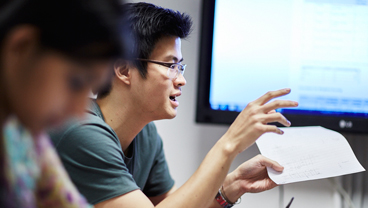
Contact us with your enquiry.
Study at King’s
View a prospectus.
Learn more about the degree programmes on offer at King's. Download or view a prospectus in PDF format.
- Undergraduate prospectus
- Postgraduate guide
Sign up for further information
Receive email updates about our courses, events, fees and funding, studying in London, how to apply and more.
Upcoming events
There are no recruitment events currently available.
School of Social and Political Science
Phd international development, introduction.
Applications for September 2024 entry are now closed. We expect to open applications for 2025 entry in October.
We warmly invite candidates to apply for a PhD degree in International Development
The University of Edinburgh is host to a thriving and cosmopolitan community of researchers working on global development challenges. We are home to internationally renowned academics working at the intersection of international development policy and health, science and technology, religion, migration, energy, urbanisation, mining and human rights, as well as centres of regional expertise in Africa, South Asia and Latin America.
We strongly encourage and support interdisciplinary research, and welcome students who are keen to develop doctoral research projects in collaboration with third parties (NGOs, multilateral/bilateral agencies, campaign groups, or media organisations).
Usually undertaken full-time over three years, or part-time over six years, the PhD in International Development is a research degree in which students make an original contribution to knowledge by pursuing an extended and focused piece of research on a topic of interest to them.
You will also be invited to join research workshops and regular open research seminars held by subject areas across the School of Social and Political Science, where you will enjoy special opportunities to meet development policy makers, practitioners, diplomats, and internationally recognised academics.
Interdisciplinary research is strongly encouraged. While based in the School of Social and Political Science, in the College of Arts, Humanities and Social Sciences, International Development doctoral students will have opportunities to draw from expertise across the University's different Schools and Colleges for the purposes of supervision and research collaboration.
Research training
A wide range of training facilities are available to PhD students. The Graduate School provides a range of ESRC-recognised research training courses for social science students across the University. You are encouraged to participate in taught Masters level courses to assist your intellectual development and support your research.
The University’s Institute for Academic Development provides a range of courses and events to assist with methodological training and career development.
- Institute for Academic Development
Finally, you will participate with your peers in the bespoke course, International Development Exchanges and Advanced Skills, to improve your research abilities. These combine to enable you to acquire a broad set of academic and transferable skills during your time with us.
Besides the training activities and academic opportunities discussed in the programme overview, you will receive regular one-to-one thesis supervision from two supervisors with expertise in your research areas.
The supervisors will offer expert advice through the entire research process, including the choice of research training courses, refining the research design, conducting field research, data analysis, writing up the thesis, publishing the findings and moving on to the next stage in the student's career. You will meet with your supervisors on a regular basis to discuss the progress of your thesis, but will also find support from the wider academic community and peers, who you will engage with at regular seminars.
Focused supervision in International Development is generally drawn from academic staff associated to:
- the Centre of African Studies
- social anthropology
- social policy
- politics and international relations
However, in line with the emphasis on interdisciplinary research, supervision teams may comprise faculty from across the University.
You are strongly advised to contact potential supervisors before submitting your application. If the University lacks staff who are able to supervise your project, your application may be declined.
You should examine the research interests of staff in the School of Social and Political Science carefully as the first stage in the application process. Once you have completed your draft research proposal you are strongly advised to get in touch with the postgraduate advisor, Dr Aaron Kappeler, to discuss your thoughts on potential supervisors from among the faculty. His contact details are on the right-hand side.
We strongly advise that you only submit the application once you have secured the agreement of at least one prospective supervisor. You must indicate the name of any proposed supervisor who has agreed to the role in the appropriate section of your application. A well-developed research proposal is likely to help your initial engagement with a prospective supervisor. They might also ask you to provide them with written work from your Master's degree (for example, your MSc dissertation, or two long essays, in order to get a sense of your research potential).
You will become part of a vibrant, interdisciplinary research community. Within the School of Social and Political Science there will be a wide range of seminars and events for you to attend and integrate yourself into the research life of the University.
Within the International Development doctoral programme there are additional opportunities to mix with the postgraduate cohort, including the International Development Exchanges and Advanced Skills course taken by first year doctoral students, and a series of organised monthly training and social activities.
Applying for this PhD
- Identify potential supervisors suited to your research interests
- Write a draft research proposal
- Contact the Postgraduate Advisor with your research proposal and list of potential supervisors
- Once discussed with the Postgraduate Advisor, formally submit your application on EUCLID
Postgraduate Advisor
Browser does not support script.
- About the Department
MRes/PhD Programme
The department of international development runs a vibrant research programme with students employing a variety of disciplinary and interdisciplinary methods for research projects across asia, africa, latin america and the middle east..
The MRes/PhD in International Development is a one-year research Master's linked to a four-year PhD. The programme grounds students in a common academic heritage while providing them with significant flexibility appropriate to their research interests. We equip our students with advanced methodological and theoretical skills within disciplinary specialisms, with the aim of producing graduates who go on to be excellent, well-rounded and intensively trained social scientists. To this end, the first year of the programme combines intensive coursework (through taught courses) with research design (preparation of a 10,000 word research proposal). This proposal forms the basis of the student's subsequent PhD research.
Programme Description (fuller information on the programme and how to apply)
Programme Regulations (programme structure and courses)
Please take the time to read our Frequently Asked Questions before making an application.
Sign up to our live online event for prospective research students in International Development, which will take place via Zoom webinar on Wednesday 15 November 2023, 12:30-13:30 .
If you are offered a place on the MRes/PhD International Development then you can also be considered for any funding opportunities you may be eligible for. These include:
- LSE PhD Studentships
- ESRC Studentships
- AHRC funding (for certain subject areas)
For more information or to ask a question, please contact the PhD Programme Manager, Monika Kruesmann: [email protected] .
Meet our research students
Financial support for graduate students

PhDs completed by previous students
Check back later for our latest twitter updates..
+44(0)20 7955 7425
General Enquires [email protected]
Address View on Google maps
Department of International Development, London School of Economics, , , London, WC2A 2AE
- +49-(0)234 32-22418
- This email address is being protected from spambots. You need JavaScript enabled to view it.
- Wilhelm Löwenstein
- Gabriele Bäcker
- Markus Kaltenborn
- Matthias Busse
- Thushyanthan Baskaran
- Elkhan Sadik-Zada
- Leonie S. Grunau
- Britta Niklas
- Ricarda Rahn
- Anne Siebert
- Henrike Roth
- Natalia Zakharchenko
- Irene Among
- Akua Martinson
- Muhammad Saleh
- Tania De Giorgio
- Sevilay Recber
- Irene Wedler
- Phillip Riedel
- Ann-Sophie Rinne
- Maja Bergfort
- Christian Schaefer
- Bettina Löwenstein
- Jule Scholten
- Emily Weigl
- Frederike Buss
- Marius Maleschka
- Niklas Holzwar
- Ahmad Javed Shuaibi
- Bablu Chakma
- Laura Hofmann
- Andrew Boogaards
- Maruf Lutfur
- Darina Pellowska
- Salam Alhaj Hasan
- Ricardo Paris
- Camilo Ucrós
- Ulemj Dovchin
- Katharina Girndt
- Anja Habersang
- Corinna Land
- Luiza Leite de Queiroz
- Zena Mouawad
- Johann Langenbach
- Fiza Lee Winter
- Klaudia Michalek-Kursawe
- UK Mong Marma
- María Moraga Fernández
- Caroline Spanaus
- Hari Purna Tripura
- Biswaranjan Tripura
- Petronilla Wandeto
- Sidy Ouattara Student
- David Lefor
- Emmanuel Monyei
- Christof Ruhmich
- MADM Students
- Ruth Knoblich
- Katja Bender
- Martina Shakya
- Christof Hartmann
- Eva Gerharz
- Annika Engelbert
- Marco Rimkus
- Katja (Ekaterina) Serova
- News Archive
- IEE Newsletter No. 39
- IEE Newsletter No. 38
- IEE Newsletter No. 37
- IEE Newsletter No. 36
- IEE Newsletter No. 35
- IEE Newsletter No. 34
- IEE Newsletter No. 33
- IEE Newsletter No. 32
- IEE Newsletter No. 31
- IEE Newsletter No. 30
- IEE Newsletter No. 29
- IEE Newsletter No. 28
- IEE Newsletter No. 27
- IEE Newsletter No. 26
- IEE Newsletter No. 25
- IEE Newsletter No. 24
- IEE Newsletter No. 23
- IEE Newsletter No. 22
- IEE Newsletter No. 21
- IEE Newsletter No. 20
- All Newsletters as PDF
- Cooperation Activities
- Research Cluster
- Urban Food Plus
- Regulations in the Asian Textile Industry
- MA in Development Management (MADM)
- PhD in International Development Studies (PhD IDS)
- Publications
Programme Structure
- Financing options
How to apply
- Supervision
- PhD Projects
Since winter 2007, the IEE has been offering the structured and interdisciplinary PhD programme in International Development Studies in cooperation with the Faculties of Geography, Law, Social Science, and Economics of Ruhr University Bochum. The PhD IDS combines training through research and coursework. Research training consists of working on individual PhD projects with supervision from experienced professors, regular exchange within the framework of one of the IEE's research cluster and includes an individual field research period of up to 6 months. Participation in coursework aims at contributing to research and transferable skills. IEE's traning offers are supplemented by offers of other departments of RUB and other cooperation partners.
The standard period of study is 3 years. The average time required to complete the programme including all examinations is around 4 years. Excellent candidates from all over the world can apply for the the programme annually.

3 years standard study period (average duration until completion including exams is around 4 years)
up to 6-months field research period
The PhD in International Development Studies combines working on individual PhD research projects with participation in taught modules. The variety of modules offered allows for tailor made qualification for each PhD candidate. Modules offered by the IEE itself, other faculties at RUB or external cooperation partners deal with developmental issues from a multidisciplinary perspective.
Interdisciplinary workshops on research related competencies and research management skills as well as a broad career preparation program are offered by the RUB Research School . Offers include a wide range of transferable skills courses in Research Related Competencies (Scientific Writing, Scientific Presentation and Professional (Scientific) Communication), Career Preparation, and Research Management Skills. These offers are complemented by funding opportunities for international research activities.
Adding to this, PhD candidates regularly report on the progress of their own research projects during meetings of the IEE Research Clusters .
A detailed overview of the structure of the PhD IDS is provided in the curriculum . The Doctoral Statutes ( offical German and translated English version ) are also available.
Schematic illustration of programme structure
| course work | individual research projects | ||||
| 1st term | seminars according to | exposé | theory and preparation of field research | ||
| 2nd term | |||||
| 3rd term | |||||
| 4th term | field research | ||||
| 5th term | curriculum | completion of PhD Thesis | |||
| 6th term | |||||
| 6th term: Viva | |||||
Financing Options
Daad-gssp scholarships.
The IEE successfully applied for the “Graduate School Scholarship Programme” (GSSP) of the German Academic Exchange Service (DAAD) and therefore has the opportunity to nominate two excellent international applicants of the PhD IDS for a DAAD-GSSP scholarship.
Criteria for nomination:
- Excellent academic profile
- The last final exam (Master Degree or equivalent) must have taken place no longer than six years ago prior to the nomination.
- The applicants must not have resided in Germany for more than 15 months prior to the nomination.
Scholarship benefits:
- a scholarship instalment of currently € 1,300 per month;
- travel allowance;
- payments towards health, accident and personal liability insurance cover;
- a research allowance of currently € 460 per year (for scholarship holders from emerging countries), or € 230 per year (for scholarship holders from industrialized countries);
- Field studies/stays abroad will be funded provided the overall period abroad does not exceed 25% of total funding period and provided that the field study/stay abroad does not take place at the beginning of your studies.
Only international applicants selected as a PhD IDS candidate can be nominated for a GSSP scholarship.Therefore, candidates need to apply for the PhD IDS until the regular application deadline via the online application portal which opens in autumn each year. They need to enter “GSSP” under “Scholarship donor” and must use and submit a specific template for academic recommendation letters.
Further detailed information is available in the "How to apply" section. If you are interested to find out more about the GSSP programme, have a look at the DAAD website .
Other scholarship options
Self-financing applicants.
A good source of information to estimate costs of studying and living in Germany is provided by the German Academic Exchange Service (DAAD) . Additional information is provided by the I nternational Office of Ruhr University Bochum .
INCOMPLETE APPLICATIONS WILL NOT BE CONSIDERED. It is the applicant's responsibility to check that the application is complete!
Minimum Entry Requirements
- Qualified university degree (Master or equivalent) in Law, Social or Political Science, Economics, Development Management or related subjects from all over the world with an overall grade equivalent to 2.7 (fully satisfactory) in the German grading system after completion of relevant studies with a duration of at least 4 years.
- Qualified degree with an overall grade equivalent to 1.3 (still very good) in the German grading system after completion of relevant studies with a duration of at least three years plus preparatory studies for the PhD of usually three semesters.
Admission to the PhD IDS is based on a competitive selection process. The major criteria are:
- Quality of research proposal
- Supporting academic references
- Relevance and overall grades of previous studies
- Proficiency in English
Required documents
- Application letter describing the motivation of your application for the PhD in International Development Studies.
- Research proposal of the planned PhD project of max. 5 pages (following the guidelines for writing a research proposal ).
- Full Curriculum Vitae (please use the Europass CV tool ).
- Higher education degree certificate(s) and full transcript(s) of records, including an explanation of the grading system of all previous studies. Certified translations are required if original documents are not available in English or German.
- School leaving certificate that shows all single marks and entitles the candidate to study at a recognized institution of higher education in the home country.
- Official certificate confirming applicant's English language proficiency equivalent to CEFR level C1 (e.g. IELTS Band 7 or TOEFL iBT 94 or above). If English has been your language of instruction since your secondary education, a proof of your English language proficiency is not compulsory but nonetheless highly recommended.
- Two recent academic recommendation letters including the official letterhead of the institution and the signature of the referee. At least one of the letters has to be provided by a lecturer of the study programme which qualifies for the PhD application, e.g. Master or equivalent. Applicants for the DAAD GSSP scholarship must use the DAAD template for recommendation letters .
SUPERVISION
All supervisors of the PhD candidates hold professorial posts and are well trained and skilled experts and professionals, having far-reaching experience in teaching, mentoring and research. The decision about supervisors is part of the application and selection process. It is therefore not necessary for applicants to contact potential supervisors before they apply. The table below provides an overview about current and past supervisors involved in the PhD IDS.
RUHR UNIVERSITY BOCHUM
Prof. em. Dr. Uwe Andersen
UNIVERSITY DUISBURG ESSEN
Hochschule bonn-rhein-sieg, hochschule fulda, university of cologne, université paris 1 panthéon-sorbonne, vrije universiteit amsterdam, erasmus university rotterdam, ongoing phd projects.
| | |
| 2023 | |
| (RUB) | |
| | |
| 2023 | |
| (RUB) | |
| (assoc.) | |
| 2023 | |
| (RUB) | |
| Abstract | |
| | |
| 2023 | |
| (RUB) | |
| Abstract | |
| | |
| 2023 | |
| (UDE) | |
| | |
| 2023 | |
| tba | |
| Abstract | |
| | |
| 2021 | |
| (RUB) | |
| Abstract | |
| | |
| 2021 | |
| (RUB) and (German Institute for Global and Area Studies, GIGA) | |
| | |
| 2021 | |
| (The research project is part of ADAPTED, a Marie Skłodowska-Curie Innovative Training Network project funded by the European Union under the Horizon 2020 research and innovation programme which is coordinated by the IEE.) | |
| (RUB) and (University Paris 1 Panthéon Sorbonne, UP1 ) | |
| | |
| 2021 | |
|
(The research project is part of ADAPTED, a Marie Skłodowska-Curie Innovative Training Network project funded by the European Union under the Horizon 2020 research and innovation programme which is coordinated by the IEE.) | |
| and ( Kooijmans Institute for Law and Governance, VU Amsterdam ) | |
| 2021 | |
| (The research project is part of ADAPTED, a Marie Skłodowska-Curie Innovative Training Network project funded by the European Union under the Horizon 2020 research and innovation programme which is coordinated by the IEE.) | |
| (RUB) and (Erasmus University Rotterdam) | |
| | |
| 2021 | |
|
(The research project is part of ADAPTED, a Marie Skłodowska-Curie Innovative Training Network project funded by the European Union under the Horizon 2020 research and innovation programme which is coordinated by the IEE.) | |
| (University Paris 1 Panthéon Sorbonne, UP1), (RUB) | |
| | |
| 2021 | |
|
(The research project is part of ADAPTED, a Marie Skłodowska-Curie Innovative Training Network project funded by the European Union under the Horizon 2020 research and innovation programme which is coordinated by the IEE.) | |
| (VUA), (RUB) | |
| | |
| 2021 | |
|
(The research project is part of ADAPTED, a Marie Skłodowska-Curie Innovative Training Network project funded by the European Union under the Horizon 2020 research and innovation programme which is coordinated by the IEE.) | |
| (Erasmus University Rotterdam), (University of Duisburg-Essen) | |
| | |
| 2020 | |
| (RUB) | |
| | |
| 2018 | |
| (RUB) | |
| 2018 | |
| (HS Fulda) | |
| 2018 | |
| (HS Fulda) and (TU Dresden) | |
| | |
| 2017 | |
| (University of Duisburg-Essen) | |
| | |
| 2017 | |
| (HS Fulda) | |
| | |
| 2017 | |
| (RUB) | |
| | |
| 2017 | |
| (University of Cologne) | |
| 2017 | |
| (RUB) | |
| | |
| 2016 | |
| (RUB) | |
| | |
| 2016 | |
| (University of Bonn) | |
| | |
| 2016 | |
| (HS Bonn-Rhein-Sieg) | |
| | |
| 2015 | |
| (RUB) | |
| 2015 | |
| (RUB) | |
| Abstract | |
| | |
| 2013 | |
| (HS Fulda) | |
COMPLETED PHD PROJECTS
A practical approach to Refugee Protection in Southeast Asia
Fiza Lee Malhotra Supervisor: Prof. Dr. Hans-Joachim Heintze Abstract
Revisiting the Enclave Thesis: The Case of the Malian Mining Sector
Sidy Ouattara Supervisor: Prof. Dr. Matthias Busse Thesis
Community, Market Intermediaries, and the State. Survival-cum-Upward Mobility Strategies of Indigenous Villagers in the Chittagong Hill Tracts, Bangladesh
Bablu Chakma Supervisor: Prof. Dr. Eva Gerharz Thesis
A critical inquiry to understand peace and development from the perceptive of the marginalised indigenous people of the Chittagong Hill Tracts, Bangladesh
Hari Purna Tripura Supervisor: Prof. Dr. Eva Gerharz Thesis
Indigenous peoples negotiations, everyday state and development experiences in contemporary Tripura, Northeast India Biswaranjan Tripura Supervisor: Prof. Dr. Eva Gerharz Thesis
Brokering ‘development’ and representing the ‘poor’. An anthropological understanding of NGOs in southern Pakistan Muhammad Ali Zaidi Supervisor: Prof. Dr. Eva Gerharz Thesis
Decent Work in Textiles and Garment Production: Analysing the formation of glo-cal perspectives and practices in Egypt and Jordan Britta Holzberg Supervisors: Prof. Dr. Uta Wilkens and Prof. Dr. Peter Knorringa Thesis
HOMESCAPES. The Secondary Forced Displacement of Palestinian-Syrian Refugees. Jasmin Fritzsche-El Shewy Supervisor: Prof. Dallal Stevens and Prof. Ulrike Kraus
Determinants of Public Support for Social Protection in Ghana. A Micro-level Analysis Callistus Agbaam Supervisor: Prof. Dr Katja Bender , Hochschule Bonn-Rhein-Sieg Abstract
Norm Clusters of Non-State Armed Groups Mapping and Understanding the Limits of Warfare as Understood by Non-State Armed Groups Will Wright Supervisor: Prof. Dr. Hans-Joachim Heintze Thesis
Accountability Relations in Social Housing Programs: a comparative legal analysis of Brazilian and Chilean case studies Mariana Vilmondes Alves Supervisor: Prof. Dr. Markus Kaltenborn Thesis published as Vol. 75 of UA Ruhr Studies on Development and Global Governance
From the City to the Desert: Analysing Shantytown Resettlement in Casablanca, Morocco, from Residents’ Perspectives Raffael Beier Supervisors: Prof. Dr. Matthias Kiese and Prof. Dr. Irene van Staveren Thesis published as Vol. 72 of UA Ruhr Studies on Development and Global Governance
Essays on the Theory-Based Impact Evaluation of Projects in Developing Countries Marc Hansen (graduated in 2019) Supervisor: Prof. Dr. Wilhelm Löwenstein Thesis
International Trade and Private Sector Performance: A Critical Analysis of Ghana’s Manufacturing Sector Mabel Akosua Hoedoafia Supervisors: Prof. Dr. Matthias Busse and Prof. Dr. Helmut Karl Thesis
Amending Biochar to Urban Farmlands: An Economic Evaluation of the Effects on Food Security in Ouagadougou (Burkina Faso) and in Tamale (Ghana) Lesley Hope Supervisor: Prof. Dr. Wilhelm Löwenstein Thesis
Food Sovereignty and Urban Agriculture: Understanding Interlinkages and Exploring Implications in the South African Context Anne Siebert Supervisors: Prof. Dr. Santurnino (‘Jun’) M. Borras Jr . (ISS) and Prof. Dr. Pierre Thielbörger Thesis
A Real Options Approach to Renewable and Nuclear Energy Investments in the Philippines Casper Agaton Supervisor: Prof. Dr. Helmut Karl Thesis ; also published as Vol. 71 of UA Ruhr Studies on Development and Global Governance
Welfare Effects of Alternative Irrigation Water Prices on Farm Households: a case study of Lake Urmia Basin, Iran Farah Asna Ashari Supervisor: Prof. Dr. Helmut Karl Thesis
The Economics of Cooperative Financial Cooperatives: Income Distribution, Political Economy and Regulation Amr Khafagy Supervisor: Prof. Dr. Volker Nienhaus Thesis published in the series "Banking, Money and International Finance", Routledge
Grounded in Paraguay: An Appropriation Theory of ICTs and Education for Development Sascha Rosenberger Supervisor: Prof. Dr. Eva Gerharz Thesis
Building Sustainable Peace: From Practice to Law de lege ferenda—Legal Assessment of the Concept ‘Post-conflict Peacebuilding’ Eva Mihalik Supervisors: Prof. Dr. Hans-Joachim Heintze and Prof. Dr. Pierre Thielbörger Thesis
Public Policy and Ideation: A Case of A Grey-Zone Country - Pakistan Atif Ikram Butt Supervisor: Prof. Dr. Marianne Kneuer Thesis
Ambivalent attachments: shifting notions of home among displaced Sri Lankan Tamils Diotima Chattoraj Supervisor: Prof. Dr. Eva Gerharz Thesis , Print Publication
Public Procurement Law as a Development Policy Instrument to Fight Corruption in Sub-Saharan Africa Annika Engelbert Supervisor: Prof. Dr. Markus Kaltenborn Thesis published as Vol. 31 in the series "Recht und Verfassung in Übersee - Law and Constitution in Africa", Nomos )
Impact of Foreign Affiliation on the Livelihood of Low-Income Rural Households: A Case Study of Pakistan Farah Asif Supervisor: Prof. Dr. Dieter Bender Thesis
Violence Against Children in Kenya: An Ecological Model of Risk Factors and Consequences, Responses and Projects Alphonce Omolo (associate member; publ. thesis here ) Supervisor: Prof. Dr. Christel Adick
Productivity and Wage Spillovers From Foreign Direct Investment: Evidence from Turkish Micro-Level Data Syeda Tamkeen Fatima Supervisor: Prof. Dr. Dieter Bender Thesis
A Big Push to Break Rural Household Poverty Trap? Millennium Villages Case Study with Emphasis on Agriculture Silas Udahemuka Supervisor: PD Dr. Stefan Karduck Thesis
Linking Humanitarian and Development Action in Ethiopia Annalisa Addis (associate member) Supervisor: Prof. Dr. Dennis Dijkzeul Thesis
Collective Identity and Prospects for Political Integration: The Case of the East African Community Catherine Biira Supervisor: Prof. Dr. Christof Hartmann Thesis
Oil Abundance and Economic Growth Elkhan Sadik-Zada Supervisor: Prof. Dr. Dieter Bender (published as Vol. 70 of UAMR Studies on Development and Global Governance )
Fiscal Policies in Indonesian Forestry: Government Revenues, Sustainable Forests and Industrial Development Akhmad Solikin Supervisor: Prof. Dr. Wilhelm Löwenstein Thesis
The Role of Non Governmentals Organisations (NGOs) in Social Service Delivery: The Case of the Health and HIV/AIDS Sector in Malawi Martina Lembani Supervisor: Prof. Dr. Wilhelm Löwenstein Thesis
Institutions and Actors in Legislative Decisions in Africa: Analysing Institutional Contexts and Veto Players in Legislative Decisions in Malawi Samson Brown Lembani Supervisor: Prof. Dr. Christof Hartmann Thesis
Climate Variability and Change in the Rift Valley and Blue Nile Basin, Ethiopia: Local Knowledge, Impacts and Adaptation Abate Mekuriaw Bizuneh Supervisor: Prof. Dr. Bernhard Butzin (published as Vol. 62 of UAMR Studies on Development and Global Governance )
Understanding Institutionalized Collective Remittances: The Mexican Tres Por Uno Program in Zacatecas Carlos Villela Zavala Supervisor: Prof. Dr. Monika Salzbrunn (published as Vol. 64 of UAMR Studies on Development and Global Governance )
The Impact of Rural-Urban Internal Migration on the Income of Rural Households in Ethiopia Beneberu Assefa Wondimagegnhu Supervisor: Prof. Dr. Dieter Bender Thesis
Institutional Quality, Export Performance and Income Elias Gebreselassie Fanta Supervisor: Prof. Dr. Dieter Bender Thesis
Growth Effects and the Determinants of Female Employment in Pakistan: a macro- and microeconomic analysis Shafaq Hussain Supervisor: Prof. Dr. Wilhelm Löwenstein (published as Vol. 61 of UAMR Studies on Development and Global Governance )
Trade Liberalization, Welfare and Poverty in Pakistan Naveed Shaikh Supervisor: Prof. Dr. Wilhelm Löwenstein Thesis
Towards a Real-Time Theoretical Perspective into Treatment Adherence: The Case of Tuberculosis Treatment Monitoring Using the Simpill System in South Africa Charlton C. Tsodzo Supervisor: Prof. Dr. Werner Voss Thesis
FREQUENTLY ASKED QUESTIONS OF PHD IDS APPLICANTS
- Application & Study Programme
- Costs & Funding
- Accommodation
- Getting to RUB
The only way to apply for the PhD IDS is via the online portal .
- Qualified university degree (Master or an equivalent to the German Diploma or Staatsexamen) with an overall grade equivalent to at least 2.7 (fully satisfactory) in the German grading system after completion of relevant studies with a duration of at least 4 years.
- For international degrees the equivalence will be judged during the application process. Candidates who have to follow preparatory studies before admission to the PhD in International Development Studies can be accepted for such preparatory studies at the Ruhr-University Bochum.
We don´t have any templates or special forms for the letters of recommendation. Please ask your referees to write letters for you in a free form. The letters have to be signed and stamped and sent to us in PDF format. Please make sure that the contact details of your referee are given in case we have any further questions.
Your certificates have to be translated into English or German languages by an official translator or any notary public office in your country.
The duration of each programme cycle is three years including a field research period of up to six months and excluding time for your oral defense and the publication of your thesis.
We prefer complete applications. However as in your case, there sometimes is a good reason why you cannot submit a complete application. You can therefore apply without the Master certificate and hand it in later as soon as you receive it.
In that case, please send us your application including the following documents instead of the Master certificate:
- complete transcript of records of all exams taken.
- letter from the examination office or programme coordinator stating that the Master thesis was submitted and that the master thesis is the only examination missing to complete your master studies.
It is possible to have a personal consultation for discussing individual questions. However, please understand that this service can only be offered to individuals who could not resolve their questions based on our online information services. These services are:
- our website: http://german-development-university.de/studies/phd-in-international-development-studies-phd-ids .
- our email-based response service (sending your request to [email protected] )
- the following documents: short information , CV-template , scholarship information , research proposal guidelines
The Institute of Development Research and Development Policy (IEE) does NOT offer any scholarships for the PhD IDS. However, the IEE applied successfully for the “Graduate School Scholarship Programme” (GSSP) of the German Academic Exchange Service (DAAD). As a consequence, we have the opportunity to nominate two selected international applicants of the PhD in International Development Studies (PhD IDS) in 2024 for a DAAD scholarship. In order to apply for GSSP scholarship, please use the online-platform to submit your documents in pdf format and enter “GSSP” under “Scholarship donor” which you find under “5. Financing”. Please note: GSSP applicants must use and submit this template for academic recommendation letters.
For general information on German institutions offering scholarships to students at the PhD level please take a look into our “ PhD IDS Scholarship Information ” document. In case you would like to apply for a scholarship directly with the DAAD (not GSSP) or any other funding organization, given that you fulfill the formal admission requirements, we can issue a preliminary letter of recognition stating that your application will be considered during the next selection process. To obtain such a letter you have to submit your application documents first via the online portal.
As far as the requested acceptance letter is concerned, please note that we cannot provide such a letter before the final selection takes place (early summer 2023). What we can offer is to provide a ‘letter of recognition’, which confirms that you are meeting the admission requirements after we have received and screened your application documents. You need to submit the complete application documents for that. Please let us know if you need the ‘letter of recognition’ for your scholarship application.
Please note, a valid health insurance is mandatory for a stay in Germany. You cannot enrol at a university without proof of health insurance. Proof of insurance is also required to apply for or extend your visa.
Self-financed students and students with another scholarship are usually responsible for their health insurance. The IEE will provide further advice in this regard after admission to the PhD IDS programme. You can already take out a health insurance from your home country. As a student in Germany, you have the option to either have the health insurance of your country of origin recognized in Germany or to insure yourself with a German health insurance company. The latter is the recommended option. Please find more information here .
There are a number of student dorms around the university. You will also get a check list of organisational issues after being admitted which includes different options for the arrangement of accommodation. Our staff will assist you on request, but you can also apply for accommodation yourself online. See AKAFÖ for details.
Flat shares (“Wohngemeinschaften”, acronym “WG”) are a very common way for German students to find housing at affordable prices. Be aware that in most cases you need to be in the city in order to present yourself to your future flatmates. This guide can help you find your way through private house-hunting in Bochum.
You can change your accommodation after the expiration date of your contract. In the meantime, you can apply for a new accommodation at AKAFÖ or a private hostel. But have in mind that there is a waiting list and that you must wait about six months from the date you have applied. Most hostels offer semester contracts. Depending on your contract you have to inform the administration of the hostel 1-3 months in advance in writing that you would like to cancel the contract.
All international students are required to register with the Residents' Registration Office (Einwohnermeldeamt) and apply for the residence permit at the Foreigners' Registration Office (Ausländerbehörde). Students who are required to have a student visa have to extend the visa issued in their home country (normally valid for three months) into a one year residence permit.
FIRST go to "Einwohnermeldeamt" and THEN go to "Ausländerbehörde". Please also see the general information about possible visa regulations at the German embassy of your respective country of origin.
Dipl.-Ök. Britta Niklas
Ruhr-Universität Bochum Institute of Development Research and Development Policy Room 2.02, Universitätsstr. 105 44789 Bochum/Germany
Phone: +49 (0)234 32-25148 Email: [email protected]

Institute of Development Research and Development Ruhr University Bochum Room 2.04 Universitaetsstr. 105 D-44789 Bochum E-Mail: [email protected] Phone: +49 (0)234 / 32-22418
- MA in Development Management
- PhD in International Development Studies
- Privacy Notice
Department of Politics and International Relations
University | A to Z | Departments
- Politics and International Relations
PhD in Global Development
- Undergraduate study
- Postgraduate taught degrees
- PhD in Politics
- PhD in Politics Distance Learning
- PhD in Environment and Politics
- Fees and funding
- How to apply
- PhD research proposal
- Training and facilities
- Postgraduate Research studentships
- About our research
- Research - Information for Staff (login required)
- News & events
- Current students
- Careers and Student Employability
- International students
- Equality, Diversity and Inclusion
- Wellbeing, welfare and support
.jpg)
PhD details 3 to 4 years full-time 6 years part-time Start date October 2023 January 2024 (semester dates)
Apply for this course
Fees 2023/24 UK fees 2023/24 international fees
Contact us Contact our Graduate Office +44 (0)1904 323542 [email protected]. uk
Combine interdisciplinary expertise to explore a global challenge and develop key skills for your career in development, academia or research.
If your passion lies in creating a just and sustainable world and transforming development policy, this doctoral degree will give you the independence to focus on a global challenge of your choice. Study with us and receive expert interdisciplinary guidance from our supportive staff.
The focus of your work will be an independent research project. We provide training which will equip you with skills in a wide range of qualitative and quantitative research methods to support your growing expertise. The PhD requires a dissertation of up to 80,000 words.
Postgraduate research provides opportunities to develop your academic, creative and practical skills. You'll work independently in an academic environment where scholarship and creativity go hand-in-hand.
Join one of our leading research groups, which brings together expertise in various fields. Find out more about our research groups .
Department of Politics and International Relations University of York , York , YO10 5DD , UK Tel: work +44 (0) 1904 323542 | Fax: fax 01904 323563
Legal statements | Privacy | Cookies | Accessibility © University of York | Modify | Direct Edit
Please enable JavaScript in your web browser to get the best experience.
Main navigation
Mphil/phd in international development.

- Jump to: Key information
- Jump to: Course overview
- Jump to: Structure
- Jump to: Teaching and learning
- Jump to: Fees and funding
- Jump to: Employment

Key information
Home student fees (full-time) : £4,860 per year Home student fees (part-time) : £2,430 per year Overseas student fees (full-time) : £22,490 per year Overseas student fees (part-time) : £11,245 per year
Please note that fees go up each year. See research fees for further details.
We normally require a 2.1 bachelor's degree plus a Masters degree with a Merit classification in a Social Science plus one reference. In exceptional cases we may accept applicants who do not meet these criteria if they show evidence of a strong Masters degree and/or appropriate level of relevant work experience. International applicants should also see Doctoral School English language requirements .
Identifying a supervisor
Potential applicants are advised to personally discuss their (draft) research proposal with (a) potential supervisor(s) (see departmental staff list ) and sound their willingness to supervise. This significantly increases the chance of a successful admission application.
Course overview
Study our on-campus MPhil/PhD in International Development Studies at SOAS to realise your potential to define and solve pressing global forces and transform the world with your research impact.
As a PhD researcher, you’ll join our renowned globally diverse research community with access to research and teaching opportunities, as well as a substantial series of seminars presented by leading development professionals and practitioners.
Students may follow the PhD pathway in International Development by being based at either SOAS, LSHTM or IoE. All PhD students on the International Development pathway will attend an advanced research training seminar run by LIDC.
The series will provide students in the ESRC Doctoral Training Centre's International Development Pathway with a broad understanding of interdisciplinary approaches to development, and a detailed understanding of selected areas of interest.
All MPhil/PhD in International Development research students will participate in the compulsory course work and attend research student seminars in the college and department where they are registered for the MPhil/PhD. At SOAS the Economics and Development Studies departments hold seminar series and students will be expected to involve themselves in the work of the relevant research clusters.
Admissions process
There are three admissions routes to the MPhil and PhD in International Development:
- The 1+3 structure: Following successful completion of the MSc Research for International Development at SOAS. ESRC 1+3 studentships are available to fund this route.
- The +3 structure: By direct applications for MPhil/PhD in International Development admission . ESRC 1+3 studentships are available to fund route.
- The 4 structure: not currently available at SOAS.
Why study MPhil/PhD in International Development at SOAS?
- We are ranked second in the world for Development Studies (QS World University Rankings 2023)
- We are ranked 27th in UK for Economics (QS World University Rankings 2023)
- We are top 40 in the UK for Economics (Complete University Guide 2023)
- This is an on-campus programme, as such you will receive the benefit of learning and working in close proximity with the Department's expert scholars and researchers
- Our academic staff create an intellectually stimulating and challenging space across the many branches of international development and humanitarianism that make up Development Studies. All modules engage with questions of climate crisis, recognising its impact and interaction with processes of inequality and change
- Our staff specialise in a range of thematic areas including sustainability and climate change, migration and displacement, conflict, humanitarian action, labour, political ecology, and aid and institutions
- Combined with exceptional resources and our interdisciplinary approach, we offer a unique learning and research opportunity for our diverse and vibrant student community
This course has been created to:
- encourage and enable students to complete an original thesis in the expected time
- provide training and experience in fieldwork and across a variety of schools of thought and in a variety of statistical techniques
- allow flexibility in training to suit students with different backgrounds and subsequent research needs
- make available and to monitor first class research supervision with the involvement of at least two members of staff through individual Research Student Committees
- encourage knowledge of other relevant disciplines and the adoption of an interdisciplinary approach where appropriate
- equip students with the ability to assess one another's work critically, whether in response to written or spoken presentation
- obtain language skills as appropriate
- ensure a congenial and productive environment for the conduct of research through availability of a wide range of facilities and full participation in the intellectual life of the Department and School. Library facilities are outstanding and computing facilities are attuned to student needs
- emphasise the relevance of research to theoretical, empirical and policy issues
- draw upon the Department's particular strengths, especially its expertise in different approaches to economic problems and its experience in problems of development, specific regions, and comparative analysis
- involve students in the specialised Centres of the School where appropriate
- form part of the academic community of the Department, participating where appropriate in collaborative research with members of staff, with some opportunities for teaching
- offer unique opportunities for interdisciplinary and regional research, and the scope to learn or improve a language where appropriate
Important notice
The information on the website reflects the intended programme structure against the given academic session. The modules are indicative options of the content students can expect and are/have been previously taught as part of these programmes. However, this information is published a long time in advance of enrolment and module content and availability is subject to change.
Teaching and learning
Supervision.
1. The role of the second and third members of the Supervisory Committee (SC) will be focused on the following two core tasks:
- Participate in the upgrade process of the student, including the final decision relating to his/her transfer from MPhil to PhD.
- Participate in other decisions relating to his/her eligibility for enrolment on Extension of Writing-up (Continuation) Status or, where necessary, termination of registration.
2. In addition to these core roles, the second and third members of the SC may be expected to:
- Enhance or augment the supervision of the student by contributing additional guidance and expertise, if required/sought by the student and/or the supervisor throughout the time of active research.
- To act on behalf of the supervisor during unforeseen periods of absence. This role will have to be agreed by consent of all parties (student, supervisor and the two members of the SC) and one of the two members will be designated as cover in absence for the period in question.
3. Only rarely is joint supervision allowed, for which a strong case would need to be made. Whilst the primary responsibility for guiding student's research and to review written work and progress rests with the supervisor once upgrade is successfully completed, other members of the supervisory committee must receive student’s thesis drafts at appropriate times, with support also available to students from the Departmental Empirical Support Committee (DESC).
Part-time students
Part-time students are expected to follow the same programme as the full-time students, except that they will take the initial training over two years instead of one. The Research Student Seminar and Departmental Seminars take place in the early evening to allow students in full-time employment to attend. Supervision is available in the evenings where necessary, and research student committees consider the progress of part- time students as regularly as for full-time students.
Computing facilities
Full computing facilities are available to postgraduate students. Computers dedicated for the use of research students in the Economics Department are also available. Software includes word-processing, specialised statistical, econometrics and spreadsheet packages. The Schools' computing staff are on hand to assist with general computing problems.
SOAS Library
SOAS Library is one of the world's most important academic libraries for the study of Africa, Asia and the Middle East, attracting scholars from all over the world. The Library houses over 1.2 million volumes, together with significant archival holdings, special collections and a growing network of electronic resources.
Scholarships
| Title | Deadline date |
|---|---|
Fees and funding
Fees for 2023/24 entrants per academic year.
| Home students | Overseas students | |
|---|---|---|
| Full-time | £4,860 | £21,630 |
| Part-time | £2,430 | £10,815 |
Please note that fees go up each year. See research fees for further details.
A degree from the Department of Development Studies at SOAS will further develop your understanding of the world and how society is organised, with specific focus on violence and conflict, the role of aid, refugees and forced migration. Graduates leave with a range of transferable skills, including critical thinking, analytical skills and cultural awareness.
Recent graduates have been hired by:
- Amnesty International
- BBC World Service
- British Embassy Brussels
- Department for International Development
- Economist Intelligence Unit (EIU)
- Embassy of Japan
- Government of Pakistan
- Hong Kong Economic & Trade Office
- International Committee of the Red Cross (ICRC)
- International Labour Organization (ILO)
- Médecins Sans Frontières (MSF)
- National Health and Medical Research Council
- Overseas Development Institute
- Royal Norwegian Embassy
- Save the Children UK
- The World Bank
- Thinking Beyond Borders
- US Department of State
- UN World Food Programme
- UN High Commissioner for Refugees
Find out about our Careers Service.
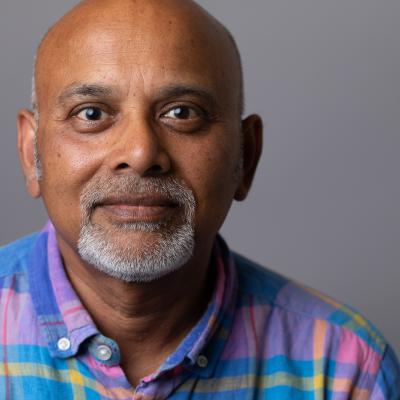
Dr Subir Sinha
South Asia; social movements; civil society; the environment; institutions; agrarian questions; Marxist and postcolonial theory; Social theory in Development studies.
SOAS Voices
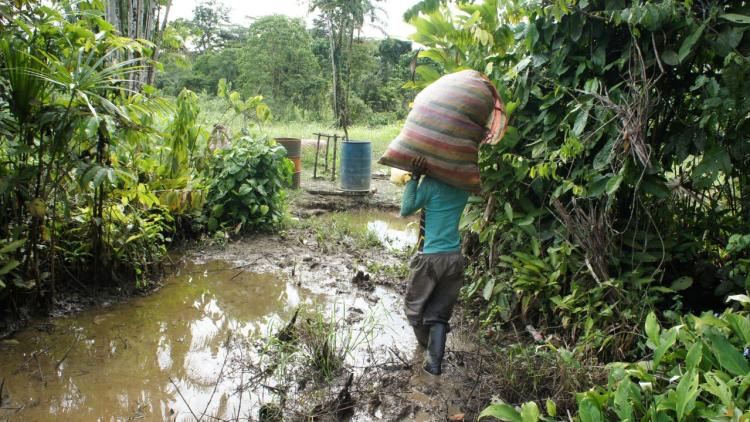
Drugs & (dis)order research featured in a Colombian Constitutional Court ruling on the National Illicit Crop Substitution Program
Frances Thomson, CIVAD, reports on Colombia’s Constitutional Court's ruling in favour of farmers who signed up to participate in the country’s National Illicit Crop Substitution Program
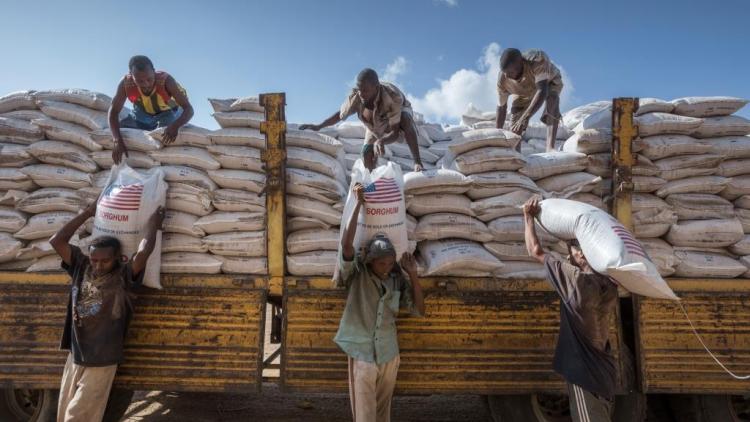
‘New and additional’: why funding climate finance from aid budgets is a problem
Professor Michael Jennings argues that donors have failed to provide the promised new and additional funding, which risks undermining action on climate and poverty.
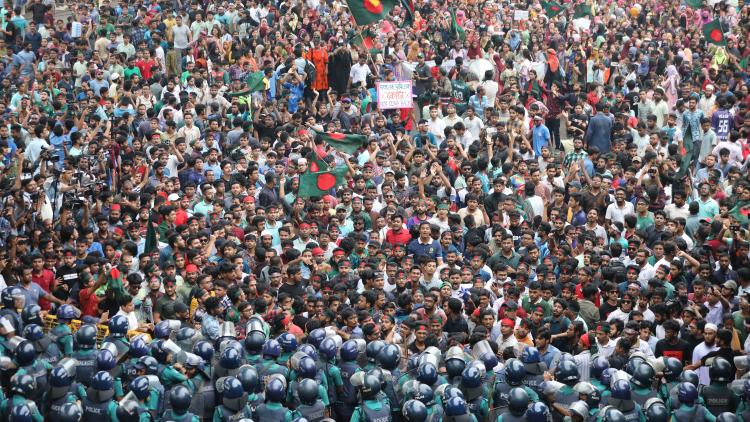
The 2024 uprising in Bangladesh: More than just quota reform
SOAS student Md Rafid Hossain explains the Bangladesh students’ movement for the reform of the quota system in government jobs, and why violent repression from the state has caused it to escalate into a broader demand for accountability and justice.

What Yorgos Lanthimos' 'Poor Things' has to say about female sexual desire and the commodification of bodies
Postgraduate student Valentina Frassa explores how Yorgos Lanthimos's critically acclaimed film 'Poor Things' provides commentary on pressing socio-economic issues of our time and contributes to ongoing debates around female empowerment and the commodification of women's bodies.

Pick your weapon: Reflections on the radical black woman and the black liberation struggle
Postgraduate student Megan Morgan reflects upon the makings of the radical Black woman and the fight for Black liberation.

Poverty, disasters and human trafficking: Unravelling the connection
New research highlights the invisible challenges faced by communities post-disaster, which creates an environment conducive to exploitation.
Border Crossings: Exploring history and community through virtual reality at the 75th anniversary of the Partition
Border Crossings examines how public narratives and memories of the 1947 partition are changing in Britain and how technology, specifically Virtual Reality (VR), can facilitate dialogue across generations and communities.
London International Development Centre Migration Leadership Team
Developing a shared and participatory global strategy for identifying and supporting migration research.
Research and Evidence Facility: Informing migration policy in the Horn of Africa
Collating and producing evidence and policy relevant knowledge to generate a better understanding of the drivers of instability, migration, and displacement in the greater Horn of Africa, and the dynamics of cross-border economies and centre/periphery relations.
Drugs & (dis)order
A SOAS-led consortium researching into the role of illicit drug economies in conflict-affected borderlands of Afghanistan, Colombia and Myanmar.
The AGRUMIG project: "Leaving something behind"
Studying comparatively the impact of large-scale labour out-migration on agricultural and rural change in seven countries (Morocco, Ethiopia, Moldova, Kyrgyzstan, Nepal, Thailand, PR China) to inform regionally specific combinations of rural development and migration policies.
Industrial Development, Construction and Employment in Africa (IDCEA): A comparative analysis
Exploring evidence on the employment effects of firms investing in manufacturing and building infrastructure in African economies.
The Spectre of State Capitalism
Ilias Alami will discuss his recent book, co-authored with Adam Dixon, "The Spectre of State Capitalism." The book argues that we're seeing a historic shift in state intervention, where states now act as promoters, supervisors, and direct owners of capital. Alami and Dixon explore how this "new state capitalism" is reshaping global capitalism with major implications for world politics.

Religious inequalities and heritage blind spots: Why transcendence matters for inclusive development
The talk will be about redressing discrimination experienced by people on the basis of faith and non-faith in its intersections with other inequalities, why freedom of religion or belief is such a blind spot in development and how our search for legitimacy may lead us to unconventional approaches of engagement, such as one informed by heritage-sensitivity.

The Time Travelling Economist
"The Time-Travelling Economist" aims to move conversations about development beyond the resource curse or private sector failings, with a fresh focus on the policies that governments can embark on independently and affordably that will transform their future. It will be of interest to anyone interested in the future of the world’s low income countries.

The Indebted Woman. Kinship, Sexuality and Capitalism
The talk will draw on a recent co-authored book with Santosh Kumar and G. Venkatasubramanian and will outline the key findings: the sexual division of debt and the work of debt as pillars of contemporary financialized capitalism, and how these are both shaped by and constitutive of specific forms of womanhood and sexuality.

Financing climate action: Global pledges to local realities
Finance is front and centre of the November COP29 UN climate change meeting in Baku, with critical negotiations on determining targets for future international climate commitments and start-up of a new Fund for responding to Loss and Damage for vulnerable countries hit hard by climate-related disasters. This multi-speaker seminar will consider the challenges facing global climate finance and whether the existing architecture for funding and delivery is fit for purpose.

Book Launch: EQUITY IN COVID-19: Mitigation and Policy Responses in Africa
Related content.

Department of Economics
The Department of Economics at SOAS University London.
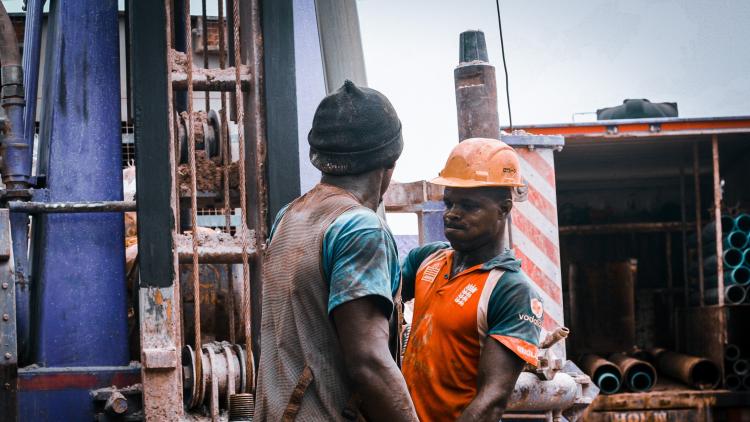
Department of Development Studies
Department of Development Studies at SOAS University of London.

MSc Climate Change and Development (Online)
MSc/PGDip/PGCert Climate Change and Development (Online) at SOAS University of London
AN INTERGOVERNMENTAL UNIVERSITY UNDER UNITED NATIONS TS 49006/7 — EUCLID RESPONSIVE SITE —
- Overview | Legal Status
- Memberships | Partnerships
- Accreditation | Recognition
- Officials | Administration
- Participating States
- EUCLID Institutes
- HQs and Offices
- History | Timeline
- Annual Reports
- Groups and Procedures
- General Public
- Government Officials
- Scholarship Programs
- Why choose EUCLID?
- ECOWAS Region Applicants
- Registrar’s Office
- Master’s Programs @ EUCLID
- PhD Programs @ EUCLID
- Tuition and Fees
- Pedagogical Approach
- Faculty Profiles
- Academic Standards
- Joint and Dual Degrees
- Online Programs @ EULER
- Alumni Profiles and Quotes
- Academic Journal IRPJ
- News & Events
- EUCLID Institutional and CMS
- EUCLID Treaty Site
- LinkedIn (Academic)

Online PhD in International Relations and Global Development @ EULER
AT EULER | EULER-FRANEKER MEMORIAL UNIVERSITY | INSTITUTE
QUICK ACCESS
Program type, school / institute.
Online (Asynchonous)
USD 150 per credit hour
Scholarships
Full (officials of CW and ACS); 15% off (IGOs)
Degree Issuance
EUCLID (Euclid University) + EULER (after 10/2024)
EULER Credits | ECTS
240 (Bachelor) + 80-120 (Master) | +240 (PhD)
EUCLID Credits | US CH
120 (Bachelor) + 40 (Master) | +55-60 (PhD)
Note: EULER programs are distinguished from EUCLID programs but also closely related as (1) they have slightly different areas of specialization (based on the list of degrees in the initial charter (2) they rely on very similar methods and platforms (3) the final degree is conferred by EUCLID but with the EULER logo added and dual degree option (two degrees, one from EUCLID (Euclid University – intergovernmental) and one from EULER (The Euler-Franeker Memorial University) starting ~10/2024.
Because it is offered, and uniquely so, by an intergovernmental organization with a specialized mandate in sustainable development , the EUCLID online PhD in Sustainable Development and Diplomacy takes up the challenge of offering a comprehensive doctoral program at the junction of three specialized fields of knowledge and application: (1) economics development (2) sustainability, and (3) diplomacy and global governance.
EUCLID’s online PhD in Sustainable Development and Diplomacy is also based on EUCLID’s MBA/SD which has been ranked in the world's top 25 since 2016 for a good reason: it is offered by an international intergovernmental organization with a university mandate and specialized expertise in sustainable development. Historically, EUCLID grew out of the cooperation between universities and the International Organization for Sustainable Development (IOSD) which was the original SD international organization and which is now a EUCLID affiliated institute.
It is therefore only PhD program in sustainable development and diplomacy organized by an intergovernmental organization and officially used by senior civil servants over 4 continents. It is also highly relevant to managers and executives working for multinational companies.
EUCLID’s DSDD offers a comprehensive graduate study of the most relevant topics, including economic development, UN SD goals, international law, ecological economics, etc. Graduates can expect to complete the program transformed and enhanced in their ability to make a difference in global sustainability.

Academic Presentation
This online PhD program blends several streams of academic knowledge and professional practice: sustainable economic development and international governance. Entrance into the program presupposed a good command of economics.
The curriculum provides a progression of courses covering ecological economics (with case studies), sustainable development studies, and international affairs related to SD. Upon completion of the required doctoral coursework, students proceed to the doctoral dissertation modules, leading to the presentation and defense of a doctoral thesis meeting international standards.
In the EUCLID context, sustainable economic development is considered from various angles as well as with an overall Global South perspective.
This is a program that is also used by civil servants working for EUCLID Participating States and can be considered an excellent route to pursue a career within institutions of higher learning, governmental bodies, NGOs, global corporations and international organizations.

MORE INFORMATION:
- Admissions Checklist
- Accreditation
- Admissions Group
- Why choose EULER?
- Alumni Profiles
Requirements
Featured video, basic program outline (indicative).
| International Academic Writing (Doctorate) | ||
| Argumentation and Critical Thinking | ||
| Introduction to Sustainable Development | ||
| Diplomacy: Theory and Practice | ||
| Economic Development | ||
| Culture and Global Change | ||
| Ecological Economics | ||
| International Organizations I | ||
| Africa’s Economic Development | ||
| Doctoral Thesis 1/5 | ||
| Doctoral Thesis 2/5 | ||
| Doctoral Thesis 3/5 | ||
| Doctoral Thesis 4/5 | ||
| Doctoral Thesis 5/5 | ||
Note: to consult the current and official curriculum/list of courses from the EUCLID CMS database, please visit: EUCLID Available Degree Programs and follow the program link.
Employment Outlook

Why Study @ EULER
EULER’s parent institution, EUCLID is the only intergovernmental, treaty-based university with a UN-registered charter and recognized expertise in diplomacy. Join the alma mater of ambassadors and senior officials globally.
Note: if the PDF brochure is unavailable (or outdated by 2 years), please contact [email protected]
EULER AND EUCLID AT WORK: RECENT NEWS AND ARTICLES
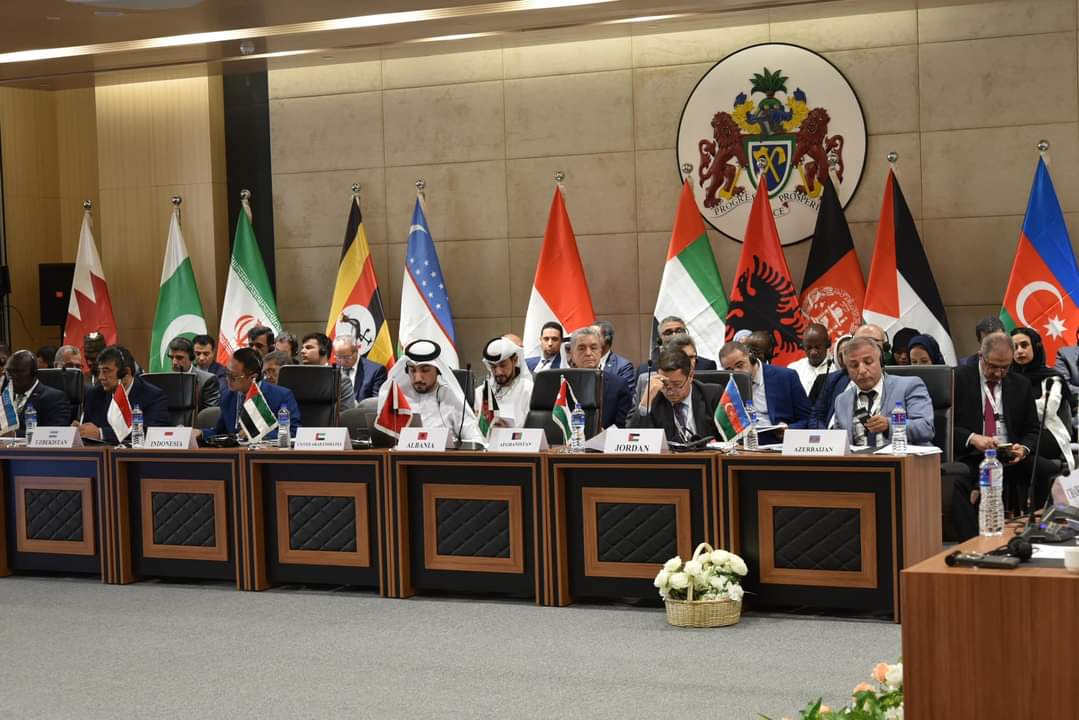
Gambia to Host OIC Summit

EUCLID publishes 2023 Annual Report
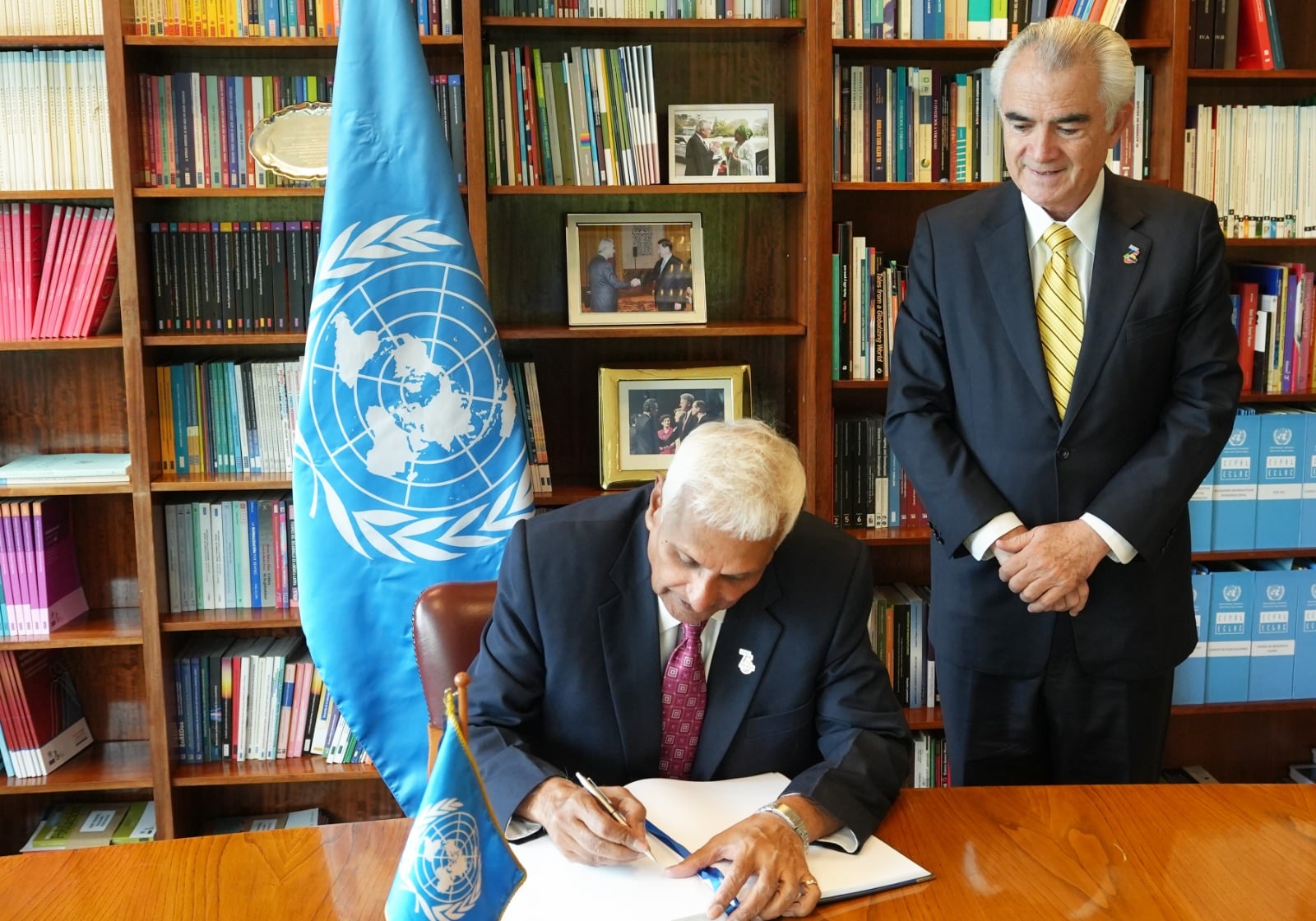
EUCLID Secretary-General Dookeran delivers UN ECLAC lecture
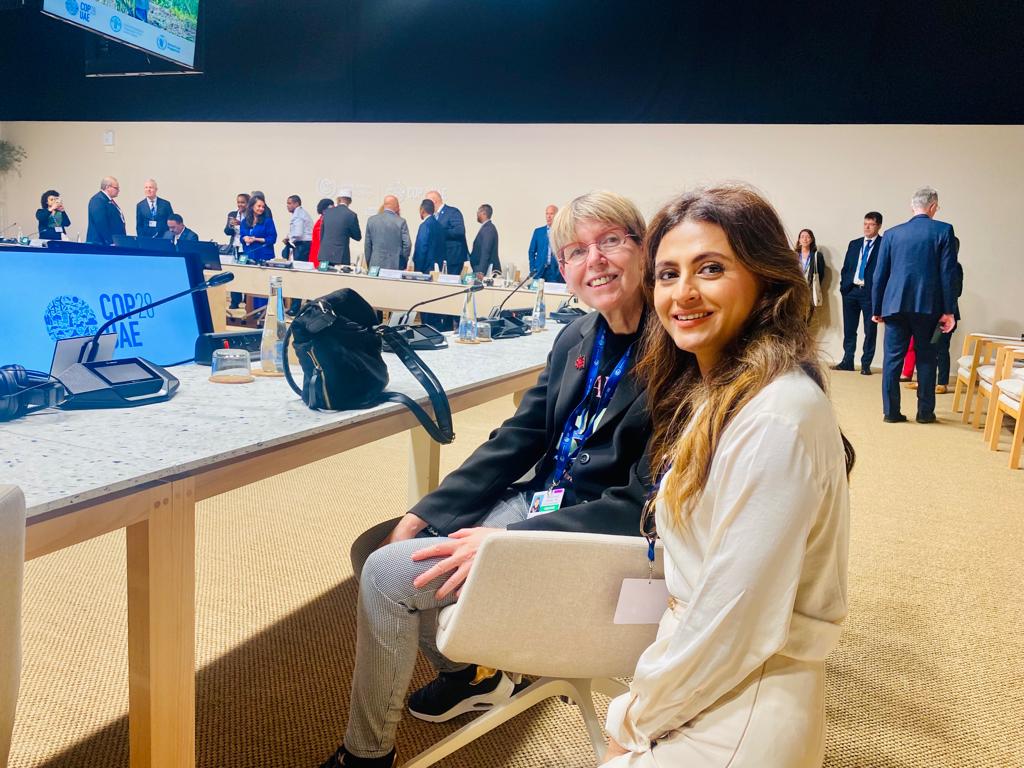
EUCLID Delegation at COP28
The appropriate office and officials will reply within 2 business days. If calling a EUCLID office, make sure to call the correct location based on your profile.
The application review process takes 4-6 business days after receipt of documents.

EUCLID (Pôle Universitaire Euclide |Euclid University) A treaty-based organization with international liaison and representative offices in: New York, Washington DC, Montpellier (France)
Headquarters: Bangui, Central African Republic Commonwealth / ECOWAS Headquarters: Banjul, The Gambia
Studying with EUCLID
- Ph.D. / Doctorate
- Master's degrees
- Bachelor's degrees
- Habilitation and Post-Doc
- Specialized Certificates
Quick Access
- News and Events

Legal Protection Switzerland
About EUCLID
- Legal Status
- Offices and HQs

The EUCLID Charter in UNTS
EUCLID | WWW.EUCLID.INT: THE GLOBAL, INTER-DISCIPLINARY, TREATY-BASED UNIVERSITY
We have 928 international development PhD Projects, Programmes & Scholarships
All disciplines
All locations
Institution
All Institutions
All PhD Types
All Funding
international development PhD Projects, Programmes & Scholarships
Metacognition of international entrepreneurs, phd research project.
PhD Research Projects are advertised opportunities to examine a pre-defined topic or answer a stated research question. Some projects may also provide scope for you to propose your own ideas and approaches.
Self-Funded PhD Students Only
This project does not have funding attached. You will need to have your own means of paying fees and living costs and / or seek separate funding from student finance, charities or trusts.
Postgraduate Research Opportunities in Global Development, Politics and International Relations & Security
Funded phd programme (students worldwide).
Some or all of the PhD opportunities in this programme have funding attached. Applications for this programme are welcome from suitably qualified candidates worldwide. Funding may only be available to a limited set of nationalities and you should read the full programme details for further information.
Social Sciences Research Programme
Social Sciences Research Programmes present a range of research opportunities, shaped by a university’s particular expertise, facilities and resources. You will usually identify a suitable topic for your PhD and propose your own project. Additional training and development opportunities may also be offered as part of your programme.
Birmingham Law School - Postgraduate Research Opportunities
Awaiting funding decision/possible external funding.
This programme is waiting to confirm funding from a university or external source. This may depend on attracting suitable students and applications are welcome. Please see the programme details for more information.
Law Research Programme
Law Research Programmes present a range of research opportunities, shaped by a university’s particular expertise, facilities and resources. You will usually identify a suitable topic for your PhD and propose your own project. Additional training and development opportunities may also be offered as part of your programme.
PhD (School of Social Sciences) Doctorate
The PhD opportunities on this programme do not have funding attached. You will need to have your own means of paying fees and living costs and / or seek separate funding from student finance, charities or trusts.
PhD Research Programme
PhD Research Programmes present a range of research opportunities shaped by a university’s particular expertise, facilities and resources. You will usually identify a suitable topic for your PhD and propose your own project. Additional training and development opportunities may also be offered as part of your programme.
PhD (School of Law) Doctorate
Doctorates in education and lifelong learning, msc by research: unravelling the mechanisms controlling anterior eye development, global development phd studentships at a leading university, building a profile of formula racing drivers at different stages of development, funded phd project (uk students only).
This research project has funding attached. It is only available to UK citizens or those who have been resident in the UK for a period of 3 years or more. Some projects, which are funded by charities or by the universities themselves may have more stringent restrictions.
PhD in International Business and Strategy at Henley Business School
Business research programme.
Business Research Programmes present a range of research opportunities, shaped by a university’s particular expertise, facilities and resources. You will usually identify a suitable topic for your PhD and propose your own project. Additional training and development opportunities may also be offered as part of your programme.
Intervention without violation of natural order: A complex adaptive systems (CAS) perspective of sustainable urban development
Political, social and international studies at uea, humanities research programme.
Humanities Research Programmes present a range of research opportunities, shaped by a university’s particular expertise, facilities and resources. You will usually identify a suitable topic for your PhD and propose your own project. Additional training and development opportunities may also be offered as part of your programme.
The Bradford Executive Doctorate in Business Administration (DBA)
The epigenomic, transcriptional and diagnostic architecture of neurodevelopmental disorders caused by exposure to maternal infection, phd opportunities in the department of geography.
FindAPhD. Copyright 2005-2024 All rights reserved.
Unknown ( change )
Have you got time to answer some quick questions about PhD study?
Select your nearest city
You haven’t completed your profile yet. To get the most out of FindAPhD, finish your profile and receive these benefits:
- Monthly chance to win one of ten £10 Amazon vouchers ; winners will be notified every month.*
- The latest PhD projects delivered straight to your inbox
- Access to our £6,000 scholarship competition
- Weekly newsletter with funding opportunities, research proposal tips and much more
- Early access to our physical and virtual postgraduate study fairs
Or begin browsing FindAPhD.com
or begin browsing FindAPhD.com
*Offer only available for the duration of your active subscription, and subject to change. You MUST claim your prize within 72 hours, if not we will redraw.

Create your account
Looking to list your PhD opportunities? Log in here .
Filtering Results
- EADI 50th Anniversary Celebrations
- 2024 - 2025: EADI 50th Anniversary Celebrations
- Blog: Debating Development Research
- Podcast: Hierarchies of Development
- European Joint Doctorate (EJD) ADAPTED
- Bonn Sustainability Portal
- Event Calendar
- Virtual Dialogues
- Public Lectures and Plenary Sessions
- Scientific Committee
- Seed Panels
- Harvest Panels
- Roundtables
- Directors’ Meeting
- EADI Premium Members
- Member Calls for Papers & Proposals
- Member Jobs & Internships
- Member Courses & Trainings
- EADI Working Groups
- European Journal of Development Research (EJDR)
- Contribution Guide for Members
- Blogs & Comments
- Academic Research & Reports
- Policy Publications
- EADI Papers
- EADI Book Series
- Constitution
- Organisational Structure
- Sustainability Policy
- Annual Reports
- Contact & Staff
- Decolonising Knowledge for Development
- Definition of Development Studies
- Building Development Studies for the New Millennium
- Challenging Global Development
- IAC/EADI Accreditation
- News on Accreditation
- Accredited Programmes
PhD in International Development Studies
- Development
- Politics & Governance
- _doctoral_degree / PhD
- _on campus course
- Northern Europe
- Western Europe
This website uses cookies. Those have two functions: On the one hand they are providing basic functionality for this website. On the other hand they allow us to improve our content for you by saving and analyzing anonymized user data. You can redraw your consent to using these cookies at any time. Find more information regarding cookies on our Data Protection Declaration and regarding us on the Imprint .
These cookies are needed for a smooth operation of our website.
| Name | Purpose | Lifetime | Type | Provider |
|---|---|---|---|---|
| CookieConsent | Saves your consent to using cookies. | 1 year | HTML | Website |
| fe_typo_user | Assigns your browser to a session on the server. | session | HTTP | Website |
With the help of these cookies we strive to improve our offer for our users. By means of anonymized data of website users we can optimize the user flow. This enables us to improve ads and website content.
| Name | Purpose | Lifetime | Type | Provider |
|---|---|---|---|---|
| _pk_id | Used to store a few details about the user such as the unique visitor ID. | 13 months | HTML | Matomo |
| _pk_ref | Used to store the attribution information, the referrer initially used to visit the website. | 6 months | HTML | Matomo |
| _pk_ses | Short lived cookie used to temporarily store data for the visit. | 30 minutes | HTML | Matomo |
| _pk_cvar | Short lived cookie used to temporarily store data for the visit. | 30 minutes | HTML | Matomo |
| _pk_hsr | Short lived cookie used to temporarily store data for the visit. | 30 minutes | HTML | Matomo |
| DSID | Google: Security, Functionality, Advertising for AdSense, Campaign Manager, Google Ad Manager, Google Analytics, Display + Video 360, Search Ads 360 | 2 weeks | HTML | |
| test_cookie | Google: Functionality for AdSense, Campaign Manager, Google Ad Manager, Google Analytics, Display + Video 360, Search Ads 360 | 15 minutes | HTML | |
| IDE | Google: Advertising for Campaign Manager, Display + Video 360, Google Ad Manager, Google Analytics, Search Ads 360 | 24 months | HTML | |
| FPLC | Google: Analytics for Google Analytics | 20 hours | HTML | |
| FPID | Google: Analytics for Google Analytics | 2 years | HTML | |
| GA_OPT_OUT | Google: Functionality for Google Analytics | 7 years | HTML | |
| __utma | Google: Analytics for Google Analytics | 2 years | HTML | |
| __utmb | Google: Analytics for Google Analytics | 30 minutes | HTML | |
| __utmc | Google: Analytics for Google Analytics | session | HTML | |
| __utmt | Google: Analytics for Google Analytics | 10 minutes | HTML | |
| __utmz | Google: Analytics for Google Analytics | 6 months | HTML | |
| __utmv | Google: Analytics for Google Analytics | 2 years | HTML | |
| _ga | Used to distinguish users. | 2 years | HTML | |
| _gat | Used to throttle request rate. | 1 minute | HTML | |
| _gat_--custom-name-- | Google: Analytics for Google Analytics | 1 minute | HTML | |
| _gid | Used to distinguish users. | 24 hours | HTML | |
| _ga_--container-id-- | Persists session state. | 2 years | HTML | |
| _dc_gtm_--property-id-- | Used by DoubleClick (Google Tag Manager) to help identify the visitors by either age, gender or interests. | 1 minute | HTML | |
| _gaexp | Google: Analytics for Google Analytics, Optimize | 93 days | HTML | |
| _gaexp_rc | Google: Analytics for Google Analytics, Optimize | 10 seconds | HTML | |
| _opt_awcid | Google: Analytics for Google Analytics, Optimize | 24 hours | HTML | |
| _opt_awmid | Google: Analytics for Google Analytics, Optimize | 24 hours | HTML | |
| _opt_awgid | Google: Analytics for Google Analytics, Optimize | 24 hours | HTML | |
| _opt_awkid | Google: Analytics for Google Analytics, Optimize | 24 hours | HTML | |
| _opt_utmc | Google: Analytics for Google Analytics, Optimize | 24 hours | HTML | |
| _gac_--property-id-- | Contains campaign related information for the user. If you have linked your Google Analytics and Google Ads accounts, Google Ads website conversion tags will read this cookie unless you opt-out. | 90 days | HTML | |
| AMP_TOKEN | Contains a token that can be used to retrieve a Client ID from AMP Client ID service. Other possible values indicate opt-out, request in progress or an error retrieving a Client ID from AMP Client ID service. | 1 year | HTML | |
| MUID | Used as unique user identifier. The cookie allows user tracking across many Microsoft domains. | 1 year | HTML | Bing |
| MUIDB | Saves anonymous user data from multiple website visits on multiple sites to test advertisement efficiency. | 1 year | HTML | Bing |
| _fbp | Stores the unique visitor ID. | 28 days | HTML | |
| facebookPixel | If JavaScript is not enabled, this pixel initiates a connection to facebook. | none | Pixel | |
| __RequestVerificationToken | The cookie is used to implement anti-forgery concerning Microsoft-forms on the website. | session | HTTP | Microsoft |
| AADNonce.forms | The cookie is used to implement Microsoft-forms on the website. | session | HTTP | Microsoft |
| DcLcid | The cookie is used to implement Microsoft-forms on the website. | 3 months | HTTP | Microsoft |
| MSFPC | The cookie allows user tracking across many Microsoft domains and is used for Bing Analytics. | 1 year | HTML | Microsoft |
| UID | The cookie is used for market and user research (Scorecard Research). | 2 years | HTML | Slideshare |
| UIDR | The cookie is used for market and user research (Scorecard Research). | 2 years | HTML | Slideshare |
| bcookie | Browser Identifier cookie to uniquely identify devices accessing LinkedIn to detect abuse on the platform. | 2 years | HTML | Slideshare |
| lang | Used to memorize a user's language setting. | session | HTML | Slideshare |
| __eoi | Google: Security for AdSense, AdSense for Search, Display + Video 360, Google Ad Manager, Google Ads | 6 months | HTML | |
| NID | Google: Security, Analytics, Functionality, Advertising for AdSense for Search, Google Ads | 6 months | HTML | |
| __gads | Google: Advertising for AdSense, Display + Video 360, Google Ad Manager, Google Ads | 13 months | HTML | |
| pm_sess | Google: Security, Functionality for Campaign Manager, Display + Video 360, Google Ads, Search Ads 360 | 30 minutes | HTML | |
| pm_sess_NNN | Google: Security, Functionality for Campaign Manager, Display + Video 360, Google Ads, Search Ads 360 | 30 minutes | HTML | |
| aboutads_sessNNN | Google: Security, Functionality for Campaign Manager, Display + Video 360, Google Ads, Search Ads 360 | 30 minutes | HTML | |
| FPAU | Google: Analytics, Advertising for Campaign Manager, Display + Video 360, Google Ads, Search Ads 360 | 90 days | HTML | |
| ANID | Google: Advertising for Campaign Manager, Display + Video 360, Google Ads, Search Ads 360 | 24 months | HTML | |
| AID | Google: Analytics, Advertising for Campaign Manager, Display + Video 360, Google Ads, Search Ads 360 | 24 months | HTML | |
| TAID | Google: Analytics, Advertising for Campaign Manager, Display + Video 360, Google Ads, Search Ads 360 | 14 days | HTML | |
| _gcl_au | Used by Google AdSense to experiment with advertisement efficiency. | 90 days | HTML | |
| RUL | Google: Advertising for Display + Video 360, Google Ads | 12 months | HTML | |
| FPGCLAW | Google: Analytics, Advertising for Google Ads | 90 days | HTML | |
| FPGCLGB | Google: Analytics, Advertising for Google Ads | 90 days | HTML | |
| _gcl_gb | Google: Analytics, Advertising for Google Ads | 90 days | HTML | |
| _gac_gb_--wpid-- | Google: Analytics, Advertising for Google Ads | 90 days | HTML | |
| _gcl_aw | Google: Analytics, Advertising for Google Ads | 90 days | HTML | |
| 1P_JAR | Google: Advertising for Google Ads | 30 days | HTML | |
| Conversion | Google: Advertising for Google Ads | 90 days | HTML | |
| YSC | Google: Security for Google Ads, YouTube | session | HTML | |
| VISITOR_INFO1_LIVE | Google: Security, Advertising for Google Ads, YouTube | 180 days | HTML | |
| VISITOR_INFO1_LIVE__k | Google: Security, Advertising for Google Ads, YouTube | 180 days | HTML | |
| VISITOR_INFO1_LIVE__default | Google: Security, Advertising for Google Ads, YouTube | 180 days | HTML |
With the help of these cookies we strive to improve our offer for our users. By means of providing video content or other useful content like maps to enhance the user experience.
| Name | Purpose | Lifetime | Type | Provider |
|---|---|---|---|---|
| GoogleMaps | Is used to connect to Google Maps and to display those maps. | none | Connection | |
| YouTube | Is used to connect to YouTube and to display videos. | none | Connection | YouTube |
| MicrosoftStream | Is used to connect to Microsoft Stream and display videos. | none | Connection | MicrosoftStream |
| Signature_Api | Is used to connect to the Microsoft signature API. | session | HTTP | MicrosoftStream |
| Authorization_Api | Is used to connect to the Microsoft authorization API. | session | HTTP | MicrosoftStream |
| RedirectToThinEmbed | Is used to embed Microsoft Stream videos. | session | HTTP | MicrosoftStream |
| UserSession_Api | Is used to store the user session of the Microsoft API. | session | HTTP | MicrosoftStream |
| wfeSessionId | Is used to store the Web Front End Session ID of Microsoft Stream. | session | HTTP | MicrosoftStream |
| __cf_bm | Required to see Vimeo content. | 1 year | HTTP | Vimeo |
| OptanonAlertBoxClosed | Saves the state of your Vimeo data protection consent. | 1 year | HTML | Vimeo |
| OptanonConsent | Saves the state of your Vimeo data protection consent. | 1 year | HTML | Vimeo |
| player | This cookie saves your preferences before playing an embedded Vimeo video. This will bring you back to your preferred settings the next time you watch a Vimeo video. | 1 year | HTML | Vimeo |
| vuid | This cookie gathers information about your actions on websites embedding Vimeo videos. | 2 years | HTML | Vimeo |
| _abexps | This cookie remembers your settings. Settings can include language, region or login user. In general this cookie saves data about how you use Vimeo. | 1 year | HTML | Vimeo |
| continuous_play_v3 | This cookie is a first-party cookie from Vimeo. The cookie collects information on how you use the Vimeo service. For example, the cookie saves when you pause and play a video again. | 2 years | HTML | Vimeo |
| Name | Purpose | Lifetime | Type | Provider |
|---|---|---|---|---|
| _pk_id | Used to store a few details about the user such as the unique visitor ID. | 13 months | HTML | Matomo |
| _pk_ref | Used to store the attribution information, the referrer initially used to visit the website. | 6 months | HTML | Matomo |
| _pk_ses | Short lived cookie used to temporarily store data for the visit. | 30 minutes | HTML | Matomo |
| _pk_cvar | Short lived cookie used to temporarily store data for the visit. | 30 minutes | HTML | Matomo |
| _pk_hsr | Short lived cookie used to temporarily store data for the visit. | 30 minutes | HTML | Matomo |
- EN Action Another action
- Free Counselling
Thanks for visiting TopUniversities.com today! So that we can show you the most relevant information, please select the option that most closely relates to you.
- Looking for undergraduate studies
- Looking for postgraduate studies
- Student but not looking for further education at the moment
- Parent or Guardian
- University administrator
- Professional
Thanks for sending your response.
Your input will help us improve your experience. You can close this popup to continue using the website or choose an option below to register in or login.
Already have an account? Sign in
University and Program Search
- Universities
- Recommended
Reset Filters
More Filters
- Tuition Fee
- MBA Program Type
- Qualifying Exam
- Apply via QS
- Delivery Mode
Tuition Fees in USD/year
- Study Level
- 1001 - 5000
- 5,001 - 10,000
- More than 20,000
- Executive MBA
- GRE Enter Score Optional
- GMAT Enter Score Optional
- IELTS Enter Score Optional
- TOEFL Enter Score Optional
- Rankings High to Low
- Tuition Fee Low to High
- Tuition Fee High to Low
- Alphabetical Order A to Z
- Alphabetical Order Z to A
No Results Found!
Explore other recommended universities.
Results per page:
1-10 of 1000
Structured Doctoral Programs
Each of our structured doctoral programs offers a comprehensive and cross-disciplinary curriculum designed to help you realize your full potential and prepare for a successful career. The programs include innovative, personalized advising with regular progress checks, as well as extensive opportunities to broaden your research network and connect with peers in your field.
The University of Bonn offers a wide range of funding opportunities, which have been summarized for you on this page, divided into the following categories:
Bonn International Graduate Schools (BIGS)
Phd programs within our cluster of excellence.
- Structured Doctoral Programs by Discipline
Third-Party Funded Programs
Doctoral education at the highest level: BIGS enable doctoral studies in outstanding research contexts with attractive international collaborations and a qualification program tailored to the needs of graduate students.
Located at the Hausdorff Center for Mathematics and supported by Germany’s Excellence Initiative, BIGS-M is home to all of the University’s doctoral candidates in mathematics and contributes to Bonn’s excellent international reputation in the field.
BGSE offers a structured program that is tailored to the needs of doctoral candidates, including an internationally recognized research network.
Supported by Germany’s Excellence Initiative and jointly administered by the renowned Physics Institutes at the Universities of Bonn and Cologne, BCGS offers doctoral studies through an integrated honors program.
Home to an international community of talented biomedical scientists, BIGS DrugS 6 6 is the hub for doctoral candidates from pharma research institutes within the University’s Faculty of Mathematics and Natural Sciences and Faculty of Medicine.
BIGS-OAS offers a wide range of courses within a research context, focused on the cultures and societies of Asia and Asia Minor.
BIGS Neuroscience provides a top-level, internationally competitive program in this rapidly growing field.
BIGS CPS's interdisciplinary approach combines medical, agricultural and pharmaceutical research.
BIGS Chemistry 10 doctoral candidates enjoy an exceptional and ambitious program covering all fields of chemistry.
This three-year doctoral program is offered in conjunction with the University’s ImmunoSensation Cluster, which is funded by Germany’s Excellence Initiative.
Part of the University of Bonn’s Center for Development Research, BIGS-DR trains students for an international career in development cooperation, policy or research through a combination of academic study and intensive tutorship.
The BIGS Land and Food combines the research at the agricultural Faculty with an interdisciplinary study program.
BIGS-LIMES offers a graduate program for doctoral students in Bonn specializing in biochemistry, life sciences and biomedicine.
Clusters of Excellence stand for international and interdisciplinary elite research and offer young scientists excellent funding and career conditions. The University of Bonn currently has six clusters of excellence, more than any other university in Germany, and thus opens up a broad spectrum of possible research topics to doctoral candidates. Here you will find an overview of the university's clusters of excellence.

PhD Programs within our Excellence Cluster
The goal of the Hausdorff Center of Mathematics is to identify and address mathematical challenges of the 21st century, to advance groundbreaking fundamental mathematical research worldwide, and to develop the mathematical methods and tools required by science and society.
Part of the Hausdorff Center is also a graduate school: The Bonn International Graduate School of Mathematics (BIGS-M) hosts all doctoral students of mathematics and contributes to the outstanding international reputation of the university in this field. The duration of the program is usually 3 years, and the doctorate (Dr. rer nat.) can be earned as a degree.
More information: https://www.bigs-math.uni-bonn.de/de/studies/ 14 15 15
ImmunoSensation2 aims to continue the success story of the existing ImmunoSensation cluster. While the emphasis so far has been on fundamental research in particular of the innate immune system, now the mechanisms of immune intelligence are to be uncovered, i.e. the question of how the body succeeds in adapting immune responses to specific situations and then remembers this in order to be optimally prepared for similar challenges in the future. The cluster's graduate school, the Bonn International Graduate School Immunosciences and Infection offers a structured, three-year doctoral program.
You can find further information about this program here:
https://www.immunosensation.de/opportunities/young-scientists
Until today, dependency studies has almost exclusively dealt with slavery on the American continent or in antiquity. The Cluster of Excellence "Bonn Center for Dependency and Slavery Studies (BCDSS)" aims to broaden this perspective in terms of content, space and time. Within the framework of the cluster, a structured doctoral program with a duration of 4 years is offered.
Further information can be found at: https://www.dependency.uni-bonn.de/en 15 16
Over the last few decades, computer hardware has become smaller and smaller, but their technology remains more or less the same. Slowly, this development is reaching its limits.Thus, we need new technologies that satisfy our growing hunger for even more powerful hardware.
Quantum physics could be a solution.
Together with the University of Cologne and the RWTH Aachen, Bonn researchers want to work on making this new technology usable. To achieve this, quantum bits or even qubits - the quantum counterpart to our previous bits - quantum communication channels that build networks and error correction methods have to be explored from the ground up. As part of the Excellence Initiative, the Bonn-Cologne Graduate School of Physics and Astronomy (BCGS) offers a doctoral program with an integrated honors program.
Further information can be found at: http://www.gradschool.physics.uni-bonn.de/. 4 4
The ECONtribute researches the functioning of markets as well as reasons for their failure. In doing so, the cluster goes beyond traditional analyses by systematically combining model-based theoretical approaches and behavioral explanatory models while incorporating legal and political frameworks. Within the cluster, the Bonn Graduate School of Economics (BGSE) offers doctoral students a tailored structured doctoral program that includes an internationally recognized research network.
Further information can be found at: https://www.bgse.uni-bonn.de. 3 3
Increasing agricultural production despite limited land while reducing the ecological footprint of agriculture - this is one of the challenges of our time. For this reason, the University of Bonn and Forschungszentrum Jülich are jointly developing methods and new technologies to observe, analyze, better understand and more specifically treat plants. The cluster's graduate school, the Theodor Brinkmann Graduate School, offers an interdisciplinary study program to master's students and doctoral candidates at the Faculty of Agriculture.
More information: https://www.phenorob.de/ .

The Third-Party Funded Programs at the University of Bonn offer structured doctoral studies on selected research topics. They enable close networking among doctoral students conducting research on related topics.
Bonn International Graduate School of Mathematics (BIGS-M) 2 17 18 18 Located at the Hausdorff Center for Mathematics, BIGS-M provides an umbrella for all Bonn PhD students in mathematics. Thus, the BIGS-M contributes to the excellent national and international reputation of mathematics at Bonn.
Bonn International Graduate School Immunosciences and Infection The BIGS Immunosciences and Infection is a structured 3-year PhD program in conjunction with the ImmunoSensation Cluster/Bonn. The ImmunoSensation Cluster is part of the Excellence Strategy.
DFG Research Training Group "Gegenwart/Literatur. Geschichte, Theorie und Praxeologie eines Verhältnisses" (GRK 2291) [only in German] The Research Training group supported by the DFG aims at the exploration and analysis of the constitutive dimensions of the concept of contemporary literature.
DFG international Research Training Group "Myeloid antigen presenting cells and the induction of adaptive immunity" GRK (2168) 19 19 19 19 The DFG-funded project is a cooperation of the University of Bonn and the University of Melbourne. The principal research focus is the intersection between innate and adaptive immunity in the context of infection.
DFG Research Training Group "Template-designed Organic Electronics (TIDE)" (GRK 2591) 21 21 21 The Graduate Program 'Template-Designed Optoelectronic Devices' (TIDE) aims to provide comprehensive doctoral education in the field of Organic Electronics (OE) to meet the requirements of highly qualified and multidisciplinary professionals.
DFG Research Training Group "Tools and Drugs of the Future - Innovative Methods and New Modalities in Medicinal Chemistry" (GRK 2873) The goal of the RTG " Tools and Drugs of the Future" is to modernize medicinal chemistry and train a new generation of medicinal chemists and researchers at the interface with interconnected disciplines. In addition, the projects are intended to contribute to the development of new drug substances.
Integrated Research Training Group at the DFG Collaborative Research Centre "Synaptic Micronetworks in Health and Disease" (SFB 1089) 22 22 27 27 Located at the newly inaugurated SFB 1089 on neuronal networks, the Integrated Research Training Group offers a structured graduate program for all doctoral researchers at the Centre.
Integrated Research Training Group at theDFG Collaborative Research Centre "Future Rural Africa" (SFB/TRR 228) The integrated research group is investigating the relationship between land use change and shaping the future in rural Africa in a total of 14 subprojects.
Integrated Research Training Group at the DFG Collaborative Research Centre "Open System Control of Atomic and Photonic Matter" (SFB/TRR 185) 24 The collaborative research centre Oscar will explore the physics of open systems.
Integrated Research Training Group at the DFG Collaborative Research Centre "Aortic Diseases" (SFB/TRR 259) 25 The aim of this research initiative is to better understand the molecular and cellular mechanisms of resident and non-resident cells in aortic diseases.
Integrated Research Training Group at the DFG Collaborative Research Centre "Regional Climate Change: Disentangling the Role of Land Use and Water Management" (SFB 1502) The SFB combines the strengths of the University of Bonn and its project partners to answer one of the most difficult questions in understanding climate change.
Integrated Research Training Group at the DFG Collaborative Research Centre "Brown and Beige Fat - Organ Crosstalk, Signaling and Energetics (BATenergy)" (SFB/TRR 333) The CRC investigates metabolism/diabetes and focusses on brown adipose tissue.
One Health and Urban Transformation
The NRW Forschungskolleg One Health and Urban Transformation is a transdisciplinary graduate school that aims to find interventions to achieve optimal health for humans, animals, plants and the environment with a special focus on developments in NRW, Saõ Paulo, Accra and Ahmedabad.
International Max Planck Research School Moduli Spaces 27 27 In cooperation with the University of Bonn, the renowned Bonn Max-Planck-Institute for Mathematics offers a PhD program with a special focus on the study of moduli.
International Max Planck Research School for Astronomy and Astrophysics 28 28 In cooperation between the Max-Planck Institute for Radio Astronomy and the Universities of Bonn and of Cologne, the Research School facilitates 3 years of PhD studies with a curriculum tailored to the individual student.
International Max Planck Research School for Brain and Behavior 29 The IMPRS for Brain & Behavior is a cooperation between the Max Planck Institute for Neurobiology of Behavior - caesar, the University of Bonn and the German Center for Neurodegenerative Diseases (DZNE) in Bonn
International Max Planck Research School - Recharge IMPRS-RECHARGE focuses on interdisciplinary research between chemistry and physics with an emphasis on catalytic mechanisms, physical-chemical analysis and energy topics. Scientific challenges shall be looked at from different angles. Furthermore the combination of theory and practice is a vital aim of the IMPRS-RECHARGE.
Marie Skłodowska-Curie Innovative Training Network "Macro and Microplastic in Agricultural Soil Systems“ (SOPLAS) The SOPLAS project will assemble a multidisciplinary team to study the nexus of plastic–agriculture–soil. It will also train a new generation of leading experts. The project aims to identify the plastic cycle within agricultural soil systems and support the development of environmental policies related to mitigating the impact of plastics. The findings will advance our knowledge about the sustainable use of plastics in European agriculture.
Marie Skłodowska-Curie Innovative Training Network "Early Stage Researchers EDUCational Program on Factor VIII Immunogenicity“ (EDUC8 ) 32 37 The EDUC8 program is a multidisciplinary training program with exposure of the enrolled ESRs to a core common educational package and development of individual PhD researchprojects dedicated to decreasing the societal burden associated with the development of anti-FVIII antibodies in Europe.
Tools4Teams - "Research Training to Design and Implement Tools Supporting Safe Teamwork in Healthcare"
The Tools4Teams research project will prepare the next generation of teamwork experts to contribute new insights and smart technologies for safe and effective care. Tools4Teams brings together expertise from social and technical sciences, human-centered design, education, and clinical specialties.
Trinational Graduate College "Mass and Integration in Antique Societies" [in German/French] Supported by the Deutsch-Französische Hochschule since 2011, the tri-national Graduate School in Ancient History offers curriculum events in Bonn, Berne, and Strasbourg.
Structured Doctoral Programs by Discipline
Find the right structured doctoral program at the University of Bonn in your discipline here:
- Cross-Disciplinary Options
- Medicine and Life Sciences
- Mathematics and Natural Sciences
- Agriculture

Faculties at the University of Bonn work together to design interdisciplinary programs that combine key perspectives and offer unique insights.
Cross-Disciplinary Programs
Bonn International Graduate School for Development Research (BIGS-DR) 42 Unique in Europe, BIGS-DR links perspectives from the Faculties of Philosophy, Agriculture, and Law and Economics – with an international focus.
Bonn International Graduate School of Neuroscience (BIGS Neuroscience) 8 8 A collaboration between the University’s Faculty of Medicine and Faculty of Mathematics and Natural Sciences, as well as external partners, BIGS Neuroscience offers a medical program alongside five research areas in medicine.
SciMed Doctoral College 43 42 The Doctoral College offers scientific training for students in medicine and dental medicine, leading to a dual Dr. med. and Dr. med. dent. degree.
Researchers at the University of Bonn explore a wide variety of issues in economics, including game theory, applied microeconomics, monetary and international macroeconomics, contract theory, labor economics and finance.
Economics Programs
Bonn Graduate School of Economics (BGSE) BGSE offers a structured program that is tailored to the needs of doctoral candidates, including an internationally recognized research network.
Law Programs
Graduate School of Law and Political Science Department of Law The Graduate School of the Faculty of Law and Political Science was founded in the summer semester of 2018 and supports the doctoral students in preparing their doctoral studies.
The University of Bonn’s Faculty of Medicine offers doctoral programs in medical biochemistry, neurosciences and pharmacology. With the exception of the SciMed Doctoral College, all programs are administered in cooperation with the University’s Faculty of Mathematics and Natural Sciences.
Cross-Disciplinary Program
SciMed Doctoral College The Doctoral College offers scientific training for students in medicine and dental medicine, leading to a dual Dr. med. and Dr. med. dent. degree.
Neuroscience
Bonn International Graduate School of Neuroscience (BIGS Neuroscience) BIGS Neuroscience provides a top-level, internationally competitive program in this rapidly growing field.
Synaptic Micronetworks in Health and Disease (SFB 1089) Supported by the German Research Foundation (Deutsche Forschungsgemeinschaft – DFG) collaborative research centers, this integrated research training group works to identify fundamental rules that govern neuronal behavior at the network level and translate network dynamics to mammalian and human behavior.
International Max Planck Research School for Brain and Behavior A joint venture of the University of Bonn, the Max-Planck-associated Center of Advanced European Studies and Research, the Max Planck Florida Institute for Neuroscience, and Florida Atlantic University, this graduate school offers a complete doctoral and research program in the neurosciences.
Pharma Research
Bonn International Graduate School of Drug Sciences (BIGS DrugS) Home to an international community of talented biomedical scientists, BIGS DrugS is the hub for doctoral candidates from pharma research institutes within the University’s Faculty of Mathematics and Natural Sciences and Faculty of Medicine.
Bonn International Graduate School of Immunosciences and Infection
This three-year doctoral program is offered in conjunction with the University's ImmunoSensation Cluster , which is funded by Germany’s Excellence Initiative.
DFG Research Training Group "Myeloid antigen presenting cells and the induction of adaptive immunity" GRK (2168) The DFG-funded project is a cooperation of the University of Bonn and the University of Melbourne.
At the University of Bonn’s Faculty of Arts, you’ll find a highly international environment with students and researchers in a wide range of fields.
German Studies, Comparative Literature and Culture
Structured Doctoral Program in German Studies (SPP) [website in German] Taught in German, the SPP supports doctoral candidates’ initiatives within the Institute for German, Comparative Literature and Cultural Studies.
German-Italian Doctoral College [website in German] Taught in German, this three-year grant program provides structured doctoral studies for researchers in German and Italian, with time in both Bonn and Florence.
History and Ancient History
Mass and Integration in Antique Societies [website in German and French] Supported by Franco-German University and taught in German and French, this trinational doctoral program includes study in Bonn; Berne, Switzerland; and Strasbourg, France.
Oriental and Asian Studies Bonn
International Graduate School of Oriental and Asian Studies (BIGS-OAS) BIGS-OAS offers a wide range of courses within a research context, focused on the cultures and societies of Asia and Asia Minor.
Romance Studies
Italian Studies [website in German and Italian] Offered in cooperation with the Universities of Florence and Paris-Sorbonne IV, this trinational doctoral program is taught in German and Italian.
Structured DPhil program at the Faculty of Arts The program supports qualified doctoral candidates from all disciplines in their doctoral projects. It provides the opportunity for networking, interdisciplinary exchange in diverse social sciences and humanities subjects, progress monitoring and financial support for travel, workshops or research funding as part of the doctorate.
European Founding Myths in Literature, Arts and Music [website in German, French and Italian] This trinational program is jointly organized by the Universities of Bonn, Florence and Paris-Sorbonne IV and taught in German, French and Italian.
Bonn International Graduate School for Development Research (BIGS-DR) Part of the University of Bonn’s Center for Development Research, BIGS-DR trains students for an international career in development cooperation, policy or research through a combination of academic study and intensive tutorship.
The University’s Faculty of Mathematics and Natural Sciences offers numerous externally funded doctoral programs in areas including mathematics and informatics, physics, biology, pharmacology and molecular biomedicine.
Programs in neuroscience, pharma research, immunoscience, and infection and molecular biomedicine are offered in cooperation with the Faculty of Medicine.
Mathematics
Bonn International Graduate School of Mathematics (BIGS-M) 2 2 Located at the Hausdorff Center for Mathematics, BIGS-M is home to all of the University’s doctoral candidates in mathematics and contributes to Bonn’s excellent international reputation in the field.
International Max Planck Research School on Moduli Spaces 53 53 This program includes courses, seminars and activities focused on the geometric spaces whose points represent fixed algebro-geometric objects (or isomorphism classes of such objects).
Physics und Astronomy
Bonn-Cologne Graduate School of Physics and Astronomy (BCGS) 4 4 Supported by Germany’s Excellence Initiative and jointly administered by the renowned Physics Institutes at the Universities of Bonn and Cologne, BCGS offers doctoral studies through an integrated honors program.
International Max Planck Research School of Astronomy and Astrophysics 55 55 This program offers a broad spectrum of topics in observational and theoretical galactic and extragalactic astrophysics, observational and theoretical cosmology, and fundamental physics – using astronomical tools and instrumentation.
Leibniz Graduate School on Genomic Biodiversity Research Based at Bonn’s Alexander Koenig Research Museum, this school is focused primarily on insect genome evolution.
Bonn International Graduate School of Chemistry (BIGS Chemistry) 57 57 BIGS Chemistry offers an internationally competitive doctoral program and opportunities to perform cutting-edge research.
Neurosciences
Bonn International Graduate School of Neuroscience (BIGS Neuroscience) 8 8 BIGS Neuroscience provides a top-level, internationally competitive program in this rapidly growing field.
Synaptic Micronetworks in Health and Disease (SFB 1089) 22 22 Supported by DFG collaborative research centers, this integrated research training group works to identify fundamental rules that govern neuronal behavior at the network level and translate network dynamics to mammalian and human behavior.
International Max Planck Research School for Brain and Behavior 29 29 The IMPRS for Brain & Behavior is a cooperation between the Max Planck Institute for Neurobiology of Behavior - caesar, the University of Bonn and the German Center for Neurodegenerative Diseases (DZNE) in Bonn.
Bonn International Graduate School of Drug Sciences (BIGS DrugS) 6 6 Home to an international community of talented biomedical scientists, BIGS DrugS is the hub for doctoral candidates from pharma research institutes within the University’s Faculty of Mathematics and Natural Sciences and Faculty of Medicine.
BIGS Immunoscience and Infection A structured, three-year doctoral program, IITB is offered in conjunction with the ImmunoSensation Cluster at the University of Bonn.
Doctoral candidates in the field of agriculture may choose to study through the Faculty of Agriculture’s Theodor Brinkmann Graduate School or earn their degree through the University of Bonn’s Center for Development Research.
Agriculture Programs
Bonn International Graduate School for Land and Food (BIGS Land and Food) Founded in 2008, the Brinkmann School is home to master's and doctoral candidates in the Faculty of Agriculture, combining research with an interdisciplinary study program.
Bonn International Graduate School for Development Research (BIGS-DR) 12 Part of the University of Bonn’s Center for Development Research 59 , BIGS-DR trains researchers for an international career in development cooperation, policy or research through a combination of academic study and intensive tutorship.

Dr. Robert Radu
+49 228 73-60222
Poppelsdorfer Allee 47
Office Hours
Questions about the structured doctorate? Register for the (virtual) office hours and get advice:
- Tuesday 2.00 p.m. - 4.00 p.m.
Additional Qualification: Doctorate plus
Expand your skills with our training program Doctorate plus.
Learn about the numerous funding opportunities and grants for doctoral students.
Events and Opportunities
Find out what's new and see upcoming events.

IMAGES
VIDEO
COMMENTS
Explore 10 leading PhD programmes in development studies at European universities. Learn about the research topics, methods and opportunities for international development careers.
Find the best PhD programmes in the field of International Development from top universities in Europe. Check all 37 programmes. Explore; ... European Studies 18. Forensic Psychology 6. French Studies 14. Gender & Sexuality ... PhD programmes in International Development in Europe. Programmes Universities Scholarships. Page 1 | 37 PhDs. Filters ...
Learn about the interdisciplinary research community and programme structure of the International Development PhD at Edinburgh. Explore the areas of expertise, funding opportunities and application process for this postgraduate degree.
Study for a PhD in International Development (Global Studies) at Sussex, a top-ranked university for Development Studies. Explore diverse topics, supervisors and funding opportunities in a lively and diverse research community.
Learn about the interdisciplinary research and teaching on processes of social, political and economic development and change at LSE. Find out the entry requirements, fees, funding and application deadline for this programme starting in 2024.
Studying for a degree by research with IDD means being part of an active research and practitioner community that will support you in accomplishing your academic goals. Our distance learning PhD in International Development offers the opportunity to conduct original research under the guidance of academic supervisors, leading to an 80,000 word ...
The International Development Department (IDD) is committed to encouraging new thinking in the fields of development studies, global politics, and public policy. Studying for a degree by research with IDD means being part of an active research and practitioner community that will support you in accomplishing your academic goals.
Recently released data from the Higher Education Funding Council for England (HEFCE) shows that King's is equal top in England (with Queen Mary, University of London) for its PhD completion rates. This means 86.8 percent of our full-time PhD starters qualify with a research degree within seven years, against a national average in England of ...
We warmly invite candidates to apply for a PhD degree in International Development. The University of Edinburgh is host to a thriving and cosmopolitan community of researchers working on global development challenges. We are home to internationally renowned academics working at the intersection of international development policy and health ...
The Department of International Development runs a vibrant research programme with students employing a variety of disciplinary and interdisciplinary methods for research projects across Asia, Africa, Latin America and the Middle East. The MRes/PhD in International Development is a one-year research Master's linked to a four-year PhD.
The PhD in International Development Studies combines working on individual PhD research projects with participation in taught modules. The variety of modules offered allows for tailor made qualification for each PhD candidate. ... a Marie Skłodowska-Curie Innovative Training Network project funded by the European Union under the Horizon 2020 ...
The PhD requires a dissertation of up to 80,000 words. Postgraduate research provides opportunities to develop your academic, creative and practical skills. You'll work independently in an academic environment where scholarship and creativity go hand-in-hand. Join one of our leading research groups, which brings together expertise in various ...
There are three admissions routes to the MPhil and PhD in International Development: The 1+3 structure: Following successful completion of the MSc Research for International Development at SOAS. ESRC 1+3 studentships are available to fund this route. The +3 structure: By direct applications for MPhil/PhD in International Development admission .
The Institute of Development Policy (IOB) offers a multi-disciplinary doctoral programme, leading to a PhD in Development Studies granted by the University of Antwerp. The PhD consists of a doctoral thesis and a mandatory doctoral training. Interested candidate PhD students are invited to identify and contact a potential supervisor among the ...
Research in development studies gives you the opportunity to investigate key global social-scientific areas, such as sustainable development, economic growth and poverty reduction, primarily in developing countries. The NRI has a rapidly growing programme of research at MPhil and PhD level on interdisciplinary topics relating to development in ...
Find the best PhD programmes in the field of International Development from top universities worldwide. Check all 62 programmes. Explore; Decide; ... European Studies 24. Forensic Psychology 11. French Studies 46. Gender & Sexuality Studies 65. ... International Development (Distance Learning) Ph.D. / Full-time, Part-time / Online. 25,295 EUR ...
Contact EUCLID Admissions. The appropriate office and officials will reply within 2 business days. If calling a EUCLID office, make sure to call the correct location based on your profile. Apply at EUCLID. The application review process takes 4-6 business days after receipt of documents. An affordable and fully online PhD in sustainable ...
Find the best PhD programmes in the field of International Development from top universities in Europe. Check all 37 programmes. Explore; ... European Studies 18. Forensic Psychology 6. French Studies 14. Gender & Sexuality ... PhD programmes in International Development in Europe. Programmes Universities Scholarships. Page 2 | 37 PhDs. Filters ...
PhD in International Business and Strategy at Henley Business School. Join high calibre doctoral candidates from around the world and study at a triple-accredited global business school. Henley Business School is ideally located, set on a beautiful campus, just 25 minutes by train from London. Read more.
EADI is the leading European network in the field of Development Studies with more than 100 institutional members in more than 25 countries. Since winter 2007, the Institute of Development Research and Development Policy has been offering an international English-language PhD programme in International Development Studies. It is implemented by ...
University and Program Search. Find the list of all universities for PHD in Sustainable Development in Europe with our interactive university search tool. Use the filter to list universities by subject, location, program type or study level.
Globalisation and Development: Analysing the pros and cons of global interconnectedness. Sustainable Development: Solutions for long-lasting, environmentally-friendly progress. Conflict and Development: Understanding the impact of political instability on progress. Project Management in Development: Ensuring projects are efficient and impactful.
The University of Bonn offers various structured doctoral programs in different disciplines and research areas, with attractive funding opportunities. Learn more about the Bonn International Graduate Schools (BIGS), PhD programs within the Clusters of Excellence, and third-party funded programs.